|
11/7/2024 0 Comments SWIFT EVENTS Newsletter | Issue 17 This final EVENTS issue for the academic year 2024 - 2024 includes a featured article, as well as highlighted programmes, courses and events from our partners to support your professional development and enhance the work of your school. Featured in this issue we have: SWIFT Membership 2024 - 2025 | Registration now open We are delighted to open registration to Schools, Federations, Trusts and other bodies to join SWIFT Membership for 2024 - 2025. Find out more in our Membership Brochure HERE and the link for registration is HERE. Highlighted Programmes:
0 Comments
We are pleased to bring you this final UPDATE of the academic year 2023 - 2024.
Associate & Strategic Leader of Teaching & Research Schools (ESW) Roger Pope CBE begins by considering the secret behind the atmosphere of purpose and calm on a recent LSSW Connect Study Tour Visit to Dixons Academy Trust in Leeds and Bradford: "I was struck by how clearly the leaders articulate what they are doing, why they are doing it and how they are doing it. They speak with a confidence and clarity that is inspiring. They have developed systems that work for every aspect of their operation. They check those systems are working. They invest in staff training and growth. And everything is rooted in the transparent vision and values of the Trust and the individual schools." And ends with a rallying cry to end the year - inspiring all school leaders and staff to return energised after a good break this summer. We look back on the 2024 Summer Conference with collaboration at its heart, knowing that some events are worth reliving. We thank, once again, all our speakers, sponsors and of course, the delegates for being with us. “If everyone is moving forward together, then success takes care of itself.” (Henry Ford) Primary and Secondary Teachers of Art recently enjoyed their very own dedicated Devon Art Teachers' Conference with an enriching and engaging agenda, plus inspiration from the Bovey Tracey’s annual Craft Festival. As a thank you to all Governors, but celebrating this one as he prepares to retire, we interview Paul Brooks, Chair of Kingsbridge Community College Governing Body and SWIFT Trust Board who shares his thoughtful insights into education over the past 40 years. With the ever-important issues of attendance, Kingsbridge Research School explains the Education Endowment Foundation’s new guidance on supporting schools with attendance structured around six evidence-informed themes. Another readable feature is from our sponsor SchoolPro TLC who shares their GDPR and Data Protection expertise in understanding the Birmingham Children’s Services Data Breach and the implications and guidance for school and MAT leaders. Our sponsors have been busy too. The foodie pictures say it all as Educatering whets our appetites in showcasing their menu of delightfully nutritious and exciting food in its school year wrap up. Lucky schools. Exeter Supply Partnership understands the importance of professional development for teachers, but appreciates access whilst working as a supply teacher or Teaching Assistant is not always easy. This is why they provide access to FREE courses and webinars to support their Supply Team to keep up-to-date whilst working and to help them to prepare for the next step in their career. ONVU Learning reflects on excellent teachers creating excellent memories and the characteristics of great teachers. If this sounds like something for you, you can meet and find out more about ONVU Learning in a FREE webinar on Thursday 11 July 2024 from 0830 – 0900. Register here Wherever you are, we hope that these final few weeks will be enjoyable and fulfilling for you all. We are not there yet, but the summer break awaits and we wish you the loveliest holiday and thank you for working with us this year. 3/7/2024 0 Comments Excellent Teachers Creating Excellent Memories | Reflections on the Characteristics of Great Teachers with ONVU Learning Why did you become a teacher? Which teachers do you remember? Our sponsor, ONVU Learning thinks deeply about the dynamics of teaching and learning and reflects here on excellent teachers to inspire the next generation of teachers. We all remember that one teacher who was more than an educator. A Mentor, a guide, and a catalyst for personal and intellectual growth. Their passion for their subject matter was infectious, igniting a similar enthusiasm in you. They possessed an uncanny ability to recognise and nurture your individual strengths, encouraging you to pursue your dreams with confidence. Their lessons may have extended beyond textbooks, imparting valuable life skills and wisdom that resonated long after the school bell rang. Through their unwavering support and belief, they instilled a sense of purpose and self-worth, with memories of their kindness, patience and innovative teaching methods remaining a source of inspiration. Perhaps it was that inspiration that led you to teaching. Creating Lasting Impressions Excellent teachers have the unique ability to create lasting, positive memories for their students, shaping their lives in profound ways. As educators, they transcend the traditional role of a subject teacher. Through dedication and enthusiasm, their classrooms are transformed into spaces of inspiration and discovery. They foster a love for learning, ignite passions, and build confidence, leaving an indelible mark on their students. For some, the absence of such teachers in their own education becomes a powerful motivator to be the teacher they never had. These reflections underline a critical truth: inspirational teachers are not only transmitters of knowledge but are pivotal in nurturing well-rounded, motivated individuals who carry their influence long into adulthood. Empowering Teachers for Excellence: Strategies to Create a Supportive, Judgment-Free Environment Empowering teachers to excel requires a clear vision and a nurturing environment that supports their growth without judgment. Schools must foster a culture where teachers feel valued, heard, and encouraged to innovate; which means creating collaborative spaces for sharing best practice, challenges, and successes. By involving teachers in decision-making processes and policy development, schools can cultivate a sense of ownership and commitment. Recognising and celebrating teachers' achievements can significantly boost morale and motivation. Ensuring teachers have access to necessary resources and a supportive administration creates a foundation where they can focus on what they do best: teaching and inspiring students. Tailored Teacher Professional Development: Introducing Practical, Customizable Tools Effective teacher development must be bespoke, in recognising the varying stages of a teacher's career and their unique classroom dynamics. Initial Teacher Training (ITT) and the Early Career Framework (ECF) establish foundational practices and habits. However, further professional development needs to be adaptive, helping experienced teachers maintain good practices whilst responding to new challenges, such as changing student demographics. Practical examples include coaching approaches to fine-tune teaching practices, growing teacher agency to encourage confident, well-chosen risks, and making it standard practice to discuss teaching methods alongside insights from authentic lesson observation feedback. This approach ensures that professional development is not a formality, but a meaningful, growth-oriented process that aligns with the evolving educational landscape. Sustainable Strategies for Teacher and Student Success: Actionable Steps for Schools To sustain and enhance teacher development, schools must implement strategies that ensure continuous growth and competitive advantage. 1. Keep whole school training days focused on vision and policy, rather than granular, practical implementation, allowing for a clear, unified direction. 2. Middle leaders should be equipped to evaluate the impact of actions, moving beyond mere box-ticking to genuine, impactful assessments. 3. Teachers should be provided with the tools to play, practise and perform, and the confidence to know that they will be supported and judged fairly - including fostering an ingrained understanding of their cohort's needs, interests, curriculum demands, and expected outcomes. By embedding these sustainable strategies, schools can create an environment where both teachers and students thrive, ensuring long-term success and a lasting positive impact on the educational community. How is ONVU Learning Supporting Teachers and Schools to Create Lasting Impressions ONVU Learning’s complete 360-degree lesson capture solution helps educators to reflect, collaborate and analyse the entire teaching and learning process. By using 360-degree cameras, your teachers can capture the entire classroom allowing them to review and share clips of best practice from our web-based platform, to improve teaching techniques and empowering teacher autonomy. Schools across the country have been implementing ONVU Learning to enhance their Early Career Framework programmes, to enhance and scale effective Teacher Continuous Professional Development programmes, and ultimately, to improve teaching standards and learning outcomes. Learning is a complex process in which teachers are pivotal. If teachers are to be effective contributors to children’s change in behaviours, attitudes, knowledge and skills then they need a tool that helps them see teaching and learning inside their classroom with clarity and without judgement. By putting the teacher in the driving seat, ONVU Learning allows you to customise your professional development by choosing which lessons to record, choosing what to share and what to keep private, tag and comment on key moments during your lesson and collaborate with colleagues without taking up valuable resource time. To Find Out More
Join ONVU Learning at a FREE webinar on Excellent Teachers Create Excellent Memories on Thursday 11 July 2024 from 0830 – 0900. Hosted by ONVU Learning’s Matt Tiplin and Stella James, you will explore transformative strategies that empower teachers to excel in order to enhance student achievements. You will also look at personalised development plans that combine the best practices of memorable teaching with innovative growth opportunities tailored for teachers. 2/7/2024 0 Comments 2024 Devon Art Teachers Conference | plus a FREE creative opportunity for Torbay SchoolsLed by the inspirational Art Subject Specialist, Sam Eyre, from Coombeshead Academy, and supported by Joe Long, Art Lead at The Spires College, Primary and Secondary Art Teachers attended the 2024 Devon Art Teachers’ Conference last month with an informative and inspiring agenda. Attendees benefitted from updates and feedback on the AQA assessment objectives from Aly Diggle-Perry and Sandra Allan from AQA Examination Board, who provided a valuable opportunity for attendees to see an exhibition of exemplar work from students to support assessment. There were lots of resources and links to tap into about grants, funding and projects by freelance artist Claire Harmer; a former teacher, who uses South Devon as the inspiration for her work and works directly with schools (find more information here). Teachers were challenged to delve into the world of AI, as Sam presented opportunities and challenges of implementing artificial intelligence in the art classroom, such as how to use AI to create digital pictures. Enriching information that may help to keep us one step ahead of our learners! One of the most valuable parts of the day centred on networking with colleagues and sharing from experiences, with teachers having an opportunity to share their challenges and find solutions to improve their practice for their pupils. There was also time to explore the vast array of arts and crafts at Bovey Tracey’s annual Craft Festival and to meet many crafts people and observe workshops, demonstrations and talks, taking away ideas to use back in their own settings.  A must for all training days is the refreshments, and Rodney’s café, based at MAKE Southwest, provided delicious lunch and cakes. Feedback from the day was enthusiastic praising: "The range of presentations and passion from each presenter.’ "The opportunity to network with fellow Art Teachers, connect with potential future projects/funding and links with teachers for future CPD links.’ "To hear about relevant issues for Art and Design." "The contacts and varied resources and speakers." Planning is already underway for next year’s conference and looking forward to sharing with primary and secondary Art Teachers across South West schools. With thanks to Sam and Joe for their leadership. Report by Tania Cox, Partner Director, West Country Training School Alliance MAKE Southwest Hosted by Educational Manager Ian Wilkins at MAKE Southwest in Bovey Tracey, this craft education charity is funded by Arts Council England with a thriving membership of over 300 crafts people, with an engaging exhibitions programme and retail gallery, championing the highest standards of craftsmanship since its formation in 1955 and has become a leading advocate for crafts education. A FREE Creative Opportunity for Torbay Schools Craft Council Material World Project - a funded opportunity for school teachers Outreach Programme Craft School is open to all schools nationwide, but other geographical areas have been identified where they would like to increase participation in Blackburn, Kirklees and Torbay with a wish to boost participation from schools with higher levels of Pupil Premium funding. The Craft School Outreach programme will offer additional training to prepare and support teachers through the delivery of Craft School working with 12 teachers from six schools in each region over two academic years. The programme is offered to schools free of charge and will aim to:
Two members of staff from each school, notably Teachers, Teaching Assistants, Technicians or other support staff are all welcome to participate and will be able to attend professional development sessions, which will include an element of practical making.  Torbay Project Timeline Thursday 11 July 2024 from 1630 – 1830 | First face-to-face professional development session. September 2024 | Second Torbay professional development session. September 2024 | Enrol in Craft School: Material World. October 2024 | Third Torbay professional development session. September / October 2024 | Start to deliver Craft School: Material World with learners. To make use of Craft School Teacher toolkit, professional development sessions and other resources. December 2024 | First Torbay online support session. February 2025 | Second Torbay online support session. April 2025 | Submit evidence of learners’ work and making journeys to Craft School: Material World (online portal). May 2025 | Judges select work for awards (one per Key Stage). June 2025 | Online celebration event for all participants. Commitment from Schools Participating schools will be asked to commit to the following:
For More Information
Contact Hassina Khan or Ian Wilkins.  “If everyone is moving forward together, then success takes care of itself.” (Henry Ford) This time last week, it was lift-off for the SWIFT 2024 Summer Conference at the new venue of the Future Skills Centre in Exeter. Hosted by Executive Director, Martin Director and Jen Knowles, Director of Teaching School Hubs, delegates fastened their seatbelts for what was to be a supersonic day. Education South West (ESW) CEO, Matthew Shanks’ welcome set the tone for the conference in considering the current challenges and key themes for schools and leaders - with a call to action for collaboration across schools in the South West. “Our job is to help every single child.” Matthew reflected how alas, the system is not currently built for collaboration due to disincentivizing league tables and a lack of support and funding for children’s services. However, with ESW the lead Trust for the Kingsbridge Teaching School Hub, Matthew echoed the SWIFT ethos of selfless collaboration that helps to make a better society and fulfils our vision of creating high-quality opportunities for staff to learn, develop and connect. So that all children, especially the disadvantaged, achieve the best educational outcomes. After the fantastic first three years as Teaching School Hubs, the statistics are splendid to behold. 3,295 teachers and leaders have engaged in over 80,000 hours of training with SWIFT that importantly, practicably, and hearteningly has a direct impact on the quality of education and lives of young people in South West schools. And the good news is that SWIFT is committed to building on this successful support.  On that stirring note, the first keynote speaker took to the stage. Presenting on “Why nice isn’t working: why relational currency supports positive behaviour,” teacher, behaviour specialist, author, education reformer and advisor, Paul Dix began by sharing his own experience as a 24-year-old teacher. Re-living the case of the humbling home visit to his pupil, Robert; Paul recounted the discovery of his positive notes that Robert had previously crumpled up (and Paul assumed to have been thrown away) and yet were pinned-up on Robert’s bedroom wall, in an otherwise nearly empty home. Heart-rendering. In a talk that was entertaining and energising with visual props, Paul highlighted the importance of relationships being predictable, systematic, consistent and habitual. Think of the primary children who slipped happily into the habit of shaking the hand of their teacher every morning on arrival into class and who were disappointed when she suddenly stopped this hands-on habit. Such was this happy habit, even parents came into school to shake the teacher’s hand as well. Relational practice begins with the easy actions. The positive noticing, in a pure and nuanced way and it is this emotional currency that leads to trusting relationships. “There’s no teacher in the world who doesn’t know the power of positive noticing.” In an endearing peer-to-peer relationship-building story, Paul shared the example of the school who gave all their Year 8 pupils a brown postal label. With echoes of much-loved national treasure, Paddington Bear, the pupils were all invited to write something nice about each other on the label, which they then swapped and tied onto their bag or tie. Instead of teen uneasiness, these positive peer labels stayed visibly tied on for a long time. Get your labels ready, and make a date in your diary on Wednesday 13 November 2024 for Positive Noticing Day to celebrate in your schools and organisations. By looking at the behaviour of adults first, this starts the change. It can be hard work to do the right thing and some people might prefer the easier route. But as Paul reminded us, it is the children who suffer when adults take the easy route and ultimately, scripted intervention does not work. Clear away the bindweed! Remember the leadership gauge of what you are doing, the why and the priorities. Paul invited delegates to consider three behaviours that work with children and the suggestions were uplifting. Smiling, clarity, resetting, listening, curiosity, emotional acceleration. Hands kept popping up. Be ready, respectful and safe and know that consistency is worth fighting for and understand how you define this consistency. Knowing adults will listen and knowing there will be a positive response is essential. In terms of implementing relational practice and bringing the whole school together, Paul compared the tortoise and the hare leaders. The hare leaders could lead a two-minutes pupil spotlight in staff meetings where colleagues with the best knowledge present a 360 view on individual pupils to provide and show how the child learns best and gather strategies from other members of staff. A bank of small spotlights builds up, and is a practical way before going into the classroom to equip all teachers with strategies, even if they do not teach a specific child, it helps to build relational practice across the school. Another top tip was the use of termly Threads that state three rules to start a whole school conversation to encourage commitment from both staff and students, that builds each half term on the previous Thread. In a memorable film clip, Paul showed the young football team standing stoically in the rain and how one-by-one in an image of wraparound love and care, each teacher put their own jacket around the child in front of them to protect them from the rain. Back to the hare and the tortoise, the slower of the duo builds their knowledge before making changes, with high-quality flexible training and then drip feeds strategies each half term. In other words, there is a place for both the hare and tortoise.  SWIFT works with select sponsors who provide a range of educational services to help boost our high-quality professional development offer to schools. As the first of the two conference sponsors, Vice President, Matt Tiplin introduced ONVU Learning: deep thinkers of teaching and learning translated into classroom technology. Teachers are empowered to review their own practice to provide a better methodology by outcome and with his own story as a past teacher, Matt invited the audience to remember a good teacher from their own life. Find out more about ONVU Learning at the FREE Excellent Teachers Create Excellent Memories webinar on Thursday 11 July 2024 from 0830 – 0900.  Delegates could then choose one of two morning breakout sessions. Associate Professor at the University of Warwick, Institute for Employment Research (IER) and Founding Director of CareerChat (UK) Ltd, Deirdre Hughes OBE led the session on “Leading with Vision: transforming education for tomorrow’s workforce.” Leadership, is an opportunity to make a difference as transformational leadership. Even if there is no single way to transform the educational system, it is a line of sight to work. Otherwise, divisions can widen. Deirdre encouraged leaders to find the value in understanding the relevance of education in our fast-changing world of work with spiralling issues, such as multiculturalism and wellbeing. Find personal development for decisions and pathways and changing attitudes to the workforce for life-long learning and ways to inspire amidst the uncertainty and change. Learn collaboratively with a commitment to projects and how to develop skills for the future. Consider changes to relaxing the curriculum to foster flexibility and see the relevance of learning. With her background expertise in career guidance, Deirdre noted the value of rooting career development into the curriculum and bringing employers into the classroom. Education is no longer only about didactic teaching; but rather about learning through collaborative, experimental, and community-based projects that address issues about which students care deeply. There is a need for places and spaces where parents see the relevance and want to help the children in their care and to personalise the learning experience with digital tech. But what can AI do for us to help us to do together? “The need for education is to prioritise what it means to be human.” Find out about CareerChat (uk) at the FREE Intelligence Revolution and How We Can Help Young People Prepare for a Transformed World of Work webinar on Thursday 4 July 2024 from 1400 – 1530.  Former Chair of Children and Young People’s Mental Health Coalition, and author of “The Mentally Healthy Schools Workbook,” Dr Pooky Knightsmith led the other breakout session on “A Whole School Approach to Mental Health.” Pooky outlined the following six areas of focus in schools with lots of helpful tips and invited the audience to consider where they fit on a scale of 1-10: 1. Staff are Happy and Healthy If schools do not get it right for staff, it is challenging to get it right for children and community. Leaders are role models and look after themselves first as children learn from what they see adults seeing and doing and sustainable change must have staff at its heart. Happy staff feel heard: their opinions matter, whatever their background and diversity. Happy staff are mentally and physically healthy. Think about small changes to ensure staff get fresh air, access to healthy food, have time to eat. Think how you acknowledge teachers' workload. Mastery is every member of staff turning up to do their job and do it well, which in turns supports their wellbeing. Passion will make the difference in our job and help to connect with colleagues. Look beyond Ofsted and ticking boxes. 2. Our Setting Feels Safe and Welcoming The biggest difference to support a child is a calm adult. Meet children with a smile. Walk through your school in the shoes of a stranger and be honest about all the things you see/feel/hear/smell. Children need to know their school is safe place. Make your school a calm environment that meets the needs of neuro-divergent children. Be predictable. Meet the needs of all children and look out for the quiet students too. Be brave to share when things do not go quite right. Be an authentic and brave leader. 3. Every Learner Feels Heard Think how you hear the quiet voices and the angry voices. Think about inclusion and diversity and any groups who are missed out. Think how you listen and how to help those children who are reluctant to put their hands up. 4. We Recognise and Support Our Most Vulnerable Learners Work with the child, not for them. Hear their ideas and think how you can support them. Quality first teaching. Think how you get your classroom to be engaging, exciting and accessible for all learners and what universal approaches can be in place. All staff ‘keep a child in mind’ on rotation and ensure each child has at least one trusted adult. Let them choose and be led by them. 5. Families Positively Engage Parenting is hard. Have high expectations of parents and if they do not live up to them, question what we are doing that is letting them down. Make sure you use their time well. Be approachable: see parents as people and humans. Use their names, ask connecting questions, share good news with homes not used to hearing it. Think what you can do tomorrow to make a difference. 6. Help is Sought When Needed Show children there are no barriers. Celebrate and role model help -seeking and problem solving.  Educational journalist, former teacher, and co-founder of Teacher Tapp, Laura McInerney presented the next keynote on “Education Trends.” It was Laura’s form tutor and Teacher of French, Miss Watson who inspired her to become a teacher; noting that the best teacher gets you an A*, even when you do not necessarily like the subject. It was Miss Watson who brought a newspaper article into school on Laura’s favourite author, Terry Pratchett and her positive noticing made Laura want to be a Miss Watson - and she has followed her example ever since in always wearing a jacket. Ten years ago, Laura’s yellow jacket (plus yellow six-inch heels) had a special outing when she was taken to court by Michael Gove and Dominic Cummings for being "vexatious" about a Freedom of Information Act request on the hot topic of free schools. (A longer and highly entertaining court case story cut short, it ended well for Laura). Teacher Tapp came about from Laura’s editorials in Schools Week based on discussions on a minority of teachers and schools. In 2017, Laura combined forces with Professor Becky Allen who wanted to survey teachers to gather data and the dynamic duo created the highly popular and successful Teacher Tapp. Signed-up teachers are sent daily questions that gather data and help to stop misinformation and spot trends. One of the most controversial questions, would you believe, is whether the school provides free tea, coffee and milk. Turning to another popular conversation topic for us all, the weather, Laura related her own experiences of living in Michigan, part of Tornado Alley. Unlike the UK, where the weather stops play, and people get angry, in the USA, everyone stays at home and does not get angry. The same could be said of reactions to education policy. When the weather turns stormy, we need to change the response, and seek shelter until it has passed. There is no point shouting! With her evident instincts for spotting trends, Laura considered some of the big challenges in education with simple causes. Consider recruitment and retention as a familiar educational trend. Teaching is not any less good, but there are basic challenges. Fewer 22-year-olds are joining the profession, and are not offsetting those exiting the workforce. Hence lots of squeezing on teacher numbers. Consider the high number of 12 – 13-year-olds coming through to secondary, and increasing pressures on schools with increasing behaviour issues and levels of complexity. Whereas at primary, pupil numbers are falling over the next 10 years. The recruitment of Teaching Assistants, Receptionists and other administrative staff needs a re-think due to societal progress. To date, these low-paying roles have been taken by women who needed term-time work. But as the employment market is changing, this trend is also changing as there is more career choice. Vexatious complaints about schools are rising because there are more children, medical advances, Education, Health and Care Plans (EHCPs) have been de-stigmatised and Local Authorities have been given responsibility for 19 – 25-year-olds. There has been the shift in parental expectations from this educated parent group with a louder outcry. Schools cannot change this, but need to have the response and robust communications and complaints processes in place. Looking to the future, Laura looked to the past and reflected on former Education Secretary, George Tomlinson in post after World War II from 1948 and 1951. Facing bombed schools, a high baby boom in 1946 and no university graduates in his inbox, he made the decision to raise the school leaving age. It was considered outrageous. Not least from an Education Secretary who had not attended secondary school. However, it was a timely reminder to us all with the shared purpose to provide an education for all children and young people. The metaphorical tornadoes are coming, and it is for schools to try and work out the response. After that insightful weather warning, SWIFT Delivery Partner at Tarka Trust, Andy Ogden introduced the benefits of SWIFT Membership and highlighted the value of professional development as an investment in staff and the school. Further to the questionnaire to schools at the end of last year, in the next school year, new programmes on offer will be directly related to feedback from colleagues. New Professional Communities will be an opportunity for teachers to access a network in their phase/subject to support their development. Paul Dix and Tara Ellie will also be leading a session on “When the Adults Change – Behaviours Change.”  Looking to support teacher recruitment within the South West, this year, SWIFT has been working with Exeter Consortium/South West Teacher Training, Plymouth Marjon University, SWIFT Teacher Training and the University of Exeter on an Initial Teacher Training (ITT) Area Strategy. The initiative requires all Teaching School Hubs (TSHs) to deliver new strategic roles to support local ITT delivery across their area as an important regional role working with schools and accredited ITT providers to understand the local market, context and challenges. TSHs can also offer information and support to schools who wish to engage in ITT for the first time or to increase their engagement in ITT. Led by the ITT Strategy Team, Andy Ogden, Fiona Bosley and Matthew Wharf who are working together to develop a collaborative ITT Strategy to support the next generation of teachers. This year SWIFT has been evolving our Diversity, Equity and Inclusion (DEI) endeavours so that it is intentional and integral to all that we do. Further to an advert to schools and partners earlier in the year appealing for volunteers from all backgrounds who wished to connect their experience and enthusiasm for DEI, the Diversity, Equity and Inclusion Partnership Group was born. Krisha Gandhi, Caroline Leigh and Tom Pether attended from the Group and shared how their work is shaping up.  The trio shared their own stories as a person of colour, a working mother and a white middle class male and encouraged the audience to think about their own school cultures and any unconscious bias. Through their Theory of Change the Group intend to share best practice and research, provide relevant and inclusive training and proactively listen to diverse viewpoints across our region to foster a sense of belonging that will be felt by our communities and there will be supportive connections, sustainable choices and opportunities for all. If you would like to find out more and/or get involved, the Diversity, Equity and Inclusion Partnership Group would like to hear from you. Our very own Roger Dimbleby (Pope) led Question Time with questions including what priorities would panellists propose for the new Education Secretary on Friday 5 July 2024; what would creativity in the curriculum look like, and whether there is a future for written exams (expanded to writing in schools). The final question: What gives you optimism for the future of education, certainly maintained the momentum of the conference with panellists celebrating schools and Trusts coming together to work through challenges, schools as relational places, overcommunicating the positives messages, sharing joy, talking to families and believing in staff who care. Continuing the caring theme, second conference sponsor, Goosemoor Educatering, Head of Educatering, Rob Stevens whet our appetites for the lunch feast that was the follow with an introduction to their bespoke food service for schools. Rob told how he was leading an onboarding session at a school and a child asked her mother if the food tasting was free. Speaking from the heart, Rob shared his pride in how good food makes a difference to all families and knowing children are going home “with full bellies.” Not dissimilarly, conference delegates were to go home having eaten a delicious lunch and we are grateful to Goosemoor Educatering for a feast.  The first of the afternoon breakout sessions was led by Chief Executive, Paul James and Director of Inclusion, Katherine Walsh at the River Learning Trust on “Leading Inclusion: What works?” The River Learning Trust spans big secondary schools to small primary schools in a high pupil premium area with complex learning and disability needs. The Trust have aligned autonomy, but are not “a cookie cutter Trust” as that would not be a good fit for the diversity of their schools. Paul's first top tip would be the immediate appointment of a Director of Inclusion as the impact for their Trust over three years has been immense, and working on six key areas.  An increasing number of children have special needs. 52% who have EHCPs are in mainstream education, and year-on-year there is a 1% increase of children with SEND in mainstream schools. This brings inevitable challenges. It is important firstly, to boost staff confidence and to support teachers to develop this confidence and secondly, to distribute leadership as the SENDCO cannot be the font of all knowledge. Rather than the SENCO leading all parent meetings, the Form Tutors can also lead and who has a holistic overview of the child and consider how Teaching Assistants are deployed. The Trust have an Inclusion Strategy that is built on knowing schools well and understanding the school context. The Education Endowment Foundation makes the following five key recommendations to meet the needs of children with SEND: 1. Create a positive and supportive environment for all pupils without exception. 2. Build an ongoing, holistic understanding of your pupils and their needs. 3. Ensure all pupils have access to high quality teaching. 4. Complement high quality teaching with carefully selected small-group and one-to-one interventions. 5. Work effectively with Teaching Assistants. There is no magic SENDCO tree. We have to make it a motivating, engaging and wonderful job as a role that can make a huge difference. SENDCOS can move into Headship as SEND runs through all we do.
Be prepared to do things differently. Walk into lessons and think ‘which child is this lesson not working for.’  The second afternoon breakout session was led by CEO of The Woodland Academy Trust, Nav Sanghara on “The Art of Compassionate Leadership.” “It is important to be a kind leader. But it is also important to focus on execution and do hard things. This is about how to do hard things in a human way.” (Raasmus Houggard) In a talk that was infused with wise and wonderful mantras, Nav considered what compassionate leadership looks like. Leaders need to be kind to themselves in the first instance so that they bring energy into their leadership. There is value in knowing and overcommunicating your purpose and redefining and re-evaluating this purpose. With a calm tried and tested wisdom, Nav encouraged leaders to have a core principle and to live by your values that drives actions and decision-making and connects with your organisation. Model these values to children and staff. “Who we are is who we lead.” Psychologically safe teams have real and open conversations. Build one culture and trust together with equity and collaboration and understand the shared vision as a promise to staff and children. It is not always possible to be excited and energised, but good habits can help to live life better. Challenge is to be celebrated and accepted and establish good structures and systems to provide time to pause and respond. As a clarion call for the conference, Nav highlighted how true belonging is where space is created to come as you are and celebrating others to do the same and to see the good in others in your community. To demonstrate a living example of compassionate leadership, Nav shared a video from the School Under the Bridge in Delhi founded by Rajesh Kumar for children from poor families who cannot afford to send them to school. Seeing is believing.  The final keynote speaker was to end the conference on a moving high. For nine years Chris Lubbe was Nelson Mandela’s bodyguard after a chance meeting and a five-minute interview, followed by a gruelling six months training with the SAS. Speaking on “My Journey from Apartheid to Truth and Reconciliation,” the audience listened intently as Chris shared his first-hand story of working closely with the revered Nelson Mandela. It was a way for us to feel close to the brave leader who devoted his life to bring apartheid to an end in 1994. Chris spoke with a heart-stopping serenity bringing to life the Nelson who did not believe in black and white; who showed no anger for his imprisonment and maltreatment; but with an enduring charisma and belief in forgiveness as the key to freedom, he reached out to bring everyone together. As his boss and mentor, Chris recounted how Nelson once told him to write down all the angry things in his heart and then told him to put the pieces of paper onto the fire to burn. Describing his own upbringing in a shanty town, finding thrown-away books to read in the local dump, the two-tier education system and segregated beaches with demeaning signage to match. The stories flowed with a serenity that comes from an inner peace perhaps, and the courageous re-telling. Yet the horrors of the police still sent shivers down our spines. Eight-year-old Chris witnessed the shocking treatment of his diabetic mother taken ill on the bus and pushed off a WHITES ONLY bench by the police that led to three months in hospital in a coma and a long recovery. As a child, Chris bought a map of the world and once a month he wrote to world leaders to ask for their help – including our very own late Queen. Chris was angry, but wanted to do something to inspire peaceful change. As a young man, alongside anti-apartheid and human rights activist, Archbishop Desmond Tutu, Chris stood tall as a peaceful protester, even when it led to arrests and imprisonment and torture. Terrible times. Fast forward to working for Nelson, there were however, moments of glamour. Chris met many celebrities during his time with Nelson – including the Spice Girls who were most miffed when Chris pretended not to know who they were (on the advice of his boss!). But it was at a dinner with the Queen that reminded me of many of the values shared at the conference of hope, compassion and collaboration. A silver platter was presented to Chris. Inside, the envelope was another envelope and inside that envelope was Chris's letter to the Queen that he had written as a boy. A faithful letter writer, the Queen had replied to him, as well as writing regularly to other world leaders for their support. The South African authorities had obviously intercepted her reply to Chris that he never received until that grateful moment all those years later. To a standing ovation, Chris ended the 2024 Summer Conference on a note of hope, forgiveness and togetherness. Nelson Mandela used to say that words are important. But with his humour and humility, like toothpaste, he said, you cannot put them back into the tube. So, choose your words carefully. “We must never remain silent.” Yet words fail me to convey how uplifting it was to be present in that moment.  To echo the warmth that enthused our SWIFT 2024 Summer Conference, we thank all our speakers for their thoughtful presentations and for bringing a meaningful momentum. We also thank our delegates for making time and for sharing in the event with us. A grateful thank you to our sponsors and exhibitors: BCR Associates, CiCI Empowering Careers, Goosemoor Educatering, InVentry, Nasen, ONVU Learning and PHP Law for attending the day and spending time speaking to our delegates about their products and services that add value to schools and thank you to Conferences Southwest for their organisation. Finally, we thank Mark Drew and Robin Scott from our partner, Exeter Consortium Schools' Alliance, for their excellent conference administration and making it all work so well. Report by Jude Owens, SWIFT Executive Assistant
We are delighted to open registration to Schools, Federations, Multi Academy Trusts and other organisations to join SWIFT Membership for 2024 - 2025. SWIFT Membership goes from strength to strength and this academic year over 220 schools are members of SWIFT. SWIFT Membership offers Schools and Trusts outstanding value. Our low-cost, £2 per pupil fee offers you unlimited access to the following highlights:
SWIFT Membership saves staff time as well as money. Our booking system on Eventbrite enables quick access to all our events and makes it quick and easy to register. Many of the 2024 - 2025 courses are live for bookings now HERE and many more will be added across the year. Increasingly, schools are using SWIFT to support staff training linked to appraisal, providing a quick, one-stop-shop for staff development needs. Powering SWIFT Membership is the dynamic SWIFT partnership of Schools and Trusts that curate, design and facilitate courses, Professional Communities, Forums and Conferences. We are proud to work with these brilliant teams from across the Devon, Plymouth and Torbay area reflect the best of the school-led system.
5/6/2024 0 Comments ONVU Learning considers whether cameras in the classroom means Big Brother is watching you?In 1949, George Orwell’s dystopian novel introduced the world to the grim spectre of being under constant surveillance by the authorities. The story has since inspired various interpretations of ‘Big Brother,’ which in schooling can be most apparent when considering teacher observations. Lesson observations and their current equivalents share the same difficulties of synchronicity, validity, and disruption and increasingly schools seek alternatives to gaining insight into what it is like learning in that classroom. As schools increasingly turn to technology to enhance insights into classroom experiences, one method stands out: introducing cameras for the classroom. But does the introduction of cameras into classrooms really mean that Big Brother is going to be watching teachers? What Breeds the Fear Factor? In schools, it is likely that the ‘Big Brother’ concern stems from:
None of those sources of concern are unreasonable per se, but they can create unreasonable barriers to teacher-centric self-improvement. Is This Just a School’s Thing? For too long been schools have driven by a desire to prove something that is inherently difficult to prove: causality between teaching and learning (particularly on an individual basis). As such, it is not entirely surprising that some teachers and leaders might make the link between their lived experience and an authoritarian with time on their hands to watch footage. So much of what we talk about when discussing ONVU Learning with school leaders and teachers boils down to how much trust and confidence exists in and around the school(s). Does the headteacher make it their business to encourage or to interfere? Do teachers get provided the tools to be amazing or simply to do more? Is teacher continuous professional development (CPD), which ONVU Learning is designed to underpin, valued across the board as the most sustainable means to improving students’ outcomes and so encouraged, not just viewed as a tick box exercise? The challenge is how to balance accountability with the professional autonomy of teachers without fostering a culture of perceived or real mistrust. This issue is particularly in the spotlight when discussing cameras in the classroom because it raises questions about the extent and purpose of them. A New Way to Solve Old Problems? In Sam Sims’ recent blog: A proposal for saving five million hours per year (one day per teacher) of workload, without harming pupil achievement he suggests that the sector could save a lot of hours by not performing data drops unnecessarily and so makes a compelling case for leaders to better question how they direct their teachers’ time. At ONVU Learning, we echo that call and encourage school leaders to invest that saved time into more meaningful teacher personal professional development and enabling teachers to become more able to influence their own destiny. By giving teachers agency over their CPD and control over how they measure the impact of what they choose to practice, teachers will then adopt into their practice the things that really work for them. What Can you Gain from Classroom Video Capture? Video lesson capture has been around for a while now – mostly involving teachers setting up ad hoc specific video recording devices (like a smartphone or tablet) for the purpose of recording a specific and pre-planned learning activity or lesson. At ONVU Learning, we propose and offer the opportunity for teachers to review classroom video recordings made using our fixed-position 360-degree cameras. The specific cameras we use are discreet but not hidden. We promote this style of video classroom capture because it removes the hassle of setting up equipment, makes the learning activity being recorded more natural, and enables a (re)view of teaching and learning rather than focusing in on what you hoped to see all along or only the teacher at whom the camera is pointed. The nature of the technology captures the entire classroom wherever the teacher or students may be. Are They Worth It? The question remains: does the benefit of using video capture technology in classrooms justify the concerns about surveillance? Whilst the shadow of Orwell’s 1984 looms large, it is crucial to distinguish between using technology for support versus surveillance. Or through a teacher’s eyes, is this a tool that will help or harm me? The difficulty is that when a teacher or school leader asks me about whether using ONVU Learning is ‘a bit Big Brother,’ my first thought goes to who is ‘Big Brother’ in that scenario. Is it me? Is it them, their colleagues or their Headteacher sat in their office watching screen upon screen? Is it someone unnamed and unknown? No, to all the above. My immediate second thought is more focused in that whoever ‘they’ maybe, our technology does not enable this kind of Orwellian system. “Our first thought goes to who ‘Big Brother is. Our second thought is whoever ‘they’ maybe, our technology does not enable this kind of Orwellian system.” ONVU Learning puts teachers in the driver's seat by giving them control over the video footage they choose to share. It is mostly used for self-reflection, so when it comes to things like coaching or lesson observations, teachers get to pick which parts of their lessons they want to show. This approach helps in making them feel comfortable in the whole observation process and trusted as professionals. In the UK and many places around the world we face a shortage of teachers to work in our schools. This has many causes that we will not explore now but amongst the solutions to poor teacher recruitment (as a sector) and retention (again) must involve genuinely empowering teachers to be the best version of themselves. This means encouraging personal professional growth through curiosity from an established, valid base (i.e. teachers are professionally trained university graduates). It also means providing teachers with reliable and trustworthy tools to enable them to do better on their terms, in their context and given the available support that exists to guide (not direct) them. ONVU Learning believes that if teachers were treated more like the professional, vocationally-driven experts that they start out as and provided with tools to help them play, practise, self- and co-reflect, and perform, then we like to think that the teacher workforce would be happier, stay longer and become ever more effective at delivering for students the outcomes that they deserve. A New Hope? I hope that I will have dispelled any 'Big Brother' fears about how ONVU Learning camera technology is introduced and used in classrooms. Teachers are the backbone of our educational systems, and they deserve access to tools that respect their professionalism and genuinely empower them without compromising their privacy or autonomy. We at ONVU Learning believe that Leaders need to understand change from their teachers’ perspective to enable sustainable improvements to take root. Engage with ONVU Learning at Upcoming Events Excellent Teachers Create Excellent Memories Webinar | Thursday 11 July 2024 from 0830 - 0900 As we aim to enhance educational experiences, the principles discussed mirror the themes of the upcoming webinar, "Excellent Teachers Create Excellent Memories." This FREE webinar will delve into how empowering educators through innovative CPD can create enriching and memorable learning experiences. It is an essential session for educators committed to elevating their teaching and fostering impactful educational journeys. Join us to explore how embracing teacher autonomy can revolutionise educational practices. You can also meet the ONVU Learning Team at the SWIFT Summer Conference on Thursday 13 June 2024. With the Summer Term well underway and a Bank Holiday afoot, we are pleased to bring you this May issue of UPDATE.
Associate & Strategic Leader of Teaching & Research Schools (ESW) Roger Pope CBE opens with thoughts on the different contexts for teachers, doctors and surgeons: "Think of the complexity of a school, where in a class, 30 people are all interacting with one another, or a school where hundreds are interacting. Factor in the added complexity of the family and friendships context. The fact that every child learns slightly – or even hugely – differently, brings an infinitely varied range of previous learning and experience to any given moment in a lesson, an infinite range of emotional responses and is growing and changing by the day…hour…minute. Add in the complementary complexity of the teacher" Read some of the highlights from the The MaternityTeacher PaternityTeacher Project and WomenEd The Mother of All Pay Gaps Conference and the Summer Term Estates Management Professional Community. Newly appointed Regional Lead for the South West for Whole School SEND, Emma Vyvyan Find shares some of her good intentions in our interview and their professional development offer to support you and your children and young people. Helen Thorneycroft from the Kingsbridge Research School guides on teachers emphasising the ‘Why’ while modelling: “Teacher discussions that allow students to elaborate on their ideas or their methods, to reason out their thinking and question their strategies, have been associated with progress measured in the form of improved test scores.” Sensitive to staff data sharing in mental health emergencies, data experts SchoolPro TLC outline essential guidance based on recent updates from the Information Commissioner’s Office (ICO) and provides some key takeaways for you. Our other sponsors provide details of their services. Educatering awakens appetites with new menus this Summer Term and photos to prove it and also prove their local credentials with supplier appreciation for their valued partnership with Dartmoor Farmers, who have been farming the land for thousands of years and who provide beef and lamb for school lunches. ONVU Learning considers the merits of teacher-led continuing professional development and championing autonomy in professional development and challenges traditional professional development models. You can meet ONVU Learning in a FREE Excellent Teachers Create Excellent Memories Webinar on Thursday 11 July 2024 from 0830 – 0900 and at our Summer Conference on Thursday 13 June 2024. And Exeter Supply Partnership Teacher provides top tips for getting into primary supply teaching with their professional support and care. "There are many supply teaching agencies out there, so you need to find the one that suits you and your needs best." We wish you a fulfilling remainder of this term and a lovely Bank Holiday weekend. I am pleased to be presenting at the “Once Upon a Time” festival on Saturday 15 June 2024 at Bristol Beacon, which builds on our partnership work with organiser, Helen Prince. Helen is the author of the most recent Oxford Language Report (2021 – 2022) that looks at the scale of the word gap and the impact of Covid on language developments as an ongoing issue. After sifting through hundreds of school submissions regarding their focus on oracy to boost progress, standing out in their innovative and exemplary practice, Helen and the team included Tor Bridge Primary School as one of nine schools in the report. In my role as Head of School at Tor Bridge Primary, Helen and I presented these findings at the 2022 ASCL conference and since then Helen has supported our school in our fluency training and oracy work. Helen’s passion, pedagogy and relentless focus on improvement has led to huge moves forward for our fabulous school. We were thrilled that Helen remarked how she has rarely encountered schools with such openness and commitment to improving practice at every level. We have overcome - and continue to overcome – the barriers that limited cultural capital and low expectation can present through their focus on an oracy education, cementing the widest, brightest horizons for their pupils; which we like to think is testament to the high aspirational help of myself and our Trust.
Helen's expertise, combined with my leadership, has not only inspired the staff within The Inspire Multi-Academy Trust (South West), but has also had a profound impact on our children. This year, the excitement is palpable as Helen and I eagerly anticipate our collaboration once again, this time at the Once Upon a Time Festival in Bristol. The festival, known for showcasing story-led, creative teaching, aligns perfectly with Tor Bridge Primary School's commitment to oracy education. Helen and I, along with further brilliant keynote speakers, are thrilled to bring oracy to life through the immersive and enchanting world of storytelling, music, and drama. The Once Upon a Time Festival will provide a unique platform for educators to explore and embrace the creative potential of language. Imagine an exhilarating educational oracy festival for teachers, where passion for language and creativity converge. This vibrant event offers a dynamic platform for educators to immerse themselves in innovative teaching methods. From captivating storytelling sessions to interactive workshops, the festival becomes a melting pot of ideas, fostering a community of educators dedicated to enhancing oracy skills in the classroom. Teachers can escape into a world of inspiration, and gain valuable insights and practical tools to elevate their pedagogical practices. The festival's unique blend of story-led, creative teaching serves as a catalyst for professional growth, empowering educators to transform their classrooms into dynamic hubs of communication and expression. This exciting educational festival will not only ignite the spark of creativity in teachers, but will also cultivate a shared commitment to nurturing the language skills of the next generation. This is not only an event. It is an opportunity to imagine what is possible in your classroom, and will leave you inspired and equipped to transform your teaching approach. Join us for an unforgettable experience where the possibilities for enriching oracy education are boundless. By Olivia Bartlett, Head of School, Tor Bridge Primary School As Mathematicians it adds up that Laura Clitheroe and David Hick provide double the benefits as joint CODE Maths Hub Leads. Both have been teaching for around 20 years and Laura recently took up the helm as the Hub Lead for three days last September, supported by David one day a week. Laura has been teaching for most of her career at Montpelier Primary School in Plymouth and has been Trust-wide Maths Lead for the Greenshaw Learning Trust, as well as supporting as Maths SLE. David is currently in his third year as Headteacher of Chacewater School, part of Truro Penwith Academy Trust, having started his career teaching at St Ives Junior School, before moving to Threemilestone School, where he was Assessment Lead, Maths Lead and Deputy Head, plus a short spell as Acting Head. David leads Maths for the Trust and has been leading the CODE Maths Hubs for about five years. Working together as CODE Maths Leads allows more capacity for Laura and David due to the evolving work. 1. What do you consider to be the main benefits for Maths CODE Hubs in working with SWIFT as your local Teaching School Hubs to date? Firstly, collaboration in working with system leaders, and sharing their knowledge and expertise; as well as access toother educational establishments, different voices and different people; which in turn gives access to other colleagues that we might not otherwise have access to within the SWIFT network. Secondly, access to other opportunities. For example, the facilitation of the National Professional Qualification in Leading Primary Maths (NPQLPM); which has been a very successful joint project with SWIFT. We have been able to signpost some of our Assistant Maths Leads to facilitate the NPQ through SWIFT, which is obviously great professional development for them and a great link with SWIFT. So, we are enjoying our mutually beneficial working together. But we are also able to have some say in the development of future teachers through the Teaching School Hubs which is important to us. 2. How has this benefitted you and your teams professionally and personally? Personally, for me (Laura), having recently started in the role, the support and contacts within SWIFT from expanded networks has been beneficial in enabling me to develop continually the reach and impact of the Maths Hubs across our region. Professionally (for Dave as he has been in the role for longer), it comes back to that professional growth and access and intelligence gathering which again, allows the Hubs to expand their reach. When you are working within the network of Teaching School Hubs, it is about feeding into that access, which in turn gives the people we are working with access to research-lead CPD, and we like to think this is what we are all about at CODE Maths Hubs. I think the way education is moving now we should be looking at education and research to support professional growth and start to implement this intent in order to see the impact. 3. What do you believe to be the most important role generally for Curriculum Hubs in supporting schools? I think the most important role for Curriculum Hubs is about developing teachers and educators who can deliver the very best outcomes for the children and students they are teaching. It is important to look at how we can take some of the educational research and distil it into best practice for teachers and in such a way that teachers, who might not have the time to benefit from the training opportunities as we might wish, can put it into practice; which again, is only going to be a good thing for children and students. We like to think of it as equitable access to high-quality professional development backed by research, and as Maths Hubs, we can help to provide that level of development from a variety of programmes, such as our Subject Knowledge courses for Teaching Assistants covering Maths lessons at primary, and for non-specialists in secondary. These are two of our most popular courses because we all know that there is a huge demand, not least because of the recruitment crisis and so many non-specialists are covering Maths lessons. Because the Maths Hubs provide fully funded and research-backed professional development opportunities, it is a win-win situation for schools and colleagues and our role as Maths Hubs is about recognising and responding to the current challenges in education. It would be counterintuitive to have a static view of education and with us both working within the profession, we are very much in contact and working alongside local leaders and benefit from this close-up insight into the educational landscape at primary, secondary and post-16 and we understand the challenges and how Maths Hubs can support better and continue to develop our support in a way that works. There are also parallels to other Curriculum Hubs and by understanding the national picture we can fit that into our understanding of the local context, which is important in serving our local communities. Obviously, our region is different contextually to London; but some of the national aims and objectives are going to be the same, and we need to think about how to marry together into the local context. 4. What one thing (if possible) would you change to enhance your support? Capacity, time and money! This relates back to what we were saying about the fact that it is no use having a static offer or a static view of how things should be as idealists, because we know that in reality this may not be possible/practicable. This is something that we are grappling with more and more despite the funding being there as schools understandably want teachers to be in classrooms. But we are keen to promote schools to see the bigger picture of professional development within their own school and as part of retaining teachers as it gives teachers something beyond their own school, and enables them to develop whilst retaining them in the profession. We believe in our strong and robust offer and the longevity of the programmes in schools from their sustained engagement and we know that this will have a positive impact. We are keen to help remove any barriers to facilitate what Laura called equitable access for all colleagues to ensure equitable balance that gives capacity to teachers so that they can be actively engaged in our Hub programmes. We understand this can be very challenging, particularly in some sectors where the funding does not make a difference because if you have not got a Teacher of Maths in your secondary school then the money does not make a difference. 5. What would you like to see more of in your future working partnership with SWIFT? Continued collaboration across the wider network as we have previously mentioned. Growing these links and working with SWIFT to continue to share our message about our Maths provision so that everyone understands what CODE Maths is about and our offer and how people can engage with us in a variety of different ways. We would also be keen to develop coordinated links across other Curriculum Hubs through SWIFT; which is important because there are parallels with the English Hubs and there is power in the ability to information and intelligence share. For example, we might be working with schools who potentially need some targeted support in Maths and where some wider teaching and learning support is needed, which we can fit into the remit of other Curriculum Hubs and the Teaching School Hubs can support and signpost to schools. It is back to effective system leadership in schools and Multi Academy Trusts and cross-school and Teaching School Hubs can help to magnify this working together that ultimately supports school improvement. More Information The CODE Maths Hub offers sustained and ongoing engagement with schools over the academic year to facilitate professional dialogue within continuing professional development. They support Network Collaborative Projects (NCPs) to develop a shared understanding and teaching for mastery; as well as Subject Knowledge of Teaching Mathematics courses. The CODE Maths Hub are currently recruiting for Mastering Number at Key Stage 1 for 2024 - 2025; as well as welcoming applications from teachers for their Early Years, Primary and Secondary Mastery Specialist cohorts for 2024 - 2025. You can read about Mastering Number at Key Stages 1 and 2 in the 2023 Coordinating Mathematical Success: the Mathematics Subject Report. Keep in Contact
The Hub will be recruiting after Easter for 2024 - 2025 and are always keen for schools to start their Teaching for Mastery journey, so do get in contact via their socials and subscribe to their mailing list on the link below. 12/9/2023 0 Comments Diversity in the History Curriculum with Dr Miranda Kaufmann| Black Tudors and Other Untold Stories "Whatever the curriculum says, YOU have the power to change what happens in the classroom.” We were pleased to welcome historian, author, raconteuse, Dr Miranda Kaufmann at the end of term to conclude our 2022 – 2023 SWIFT History Masterclass series with her talk on Diversity in the History Curriculum: Black Tudors and Other Untold Stories with inspiration from her book, “Black Tudors: The Untold Story.” "[It is too easy] by emphasis and omission to make children believe…that every great thought was a white man’s thought and every great deed…a white man’s deed.” (W.E.B. DuBois, American sociologist, historian, civil rights activist and author). The impactful inclusion of Black British History is clearly and increasingly a vital priority in diversifying the curriculum. Yet, curriculum observers will know that it is not new. Teaching Black History dates back to the introduction of the National Curriculum 30 years ago with guidance to teach “the essential knowledge that they [children and young people] need to be educated citizens.” The important starting point is to acknowledge that Black History is British History. It is not and should not be a hidden truth. Even if some school History textbook covers have conventionally (and painfully) mispresented Black History with clichéd images of enslaved people. Quoting from Zadie Smith’s acclaimed novel “White Teeth,” Miranda highlighted this recurrent ignorance in the miseducation of Irie Jones. In the story, when Irie, the daughter of an Englishman and a Jamaican woman is studying Shakespeare’s sonnets, she asks her teacher Mrs Roody if the “dark lady” is “black” to which Mrs Rooney replies: “No dear, she’s dark. She’s not black in the modern sense. There weren’t any… well, Afro-Carri-bee-yans in England at that time, dear. That’s a more modern phenomenon, as I’m sure you know. But this was the 1600s. I mean I can’t be sure, but it does seem terribly unlikely, unless she was a slave of some kind, and he’s unlikely to have written a series of sonnets to a lord and then a slave, is he?” Uncomfortable, and as Miranda was to show us, inaccurate. But the good news is that this perception is changing and clarifying. 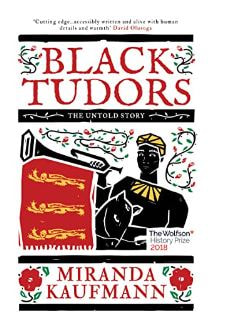 In a highly engaging talk, it was a refreshing revelation for me, and the Subject Leaders and Teachers of History in the audience to know and understand that over 200 Africans were living freely in Tudor England as Miranda drew on examples from her book featuring the stories of ten Black Tudors. Wonderfully intriguing and individual roles, such as John Blanke, the Trumpeter, Jacques Francis, the Salvage Diver and Mary Fillis, the Moroccan Convert. All of which intensely and intelligently refuted two common assumptions about Black British History. Firstly, there were Africans in Tudor England over 400 years before the first Windrush immigrants disembarked in Tilbury, Essex. Secondly, they were not enslaved. A clear and compelling case to refute those stereotypical textbook covers. Next, by teaching Black British History, those students with African ancestry can feel a sense of belonging, in that they are part of British History too. Clearly, an important piece of diversity, equality and inclusion work; which will hopefully encourage Black students to pursue history to GCSE, A Level and beyond; eventually impacting the way History is studied and presented by academics and popular historians, enhancing the discipline with a broader range of perspectives. Teaching Black British History can help to support the struggle against racism in challenging racist assumptions that immigration is a 20th Century phenomenon – and can be reversed. As Miranda shows in her book, focusing on the stories of African figures from the past can encourage empathy. By extension, this helpfully supports a timeline of understanding the ‘before’ the period of slave trading and colonisation and the after; and powerfully demonstrates the role of questioning assumptions in the study of History. The “interruption of the psyche” (Whitburn and Mohamed, Justice 2 History). 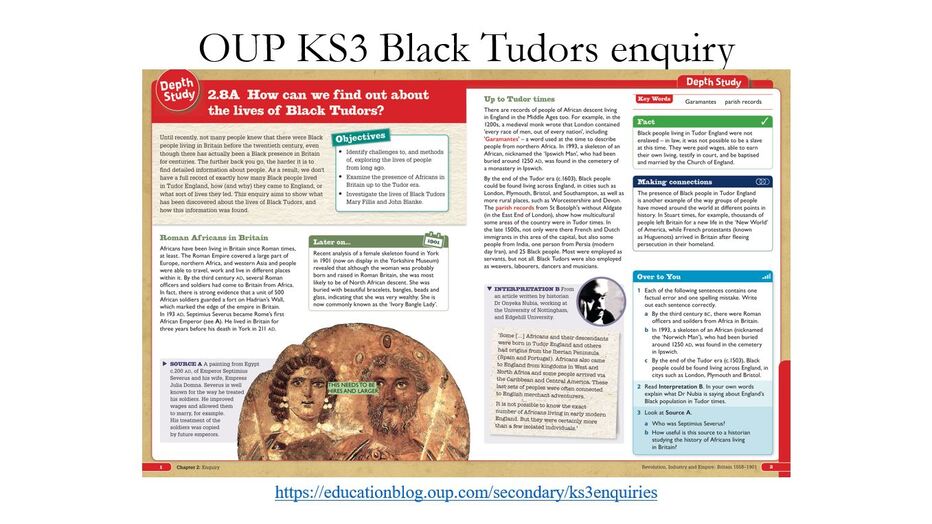 As in any curriculum change, there needs to be a long-term commitment and schools and teachers can play their part and we thank Miranda for sharing the following helpful suggestions to upskill and up-knowledge teaching of Black British History in the classroom:
With thanks to Miranda for her motivating and enlightening talk that made us all think about the endurance of Black British History and for sharing ways to teach and bring to life this significant part of history that can inform the present. By Jude Owens, PA to the Executive Team and Governance "Allow children to find their way with words through passion and poetry." After an hour in the company of Joseph Coelho speaking on Reading for Pleasure at the Ilsham English Hub event last week, I was convinced that he was every inch the Waterstones Children's Laureate. In the second year of his tenure as the twelfth Laureate and successor to “How to Train the Dragon” writer Cressida Cowell; poet and library enthusiast Joseph’s call to action was delivered with focused fervour and fizz in how encouraging children to read, you also encourage them to write (and vice versa). Let them understand they are “part of this wonderful world of words and their words are wonderful.” Words count and understanding that many children struggle with words, poetry reading can be the perfect medium as “you cut straight to the marrow.” Poetry can come with a certain scary “baggage,” but thinking beyond any imaginable barriers, poetry plays with words and can be very appealing to children and boost their reading. Poetry is often dipped into for a wedding or a funeral and then forgotten. But “it translates into the soul” and puts into words the indescribable and can be relished in our minds. It makes words live. Think of the almost magical meaning of lyrics as the words performed to the lyre. Sharing his own poet pen portrait story was inspiring. Joseph did not grow up in a book-filled home. Yet it was a home of words in which poetry was prominent. There were Argus and Littlewoods catalogues and whilst books were sparse, Joseph notably remembers reading a Ladybird edition of “Little Red Riding Hood” with the iconic watercolour cover and Dr Seuss’s “The Cat in the Hat.” His Gran wonderfully furthered his literary leanings with a poster of 1950s Mabel Lucie Attwell‘s “Please remember - don't forget - never leave the bathroom wet!” in her toilet. Joseph read and read the catchy fun verse over again, learning and absorbing it as a boy and in later years, it was a happy revelation for him to discover that Gran wrote her own poems. As a child in his formative writing years, Joseph put his own poetry skills to the test when he wrote a poem for a competition. He had discovered that bears were not treated well, which upset him and he wrote a poem very cleverly called “Unbearable” (a young punster!). Whilst he did not win, Joseph enjoyed writing the poem and kept writing and reading. Along the way in his own journey as a poet, Joseph was to work as a gym instructor, in adverting and sales, as a transport planner and even dare we say it, a tequila boy. Joseph’s ideas do not come from starring at a computer screen, but from going out and thinking, confident in the act of composition by letting ideas evolve. The schooling of his poetic soul evolved in attending a poetry performance course at Battersea where he discovered an ownership in reading and writing poetry and felt in his bones that he was already a writer, believing poetry to be innate in us all, belonging to everyone in non-judgemental ways. Amongst many role models, Joseph was inspired by the work of Jamaican dub poet and storyteller Jean, "Binta" Breeze MBE; understanding personally the importance of diversity and representative characters in books and writers on the bookshelves. But poetry is more than putting pen to paper or writing composition; it is about ideas and ownership of children’s words and opportunity to read each other’s words. In leading activities with children, Joseph has used post-it notes for their wordy ideas whilst playing in the hall to describe what they are doing, for example, sliding down a dragon’s back. Poetry allows children to build-up empathy by using each other’s poetic phrases and taking the words back into the classroom and in doing so, gently introducing the idea that they can all read and write poetry; which can have a huge impact on the reading and writing process and encourages them to be more open to reading the works of others. Indeed, in his own work, Joseph has used poetry to work on a project supporting mental health.  Poetry tends to be short, so you can read it and keep in your head for longer than prose and is less overwhelming. Let’s say it and celebrate it now: reading a poem is usually less of a challenge. You can memorise it. It becomes part of you. The pleasure of reading poetry. Poetry plays with language, for example the world of spoonerisms – switching around the front letters as in Joseph’s fun poem, “A Tip of the Slongue” and encourages pupils to be actively engaged in reading the poem. Introduce simple devices and engage them in hunting out the different devices. The wonderful thing about children is that they naturally use poetry and naturally come up with poetic devices. Encourage them to feel words are powerful and valid. Think what the children are writing on. Use giant pieces of sugar paper, jotting down words in felt-tip pens or in one activity Joseph even used disposable lab coats (taking Science to new heights!) that can be put on and taken off. In his own crafting, Joseph uses a beautiful notebook and before he had a space of his own, he used to write in cafes in Soho. Poetry makes literacy accessible to children. Give them their own poetry notebook to use in the classroom. Let them know that the pen belongs to them and their words are powerful and valid in building a foundation where they feel welcomed by books. Get children to write quickly and put their poems down from their heads. Poetry-penning can certainly be easier with younger children who have yet to learn to edit and are not worried about the opinions of others. As teachers, read aloud your poetry. Children are always enthralled by listening to the poetic world. Join them on their poetic journey. On visits to schools, Joseph has even been asked by the librarian if he has a book with him to take part in the stop: 15-minutes reading time for everyone. Children mimic, so it is good for them to see everyone reading. Make these reading routines a happy habit. Let the children feel that they have a final product of their work. Be it a performance to which parents are invited to attend, a wall display, a book, a piece of art. Encourage children to share their own poems.  “Invite them into the world of the books.” Cue libraries. Joseph is a member of 177 libraries. It must a be a record and a tribute to his passionate support. Back to Joseph’s own childhood and his introduction to libraries. It was his Gran who launched him on his library career and the beautiful, wood-panelled West Hill Library where she had wanted her ashes to be scattered on the parquet floor. Although Joseph’s Gran outlived West Hill Library; recently sending him an article that the library was sadly closed and the building was up for sale. Joseph used to spend the day at the library. He was part of the reading schemes, bought incomplete encyclopaedias in book sales (“a space to own books”), did his homework there, he even met a girl, laughed with the two Pauls, and played the book bag games of triggering the alarm. Libraires are “a hub for the community.” Warm and dry, a resource of information and support. As well as a place to discover and read books and enjoy other experiences, libraries are spaces to play board games and Lego, for knit and natter, and support mental health services. Not surprisingly, Joseph has created lots of poems about libraries. For four years he performed a one-man stage of poetic storytelling, writing plays that toured libraries as spaces to experience live theatre and events and for him to test out new material. Joseph works with children who are not taken to the library, working to break down barriers to get them into a library and making visual the opening of doors to new worlds. “So that more children can discover books and see themselves in books and know that their own words are important and have power too.” With an eye on literacy, one of the teachers in the audience asked a question about balancing creative pupil writers with the a focus on spelling that can be an issue with some children avoiding big words that they cannot spell. Understanding this dilemma, Joseph encouraged teachers to develop “a passion and urgency” in the children’s writing, as once they wish to write, everything else is easier. Plus, as we all know, spelling mistakes are a part of life. Get them to the point where they want it to be their best work and to be inventive and imaginative and brave with their word choice. In his privileged poetic position as Children's Laureate, it is clear that Joseph will continue to celebrate books and inspire children to read and write their own poetry through his delightful personality and poetry. We thank him for his dazzling talk and to Ilsham English Hub for hosting such a wonderful event. Afterwards, I was tempted to pen a poem in celebration myself. Review by Jude, PA to the SWIFT Executive Team Ilsham English Hub are pleased to offer the following professional development opportunities for 2023 – 2024: Teacher as Readers Group | Open University/UKLA Ilsham English Hub 2023 - 2024 1600 – 1730 | Zoom Session 1 | Thursday 5 October 2023 Session 2 | Thursday 30 November 2023 Session 3 | Thursday 18 January 2024 Session 4 | Thursday 14 March 2024 Session 5 | Thursday 23 May 2024 Session 6 | Thursday 20 June 2024 This group provide free evidence–based CPD for teachers, Teaching Assistants, Early Years professionals, librarians, reading volunteers and others to enrich their understanding of Reading for Pleasure (RfP) and how to support it. It is the fourth year this group has been running and is led by Danni Cooke Ilsham English Hub Lead and the Ilsham Hub Team. The aims of the group are:
You will receive a certificate at the end of the course when you have shared your example of practice on the Open University Reading for Pleasure website. We ask that you aim to attend all the sessions, and within this work you are aiming to make a difference initially to a small group of children. Transforming your School Reading Culture (TSRC) | Ilsham National English Hub 2023 - 2024 Core Sessions | 1230 – 1500 | Zoom Optional Workshops | 1600 – 1630 | Zoom Sign up here The TSRC programme is underpinned by research; and throughout the programme there are articles/books for participants to read, as well as references to research built into the session plans. This research is split into two strands: reading for pleasure and leadership development/change management theory, and there will be gaps tasks in between the sessions. You will need to attend all the sessions and will receive a certificate once the course is completed. Core Sessions Core Session 1 | Reading for Pleasure: a whole school culture | Wednesday 11 October 2023 Core Session 2 | Creating whole school change | Wednesday 22 November 2023 Core Session 3 | Creating a reading school: structural changes | Wednesday 17 January 2024 Core Session 4 | Creating a reading school: behavioural changes | Wednesday 13 March 2024 Core Session 5 | Celebrating impact and sustaining change | Wednesday 19 June 2024 Optional Workshops
This group is for English Leaders and is looking at developing a whole school reading community and culture and is FREE to access and will be facilitated by Danni Cooke (Ilsham English Hub Lead) and Carly Watson (Hub Team). You will need to sign up to attend all five core sessions to be part of this support group and you are also welcome to attend the optional after school workshops (further details to follow next academic year), which should also be valuable. Contact
For any enquires, you can contact Ilsham English Hub Lead, Danni Cooke. “Create a curiosity based on a genuine passion so that young people find their way to be instructors of their own destiny with faith in the system.” Some conferences have a buzz. And at our recent SWIFT 2023 Summer Conference there was a distinctive buzz. It started with delegates arriving early to the Exeter Racecourse venue ready for the conference; as well as enjoying the opportunity to network and engage with new and existing colleagues, and chatting to sponsors and exhibitors. An uplifting buzz. CEO of Uffculme Academy Trust (UAT), Lorraine Heath OBE opened the conference on a Reasons to be Cheerful note. Lorraine is a highly influential leader within the region and as a SWIFT Partner, UAT plays a central role in our Appropriate Body Service, Early Career Framework, and Continuing Professional Development programmes delivery. Commending “such a professional generosity in the system” Lorraine praised schools and Multi Academy Trusts as “anchor institutions” who provide a support network at no cost, helping each other and sharing values, vision and moral purpose. Surely an example of optimism over experience. Amongst the uncheerful stories and pressures on schools, she highlighted the benefits of the Cradle to Career model on a school community and advocated courage to fail and to fail better that ultimately benefits young people. Change is coming and schools can make this better and wished everyone a great conference. Professor of Social Mobility at Plymouth Marjon University, Sonia Blandford is already a SWIFT black belt and has been leading a series of professional development “extras” sessions for our Early Career Framework programme. Sonia’s educational experience and accolades are vast and varied and she is a prolific published author. As one of our conference keynote speakers Sonia spoke on a topic close to our hearts here in the South West, “Born to Fail? Social Mobility: a working-class view.” Social Mobility is achieving positive change in socio-economic status, and more widely building better futures for all, in terms of wellbeing, health, and engagement with all that life has to offer. Strategic steps can create hope and continue to develop new approaches to education and public policy, using the principles of mutuality for the benefit of all regardless of their starting point, to develop greater engagement with parents and carers, families, and communities that will ensure all children and young people are supported to access meaningful support, develop their aspirations, to increase their achievement and life prospects. With the essential objective to improve the foundations for life for all children and young people. Sonia shared how impactful leaders can be effective through a shared vision with a core set of values and beliefs shared by all staff; a commitment to creating an ethos and culture of achievement across the whole school; collaboration with parents, children and young people and others within and beyond the school, including other schools, to develop and share best practice and communication that encourages modelling positive engagement with all stakeholders. As CEO of one of the largest national Multi Academy Trusts, Oasis Community Learning, keynote John Murphy was well placed to talk on the “Opportunities and Challenges When Growing a MAT,” overseeing 52 Academies in 21 Local Authorities with over ten years of rapid growth that was founded in Grimsby. Harking back to his own school days, it almost felt like a confession as John admitted to struggling in his schooling against a backdrop of a tragic family circumstance about which no-one at school mentioned to him, all of which contributed to him failing his exams. “Children have one chance” and Oasis want young people to flourish and to have a sense of optimism with equity and excellence for ALL children. But what does it look like? Oasis have built a team of leaders across every stage as deliberate and intentional foundation blocks that underpin education as the golden ticket. Learning and development are important, but it is also important to think how to deliver the culture and to encourage everyone to be part of the vision for the long-term. Working with the community and believing that children can achieve with support, Oasis supports youth work, food banks and housing to provide a “secure school” to create exceptional education at the heart of the community. Think what you are focusing on. Oasis accepts ALL children and considers what can be done to accommodate ALL children. Mindful that 37% of young people go to university every year, Oasis thinks about the other 63% who do not. How is the system geared for them? Too often education is rules focused and our role as educators should be to support the development of children and young people over time. It is important to change and refine priorities – not least with significant other life pressures and the growth in mental health issues. There are families who have generations of non-workers and they need to know what it looks like to work. Sometimes it is a case of doing a few things well. To deliver, celebrate and be proactive. For example, ensuring Headteachers are in lessons with established pillars that free up the teachers. Love the children and understand they are on different journeys. Give them the best opportunities. “The school as an oasis.” John noted the reliance on schools and colleagues post-pandemic and which helped to lead to the development of the National Institute of Teachers with the teacher career development thread throughout the system, underpinned with high quality professional development. Education South West Trust Leader, Matthew Shanks thanked John for the “honest explanation” and reminder about failing, relevant here in the South West and CEO of the Ted Wragg Trust, Moira Marder commended the reminder to love your families. National Director with Oasis Community Learning, Iain Freeland described how Oasis have strengthened and transformed the educational offer. With his specific responsibility for the evaluation and monitoring of Academy performance, Iain leads a team of independent consultants and was previously an Ofsted Inspector. It is important to be honest about what works and what does not work with a focus on Character, Competence and Community. Oasis asks both staff and pupils in order for them to become confident and resilient citizens: Consider who am I and who am I becoming? Staff are encouraged to work collectively and to think of educational provision as collegiate and to focus on priorities and intentional design in the curriculum. Oasis strives to support cultural capital and is part of a global community. Inevitably, Oasis has a high turnover of staff who are expected to be experts, and are always upskilling with an internal assessment of systems with intention, implementation and impact. Find the opportunities to engage staff as a way of retaining staff and create buy-in for the Trust. Evaluation is also an important part of the process. Delegates could attend one of the morning breakout sessions to get closer to some of the other key issues of the day. National Institute for Teaching Executive Director of Programmes, Reuben Moore and founding Regional Principal for the South and West, Jenny Sutton presented an update on “The National Institute for Teaching (NIoT) and its role in Developing Education,” reinforcing that “it is here for the system” and to add value. It is essential to change what happens in the classroom as an entitlement that is vital to the system in order to ensure that every child gets the best opportunity and to nurture their talents. Remember the definition of Nurturing = to feed on, to cherish, and to protect. The role of the NIoT is not simply to generate the research, but to make it live and breathe in the classroom and to challenge how to implement the implications of research into practice. There has been too much distance in the past and the NIoT wants to be school-led and to use teachers and leaders’ time well. In his session on “Reflecting on Parental Engagement,” Early Year Educator, consultant and aspiring children’s author, Jamel Campbell shared his very real love and knowledge of Early Years as a precious time with children based on his professional understanding, but also as a proud father of his 14-months son. Jamel’s talk reminded us of getting the basics right from the beginning in order to stand in good stead for the child’s entire schooling. Remember, there is a connection from the child’s very first day and parental engagement is essential in the child’s healthy development. Parents often have a premeditated judgment of teachers and schools even before they meet due to external influences and negative local neighbourhood information will influence parents, for example about the safety of school. Parental partnerships start from the first point of interaction and the settling in process will benefit from being a collaboration of the setting and parents. Some parents will be anxious and find it hard to let go and at all stages it will make a difference how parents push, support and influence their child. “Do not blame or judge them for being anxious, but soothe their fears with good practice and empathy.” Consider the parent and child transition and understand that parents are transitioning too. Ensure there is a familiar face for drop-offs and collections and a first point of contact and think about using a buddy system. Know the family and the child. Be aware of family quirks; for example, food, family environment. Consider a key person who is selected by the child. Children are sensory aware which can influence parents. Children connect to people who are like parents to them and this is why diversity is key and gives a sense of security. Feedback and communication are important and needs to be simplistic, authentic and honest, descriptive, authentic and accessible, in a way that parents understand and receive it. Build bonds with parents. Create opportunities, other than around calendar events to involve and engage in purposeful dialogue. When there are times that the teacher has to relay bad news, it is important to balance spending too little or too much time on the issue and to call home beforehand to avoid embarrassing the child. It is important children know that it is not them, but their behaviour that is being addressed. Consider does my setting accommodate all cultures/religions/diversity? Are there resources that represent the wider community? i.e. Devon children visiting London. Director of The David Ross Education Trust Teaching Hub – A.K.A. “DRET,” Kat Howard, a cousin you might say to our Colyton and Kingsbridge Teaching School Hubs as three of the 87 national Hubs shared her curriculum expertise in her talk on “Leading Principles of Effective Curriculum Development.” There is value in making content explicit to break down barriers for pupils and drawing on the community. For example, inviting local writers into school. By bringing together curriculum content from diverse experiences, the pupils can recognise themselves in the curriculum. Map conversations about the curriculum and remember the significance of teacher expertise and a duty of care towards prospective teachers. Allow a grace period as a mechanism to ensure teachers deliver and understand the purpose of the curriculum with a shared vision and language and direction. There is a significant correlation between teacher purpose and professional fulfilment. The way in which we spend teachers’ and leaders’ time in schools will ultimately determine retention over time. Focus on key reporting points and “look back, look forward” and use a live model so that retrieval becomes part of day-to-day structure of the curriculum with collaborative planning and coaching for discussions. Evaluation needs to be over time and consider who you bring together and the triangulation of data. “The measure of success for our schools is ‘not the exam grades or the progress scores, important though they are, but instead the real meat of what is taught in our schools and colleagues: the curriculum.” (Spielman, 2017) Back together in the main conference hall there was a sense of anticipation about the keynote by Stephen Morgan MP, Shadow Minister for Schools who presented on “Labour’s Vision for Education.” Glad to be back in the South West as a University of Bristol graduate, Stephen recalled his two weeks of work experience in a school – that put him off a career in the classroom. But he keeps close to the world of education as a School Governor and “a firm believer in the power of education to transform lives, create knowledge, skills, relationships and opportunities,” thanking staff for their “incredible work in difficult circumstances” - not least in recent years of the post-pandemic. On visits to schools across the country, Stephen is always impressed by staff ambition and potential, and the dedication of school leaders and teachers who often feel stretched, taken for granted and underpaid. Whilst their dedication is recognised, Labour also understands they cannot run on recognition alone. In addition, schools are managing the effects of the cost-of-living crisis and families are struggling with many children hungry and suffering mental health issues. A perfect storm. Added to which the unprecedented teacher recruitment and retention workforce challenge crisis with 2,000 vacant teaching posts a year meaning the Government is missing 40% of its annual recruitment targets, with the entire school population needing to be replaced every 14 years. There may be no silver bullet. But Labour wants excellence for everyone with a few of their active ingredients offered here: A Teaching Assistant in every classroom. Wrap around support by working together. End the private schools tax break. Boost knowledge and skills. Teachers encouraged to take on learning opportunities. Skills to support SEN and EAL. Support programmes for Headteacher to provide local support. Reform Ofsted that is dreaded and makes schools feel underpowered. Leaders and school staff under too much pressure. Greater sector expertise. Increased CAMHs support (“No child should be left without support.”). Commit to Mental Health counsellors in schools. Treat the profession with the respect it deserves. “Not enough young people are leaving school ready for school and life.” Career Advisors in schools. Two weeks’ work experience for all children Education is more than English and Maths. Art, Drama, Music, Sport should all be supported to boost children’s development and to equip them for the 2020s’ world of high technology, and the green economy etc. Echoing 26 years ago Tony Blair’s “education education education” priority for Labour to a rapt audience, Stephen reinforced that Labour is the party of education. Next up was something new for this year’s conference. The SWIFT Question Time Panel chaired by our very own David Dimbleby, SWIFT Strategic Lead, Roger Pope CBE. Panellists Sonia Blandford, Angela Browne (whom we were to meet as the final keynote in the afternoon), Stephen Morgan MP and John Murphy bravely sat on high chairs at the front of the main conference hall awaiting the wide range of (unseen) questions from delegates. The starter question was aptly, what should be Stephen Morgan’s priority when he enters his new Department for Education office? Baccalaureate with Music for every pupil to support mental wellbeing (Sonia); the levelling up agenda, with a more comprehensive and inclusive education (John); and diversity and the Protected Characteristics to make teaching a profession everyone can access (Angela). Stephen would have top of his own action list to restore trust amongst the profession, the key priorities and to find ways to work with the sector and give teachers the respect they deserve. So, lots for him to be getting on with. The panel next considered their views on all pupils studying Maths in some form to the age of 18 and whether they agreed with Prime Minister Rishi Sunak’s ambition and the main concerns to how it might be rolled out. The panellists generally disagreed. John believed it needed a longer-term strategy and the risk was putting pupils off Maths for life and that other learning gaps need to be closed post-pandemic. Education should seek to create flourishing young people with the choice to do what they want to do. Sonia advocated a love of number and teaching how to apply the knowledge in teaching for life; but also investing in the Early Years. Stephen denounced gimmicky pledges and Angela reflected how education is often too rules bound and institutionalises teachers who should not be treated like infants, comparing the different attitude in the Danish education system (where she lives and the experience of her nine-year-old son). “Create a curiosity based on a genuine passion so that young people find their way to be instructors of their own destiny with faith in the system." The next question referenced the post-pandemic situation in which schools have taken on the role of being 'everything to everyone' - from social work to school nurse. The panellists were invited to consider what they see as the core purpose of schools now and in the future and whether there needs to be a debate about the role of schools in society and how to make this manageable and reasonable for school staff? Sonia would “develop an inclusive education for creative and engaged human beings” who participate and feel included with a sense of belonging. John advocated an education that enables pupils to flourish and reflected on his own personal situation of not feeling good enough from his own schooling. Angela considered the shifting purpose dictated by external partners and recommended improved agencies for those most in need with schools as “a safe harbour” as the continuous thread in children’s lives. Sonia wanted a place in communities for young people for life and work and noted how teachers are having to step in and provide other services. A topical question next about teacher recruitment. The questioner noted their deep concern about the crisis and how this year at their school they have unsuccessfully advertised for a Teacher of Physics twice and had NO applicants. What would the panel suggest is the biggest factor affecting teacher recruitment and retention and how should it be addressed? John advocated the celebration of diversity and belonging to underpin the culture and cited the Oasis Academies conference “Break the Cycle.” As people are the most important part of delivery, Oasis builds staff networks and has a strategic plan where leaders are held to account with action plans. Sonia looked back on her role in co-writing the Teaching Framework 20 years ago as Dean of Canterbury Christ Church College and lamented how the Government is ending the range of teacher training programmes; whereas now is the time to provide a variety of programmes for a variety of people to train and enter the profession. Angela considered attrition rates and the problem of how to retain teachers and ensure that schools are safe places. Stephen shared how the crisis keeps him awake at night with too many teachers leaving the profession and recommended better salaries and better support for teachers (and see the previous highlights from his keynote). Turning to the young people themselves, the next question asked what are the biggest challenges facing children today? Stephen noted the pressures on young people and on CAMHs and schools to support them and advocated the need for a dedicated counsellor in every school and an open access hub in every community. John highlighted the challenges of domestic violence, the cost-of-living and lack of food for some children and families and the need for mental wellbeing support and opportunity for system redesign. Post-pandemic has “laid bare the inequity of the system” and had a huge impact like an elastic band, which has not always flicked back into place with costs to social skills and higher immaturity amongst some children and the need for explicit teaching. It should be about the lived experience for children and not the politicisation. There needs to be even more integrated work. Oasis has food banks in their schools and works to establish stronger bonds with families. Sonia felt that too many children do not feel included or have a sense of belonging and feel like education is something being done to them. They need to be allowed to develop and to be part of a community and the potential of every child should be celebrated. Rather than a punitive educational model. Angela noted the disconnect between adult perceptions and children’s experience. Schools need to be safe places. There is often too much toxic masculinity and children can feel left in a wilderness and on their own. As a fun final question, the panellists were invited to return to their own school days and to remember the teacher who made a lasting impression on them. Angela remembered the teacher who encouraged her to participate in the Ten Tors for three years in a row. The moor was like a transformational, spiritual experience. And as many of us know ourselves, a long walk can be revolutionary. For Sonia, it was the teacher who encouraged her to join the brass band and how she embraced this opportunity. A reminder of the power of inclusiveness and doing something new and doing it well. It was the Year 6 teacher for Stephen who taught his class to aim high and to achieve all their dreams – and whom he saw again as a canvassing MP and she pointed out his spelling mistakes on his leaflet, but had also kept a piece of his work for 30 years. In the midst of his challenging schooling for John, it was the teacher who swore, whom he thought was cool and who listened and praised him for his poem (after firstly asking, “Is this really yours?”!). We thank our panellists for their honest, heartfelt and insightful answers. SWIFT Question Time was a very enjoyable part of the conference experience and showed that educational debate is very much alive and kicking here in the South West. For the afternoon breakout sessions, NPSCC Assistant Director for the Southwest and Channel Islands, Andrew Freeman is currently overseeing the regional delivery of the national 10-year strategy in this 100+ year-old organisation. In his “State of the Nation – being Nationally Significant and Locally Relevant” talk Andrew reiterated the importance of working together in partnership as a nation of safeguarders. The NSPCC’s three impact goals are that everyone plays their part to prevent child abuse, every child is safe online and children feel safe, listened to and supported. The direct service development is focused on providing children and families what they want and need using the following key principles: involving families, partners and stakeholders in service design so that services deliver positive outcomes that can be replicated; innovating, and not shying away from failure - if the service is not being taken up or not generating positive outcomes for children, to use what we learn and try something else; collecting comprehensive data, evaluating our impact and conducting rigorous trials for the most promising services and forming partnerships with other organisations to implement the services that have been developed and tested to reach more children with the services that are known to work. Teacher of English, school leader and MAT CPD lead, Josh Goodrich from StepLab talked about “The Science of Instructional Coaching” and explained the importance of insight, motivation, embedding and techniques and understanding the difference between knowing and doing. Josh shared his own eureka moment after struggling with behaviour management when some simple coaching guided him in a routine for silence, entry routine and scanning that changed everything for him in his first year of teaching. Josh shared a few helpful reminders about learning. We learn by gradually building on (and with) what we know; we attend to what we value; we can only attend to a few things at once; learning by discovery is slow and effortful; repeated practice is necessary for fluency and what we don’t use, we lose. Following on from the earlier keynote by Sonia Blandford, Chief Executive of social mobility charity, CoachBright, Joe McGinn presented on “Academic Coaching as a Vehicle for Social Mobility.” CoachBright provides academic and pastoral coaching for some of the most disadvantaged pupils in the country to become confident, independent, and resilient, and to lead the lives that they wish to lead. Helpfully, Joe explained some of the different terms that can sometimes be conflated. Absolute/Total Mobility is how much movement there is, i.e. how many people ‘end up’ somewhere different to where they started. The direction is irrelevant; what counts is that they are moving. Upward Mobility is how many people are moving ‘up’ and Relative Mobility is the social fluidity or openness, i.e. how easily people move relative to others. In order to increase the chances of disadvantaged children, we need to decrease the chances of advantaged children in strengthening mechanisms by which disadvantaged children can get ahead, and weaken the mechanisms by which parents protect their children from moving down. SWIFT delivery partner Andy Ogden from Tarka Learning Partnership and Deputy Director, Chris Harris showcased our dynamic Universal Programme of Professional Development Communities, Masterclasses, Forums and Conferences and CPD events and Appropriate Body Service, Early Career Framework, National Professional Qualifications and Teaching School Hub Professional Development Department for Education Golden Thread Programmes (see the presentations at the end of this report). The final keynote, “Being Luminary - Making Our Schools ‘Safe Harbours” by the founder of Being Luminary, supporting leaders with Diversity Equity and Inclusion (DEI), Angela Browne. An interim Deputy CEO in a South West Multi Academy Trust and a Devon girl herself, Angela’s talk was at times heartening and thought-provoking. Declaring school leaders to be “Thought Leaders of DEI” and schools as “a lighthouse to withstand the DEI storms” in the post-George Floyd, #metoo, and Andrew Tate era. Everyone needs to be united on a platform and to engage in a meaningful dialogue with all stakeholders. Reflecting on the Equality Act (2010) and the ten Protected Characteristics that hold identity can be challenging in “heavy weather.” Hate crimes (race, religion, sexual orientation and others) are increasing, especially after the lockdown. It is important to look at the data and always to be aware of the impact of context and to keep up meaningful conversations. Angela cited a case study of Westminster School where more than 250 former pupils wrote an open letter about the toxic culture of racism at the school and bemoaned that their schooling had not prepared them for modern life. Education should strive to prepare all young people to think where they are going. Often a perception gap exists between the tension of what educators think they are doing and what they are really doing. Student voice can become skewed and is not their real voice. Angela refutes the claim that that you do know what you do not know – but insists that you do know as it is part of your peripheral vision. It is important to call out casual racism = microaggressions and to give yourself a line of enquiry. Understand how to create a sense of belonging and she questioned the easy-to-say “great” school narrative as we like to think that we are all having a great experience of school, staff and pupils alike. But this is not always the case. Angela looked at how to reframe the different IQs – emotional and cultural (DEI) and to go beyond policies and procedures and to demonstrate a commitment to learning the vocabulary, concepts and ideas. “What does it feel like to be you?” Change what is inside. In a spine-tingling-across-the-main-conference-hall-moment, on teacher mode, Angela was poised to cold-call the audience to explain their understanding of the definitions of race, ethnicity and racism. Humbly honest delegates admitted their lack of knowledge, how they felt entitled and ignorant and anxious about (possibly) not knowing the answer and their need to learn. In case you were wondering and if you are asked: Race = a biological social construct based on (17th whiteness. Ethnicity = a cultural assignation. A social construct in how to organise people. Racism = the system of advantage. Angela encouraged the audience to “crack open the window of compassion” and to buck the trend in your school. Have the conversations and know your data. “Identity is harboured in our schools.” Ask the question in the community and invite staff to share their lived experiences and to map to other identity groups. Talking and dealing with Diversity Equity and Inclusion should be the same as talking and dealing with safeguarding. All good things come to an end as Headteacher of Colyton Grammar School, Tim Harris closed the conference. Colyton was the first secondary school to be rated Outstanding under the new Ofsted Framework and may be the only school in England to be consistently rated Outstanding since inspections began and is proud to play a central role in our Teacher School Hub programme delivery. Summing up of the day, Tim thanked everyone involved, as a reminder that together we can make a difference, and noted Colyton is playing its part. “Quality time to think challenge plan and prepare.” In a time of crisis and a Government in perpetual crisis with issues of pay and retaining teachers, there were reasons to be hopeful. Schools are well placed to create a sense of belonging and to consider children’s experiences from all perspectives, quoting Atticus Finch in Harper Lee’s “To Kill a Mockingbird:” “You never really understand a person until you consider things from his point of view— until you climb in his skin and walk around in it.” But how do schools know when they are successful? By being clear about what it really means and the end purpose and working together as the collaboration of teachers to make a difference. All teachers have specific skills sets and can share this expertise and have integrity to pursue brilliant outcomes for all. Schools can foster diverse communities where everyone belongs as Archbishop Tutu said: “I am a human because I belong.” As educators we need to challenge perceptions. The South West might have the largest disadvantaged rates in the country with the lowest percentage of young people going to university - “the forgotten region.” But Stephen Morgan has shown that he is keen to listen to school leaders and we need people to listen. Things are and will get better. Schools are striving to provide a world class education that children and young people deserve and with wonderful professional development on offer from SWIFT there is the opportunity to be more effective and to make a difference. Tim praised SWIFT Deputy Director, Chris Harris for his last SWIFT conference before he moves to his new post and thanked him for all his hard work and leadership. Finally, thank YOU for YOUR support. As the inspiring Nelson Mandela said: “It always seems impossible until it’s done.” The 2023 Summer Conference was a memorable time together with a purposeful and positive atmosphere. An optimistic collective call to action to create a sense of belonging and support in our school communities, to provide an education in which children and young people can flourish, working together and for schools to be lighthouses to withstand the Diversity, Equity and Inclusion storms. As well as time to network, it was an occasion to meet our sponsors and exhibitors. We are grateful to all our sponsors who help us to fund a range of high-profile and high-quality professional development presenters; whilst bringing another dimension with their practical and relevant products and services to support teachers, leaders and schools. Rhys Gwillym introduced Praestantia Technology who provide IT technology and audio-visual solutions and consultancy with excellence and simplicity exclusively for educational settings so that, schools and MATs can focus on providing an outstanding learning environment. With their own links to education, Praestantia provide SIMS support, Broadband and Online Safety guidance, IT Security and school servers and backup. Consider them a hands-on IT safety net. For those in the audience who had yet to be captivated by award-winning Lyfta’s photography, Rahul Karavadra took us on a brief tour of their topical, enlightening and compassionate storyworlds that reach out across the world to enter the classroom and share different cultures and perspectives. Lyfta helps teachers to nurture the global citizens of tomorrow. You can watch their intro video here Family-run school catering experts with over 60 years’ experience, Educatering, were at the chef’s table providing food demos of their delicious food cooked using local ingredients, and mindful of healthy, nourishing and good value food grown close to home within our region. Delegates enjoyed tasting their tasty food throughout the day and finding out more about how Educatering can support school catering with bespoke menus. We thank the other exhibitors for being with us and for brightening the day with their innovative and useful educational products and services: Applicaa Ltd, Cornerstones Education, Devon Education Services, Exeter Maths School, Plymouth Argyle Community Trust, PRICE Training Teaching Personnel and Volt Entrepreneurs Ltd (you can find their website links at the end of this report) and with grateful thanks to Conferences South West for organising and overseeing. Thinking green this year, our SWIFT team stood tall with a lower carbon footprint conference: reduced plastic and paper and delegates using the QR code on the conference programme for more information. Once again, we thank EVERYONE involved in this year's Summer Conference: our speakers, sponsors and exhibitors, and of course, our delegates. Report by Jude Owens, PA to the SWIFT Executive Team Find out more about sponsors and exhibitors here:
19/6/2023 0 Comments SWIFT Summer Conference | “Quality time to think, challenge, plan and prepare.”We would like to thank everyone for a wonderful 2023 Summer Conference last week: our speakers, sponsors and exhibitors, and of course, our delegates. In the midst of the post-pandemic lockdown aftermath, the teacher recruitment and retention crisis, the cost of living crisis and other pressures on young people today, the conference was memorable time together - with the popular addition of our new "Question Time" feature, showing that educational debate is very much alive and kicking here in the South West. With a purposeful and positive atmosphere the conference was an optimistic collective call to action to create a sense of belonging and support in our school communities, to provide an education in which children and young people can flourish, to work together and for schools to be lighthouses to withstand the Diversity, Equity and Inclusion storms. Things are and will get better. As Nelson Mandela said: “It always seems impossible until it’s done.” A more detailed report and pictures will follow soon for you to re-live and enjoy the day.
But in the meantime, you can check out some of the highlights on Twitter. By Jude Owens, PA to the SWIFT Executive Team In this penultimate issue for this academic year, ESW Associate & Strategic Leader of Teaching & Research Schools | Education South West, Roger Pope CBE is in post-Coronation reflective mode, contemplating what we can learn “about narrative, ritual and culture.”
“So, we must work hard to create the rituals that create belonging. How we celebrate key transition points and rites of passage as children grow through the school.” Read about the Early Career Framework Extra! CPD session on Inclusive Practice in all Classrooms with Professor Sonia Blandford and Wendy Casson MBE. If you need any encouragement about Courageous Conversations, you can get some insights with our Diversity, Equity and Inclusion training session with Diverse Educators. CEO of Riviera Education Trust Stewart Biddles is this issue’s interviewee commending the value of partnership; which, of course we echo. Find out more about the Phase 1 findings of the independent review of teachers’ professional development by Ofsted (commissioned by the Department for Education) and sign-up the Education Endowment Foundation Early Talk Boost Project. We celebrate Cultural Diversity beyond the classroom with our sponsor Lyfta and keep up-to-date with other sponsors, Educatering and SchoolPro TLC and book your place at Praestantia Technology’s Microsoft event two weeks today. “Every child should have the opportunity to succeed regardless of their background, challenge or need.” This was the second session in the SWIFT ECF Extra series led by Professor Sonia Blandford and Wendy Casson MBE with the objective of exploring the meaning of inclusion in educational policy and practice with practical strategies to develop inclusion in classrooms. Wendy has experience of working with the “forgotten child” in her previous role as the Head of a PRU where she learned about barriers to learning and Sonia teaches Music every Friday where she practises inclusion across her teaching groups. The following provides a summary of their views and insights on the theme of inclusion. As teachers, it is important always to have high expectations of all children. Part of this is positive relationships across all the dynamics between pupils, parents and teachers in order to get the connection to help them move forward. Be curious. Think as a teacher, is there something I could do differently? Why is the pupil struggling? Are they distracted? Have they got other issues? Consider a trauma-informed approach. What could you do to support them? Children learn differently. Look at other practice near and next to you. Consider external factors out of your control: lesson disruptions, what happened last night, family dynamics, the previous lesson, significantly, the weather and the child’s health that particular day. In practice, “inclusion is the action or state of including or being included within a group or structure. In a school or education setting, it means that every child and every adult who works or learns in a school is valued and whose personal needs are being met.” The four stages of inclusion are:
Inclusion fosters a sense of belonging for everyone - both pupils and teachers. Good schools who deliver inclusive practice value every member of the school community and help parents and carers to be the best parent they can be. Sometimes we kick against being led. But when led effectively, it brings belonging and purpose. Make time to talk and listen to colleagues and to share knowledge and practice. The inclusive classroom should not teach to satisfy Ofsted or to meet the Teacher’s Standards, but teach to meet the needs of the pupils. Allow the pupils to guide you. Keep reinventing yourself, push to do different things. When a lesson does not go well reflect on the effectiveness of your lessons and approaches to teaching and try something different. Embrace the trips and slips! In this fourth industrial (digital) revolution we do not know what the future holds in terms of climate change, and the economy; so it is important to think about an alternative approach and achievable goals for schools. System leadership should work across the Year Group, Key Stage and/or whole school as a shared vision and a commitment to each other for collaboration and improved communication with school leaders and teachers. Consider the foundations of:
Meritocracy has been around for 45 years and has been shown not to work on the premise that those that can will succeed and those who cannot fail. This is not where we want to be in education and we must foster values that include everyone. All children and young people should feel part of what is happening in school. Regrettably, the National Curriculum does not always support inclusion with its one size fits all approach. SEN and disability should not be a barrier to inclusion. Sonia noted that over the last 20 years, educators and parents have all become more aware, but have attached too many labels to too many children. Whereas, we should be more inclusive and integrate children despite their background, challenge or needs. Similarly, Multi-agency teams: SENDCO, SLCN, Ed Psych, CAMHS, Mental Health Practitioners, Social Care and Looked After Teams need to work together more effectively as they are rarely effective Currently, Sonia and Wendy are contributing to research led by Monash University in Australia to consider the approach to inclusion. Results from the student questionnaire found that 44% of students were satisfied to some extent, revealing that they did not feel included and were not happy in school, feeling teachers were not interested in them, they did not have a friend and did not have an advocate for them. Ultimately, they did not have a sense of belonging. The research found that teachers and Leaders listed the following barriers that currently hinder inclusion in their classroom:
Teachers can however take the following steps to support inclusion:
Know the child you teach. Children feel cared for when teachers know their name and know things about them. Know your students’ strengths and areas for development (do not say weaknesses!) and find the balance. Remember to confront without confrontation. Take the problem away, for example, children who arrive in school without a pen to write with. Some of whom are ready to battle with the teacher and waste time in the lesson. Simply, provide a pen for them (and be ready for the serial offenders) so that there is no challenge and disruption to the lesson. The child might not know why they have barriers to learning and it is often the child who needs to belong who does not belong.
Seek to understand their emotional wellbeing. It is often the things that you do not see that can make the difference. But remember the high-performing child. They might be good in your lesson. But stretch them further with targeted work. To conclude, successful inclusion has a shared vision as a core set of values and beliefs shared by all staff, with a commitment to creating an ethos and culture of achievement across the whole school with positive collaboration with parents, children and young people and others within and beyond the school, including other schools, in order to develop and share best practice. Good communication throughout this process encourages modelling positive engagement with all stakeholders. We thank Sonia and Wendy for this uplifting can-do presentation on Inclusive Practice in all Classrooms that makes sense in order to support positive outcomes for all children and young people. The final session in this three-part series takes place online on Thursday 6 July 2023 at 1600 and will focus on Parent and Carer Engagement to Improve Student Outcomes (register on the link below). Report by Jude Owens, PA to the SWIFT Executive Team "Our lives are built on and held together by words." Tuesday 20 June 2023 | 0930 to 1600 Broadclyst Community Primary School, School Lane, Broadclyst, Exeter, Devon EX5 3JG Reading roadblocks can be a daily problem for school communities. For many learners, significant roadblocks interrupt the journey to becoming an avid and fluent reader. The Cornerstone English Hub 2023 Conference will explore the various challenges and hurdles faced by pupils as they embark on their reading journeys and will unpick strategies and approaches to make lasting differences to children and teachers. Words help us to discover new information and imagine new worlds, they underpin human creativity and provide us with the foundations of rational thought. When we help children to learn new words and to love using them, we unlock the limitless possibilities offered through the wonderful world of reading. Join like-minded colleagues at the 2023 Cornerstone English Hub Conference and explore these reading roadblocks and learn how to support every child to overcome the hurdles hindering their reading adventures. Be inspired and reflect on the subject of reading. FREE to attend for all educators, the Reading Roadblocks event will be of most interest to primary English / Reading Leads or Senior Leaders.
30/3/2023 0 Comments SWIFT Spring Curriculum Forum“Curriculum is a never-ending story.” For our Spring Term Curriculum Forum, education adviser, writer and speaker, Mary Myatt shared her curriculum wisdom and experience as our keynote speaker on Refining the Curriculum. A Teacher of R.E. and former Local Authority adviser and inspector, Mary engages with pupils, teachers and leaders about learning, leadership and the curriculum. She has written extensively about leadership, school improvement and the curriculum, and most recently, ‘Huh: Curriculum conversations between subject and senior leaders’ with John Tomsett. A co-founder of the R.E. Quality Mark, Mary is a member of the Curriculum Advisory Group for Oak National Academy. A curriculum should help to encapsulate and inspire, as well as to provide a QA standard that is strong, robust and clear and gets to the spirit and heart of the subject. Teachers need to have higher expectations of pupils. The tendency is to make classwork too easy and to think that they cannot cope. But they can and they want more demanding work. Consider high challenge, but low threat. Learning is only effective if pupils put some effort into it. Research shows they like doing things that challenge them and make them think. This was found to be especially true for disadvantaged students who often have a diminished reading diet. Through reading, their curiosity was stirred and they could ask if they needed help or an explanation. It is essential to consider and understand the concepts that go through the curriculum. Concepts are like holding baskets for information and grow over time and are powerful for children’s learning. Compare and contrast learning to deepen knowledge and consider the value of Tier 3 vocabulary. Find the gateways into subjects. For example, routes into a topic through the origin of words (etymology), Latin and Greek that can deepen knowledge and skill-up pupils. Dinosaur | from the Greek deinos ‘terrible’ + sauros ‘lizard’. Children like to find out and discover. It makes them feel clever and the role of the teacher is to make pupils feel clever. There is a value in learning through stories as we learn more if we have heard about a topic in a story and stories create the picture. “It makes new knowledge stickier.” But the reading deficit needs to be addressed. Make reading enjoyable. It does not have to be considered work. Think of reading as “a collective cuddle” and make time for reading in the day. A well-chosen text will manage complex ideas, visuals, tone, concepts and rich vocabulary. Use a high-quality text to underpin any element of the curriculum Remember stories are not only in written format, but visual as well and see the high-quality recordings like Lyfta’s storyworlds. Open up the curriculum to children and make them think by offering rich reading materials from authentic sources often with vocabulary lists as with Mary’s inspiring examples of beautifully visual books. We thank Mary for her uplifting talk that makes refining the curriculum feel doable and dynamic. Next academic year, SWIFT will be launching one of Mary’s programmes on Refining the Curriculum with five sessions of resources and opportunities, including access to online resources and self-guided sessions in which up to three school colleagues can take part (delivered by the Tarka Learning Partnership). Check out the Myatt & Co CPD film library of films and webinars designed to support schools’ curriculum, pedagogy and leadership. Headteacher of Marine Academy Primary and Director of Education for the Ted Wragg Trust, Siobhan Meredith led the presentation on the Curriculum in Outstanding Primary Schools. Graded Outstanding by Ofsted in two successive inspections (last inspection March 2022), Marine Academy Primary is also a Department for Education Behaviour Hub and a StepLab Coaching Hub. Siobhan strategically leads Disadvantage and SEND for the Ted Wragg Trust and has oversight of primary and all-through schools within the Trust, which is founded on the late educationalist and academic’s beliefs. There is a broad range of Pupil Premium across the Trust schools from 9% to 59% and social justice is key to support the less disadvantaged, and to provide an education which gives the less privileged access to the knowledge they need to succeed. But also, to give everyone a fair chance in their lives. “Senior staff, including Governors and Trustees, lead the school with an unfaltering moral purpose. They are highly successful in raising pupils’ aspirations and reducing social disadvantage. Leaders place no ceiling on any pupil’s learning or ambitions.” (Ofsted) Curriculum can make the difference and at Marine Academy Primary, it is based on the values of Selflessness, Ambition and Collaboration that demonstrate love and support children to succeed and grow into great people with the highest standards. Not only knowledge is needed to nurture the best human beings. Curriculum is more than learning, and includes a behaviour curriculum, values and morals that are essential for children to develop and builds on cultural capital. Marine Academy Primary is “a school full of joy and rigour” with consistency. Too often curriculum is a buzz word. But it is important to remember that it is a not a trendy initiative. It should be the backbone of a school and is bigger than one person. It is better to do fewer things, but in greater depth and to consider how you create the core. So, to be successful, a school needs a great curriculum, culture and pedagogical understanding to deliver excellent results for children and great teachers to deliver the curriculum. A toxic culture kills anything exciting. It is how the curriculum is taught that is important. Mindful of attendance issues across our region, a curriculum can go a long way to encouraging children to be in school as they do not want to miss out. Marine Academy Primary has a culture of high expectations and strong attendance and is proud of their 96.6% attendance to date this year, thanks to the hard work of the school team and 97% is the goal by the end of the school year. Work on the curriculum began in 2018 when Reach Academy Feltham were given a curriculum innovation fund, working on the basis of no ceiling in the curriculum. It comprises all learning and is knowledge rich and considers how all children are going to achieve; tracking back to where children need to be at the end of their GCSEs in in considering what a successful 16-year-old needs to know; mapping lesson-by-lesson, and planning what sits underneath each lesson and ensuring the cognitive conditions are right. Similarly, for the Early Years children, the curriculum is purposeful and planned across the six terms and matched to the key concepts of the National Curriculum: Daily Phonics, Daily Maths, Daily Guided Lessons, Drop Everything and Read, Plan, Do and Review and Independent Learning Time. The Early Years team have an understanding of Year 1 and if a child finishes one challenge, they do it again tomorrow even better Curriculum stars are awarded to the children across all the year groups who have shown a proficiency in the subject and are encouraged to be polite, articulate and confident and to talk about their learning as part of the living by life’s greatest values ethos. As part of Map Manners, they are guided with scripted conversations and the motto: “Work hard, be kind and amazing things will happen” so that ultimately, they are set up as best they can be for the future for secondary school and to be “well-rounded human beings.” As a special addition to the presentation, next up, Marine Academy pupils: Salam, Jessica, Lilly and Isla-Rose memorably talked articulately to share first-hand their experiences of the curriculum: Star | Sit up, Check the Speaker, Answer all Questions and Respect Others. Shape | Think about how you articulate your voices when you answer in full sentences. Map Manners | For example, holding the door open for someone or when you pass through and someone holds the door open for you, say thank you. In English, the children have been learning about all different types of letters, e.g. complaint letters; as well as formal and informal techniques, and the use of emphasis. Progression between year groups is a key part of the curriculum. For example, in Year 5, guided reading books are built on in Year 6 to help with English learning and the children have studied “Beowulf,” along with “Harry Potter and the Philosopher’s Stone” and “Harry Potter and the Chamber of Secrets.” For the topic of the Industrial Revolution in History, the children have read a book about a little boy whose parents died from cholera and he was put into a factory to work. Whilst for Geography, in Year 5 they went on a fieldtrip to Bellever Forest and identified the evergreen trees and have studied push and pull factors that they regularly revisit and review from Years 4 to 6. For example, on the topic of population growing and decreasing, the children have considered wars and deadly diseases (pushes) and better health care (pull). Geography or History are a focus each term and the other subjects are grouped together. So, in a term where they teach History, Art and Computing are taught and Design Technology and Music are taught alongside Geography. All other subjects are taught every term. The children are encouraged to apply their learning, knowledge and understanding and to use and study texts alongside the topics. In addition, learning takes place outside the classroom with after school clubs and a residential trip in June, plus theatre trips and British Science Week and more. And if a child likes a topic, other books are suggested that they can read at home. It was lovely to see and hear the children’s love of learning and how their knowledge is stored in their long-term memory thanks to their progress, which goes beyond curriculum documentation. The children are a lovely representation of an outstanding school. We thank Siobhan for her uplifting talk and to her and her pupils for sharing their enthusiasm about the curriculum at Marine Academy Primary and the Ted Wragg Trust. Headteacher of Colyton Grammar School Tim Harris led the presentation on the Curriculum in Outstanding Secondary Schools: Playground to PhD. Colyton is an 11-18 years selective school and has been graded Outstanding consistently by Ofsted (last inspection November 2022), positioned as one of the highest performing secondary schools in the region. “The curriculum and the ethos of the school help pupils to develop a strong understanding of the value of people of all backgrounds. There is a culture of appreciation of others for who they are and what they contribute. Students in the sixth form run groups to celebrate those who are sometimes under-represented in wider society. This contributes to the inclusive culture of the whole-school community. As a result, bullying is very rare. If it happens, leaders stop it.” Tim shared a narrative of the curriculum journey at Colyton and how it is important to have a clear purpose and lots of ways to establish the curriculum that meet the needs of your context. The message to students is that they can achieve for life beyond GCSEs and A Levels. The curriculum is a way to support students to excel and thrive at the best universities. But also, to reach their dreams and goals beyond exams and university. With endearing memorable references to The Wizard of Oz, Colyton not only seeks to prepare students to survive; but also, to thrive as creative, resilient, reflective and resourceful young people in an ever-changing world (“over the rainbow”). To show a willingness to go on and acquire further knowledge. SATs, GCSE, and A Levels are all stepping stones in going forward in life. But part of the challenge is to keep moving forwards and curriculum planning is successful when it is underpinned by understanding students’ environment and background in the context of the shared values of Scholarship, Humility and Service. Aspirations are not stable over time and can change and so, constantly, need to be negotiated. Universities and colleges are working with schools and other organisations to improve the attainment of disadvantaged pupils in order to improve their chances of going onto higher education, gaining a good degree and a graduate-level job. Tim cited the well-known work of Lee Elliot Major OBE, Professor of Social Mobility at Exeter University and the startling research that shows the South West is one of the worst performing regions for the number of disadvantaged students progressing to top universities. A curriculum should have ambition, and direct and allow the opportunity to learn and increase attainment and for attainment to meet aspirations. Work sampling can be an effective tool in checking a curriculum is consistent and clear. When the Colyton Leadership Team was looking at their curriculum statement principles, they reflected on what they needed it to look like. They wanted to create a love of all subjects and to provide the best support for students to achieve their goals through a knowledge-rich curriculum. Extracurricular activities are not separate to the curriculum. They are part of the curriculum as real time activities. Students are almost instructed to try new activities that enables them to adapt their knowledge and skills for jobs and apprenticeships. As part of the planning the Colyton SLT involved Heads of Department and Subject Teams and encouraged them to work backwards from Year 1 undergraduate to Year 7. They provided them with time to plan, by taking a day off teaching to meet as a team to plan their subject curriculum. In September/October, firstly, to help their thinking, following a review of the exam results and later in the Summer Term; which all supported buy-in from staff to be adapted and built upon with ambition. The move to a digital environment has successfully helped to improve the work-life balance. Once a curriculum is designed and implemented, it is important to check that it is engrained and to look at the building blocks and to see progression in everything the students are doing. As a curriculum support, subject specialists are in place, competitions and enrichment are essential components and reading is key. Students are encouraged to be autonomous scholars. Colyton no longer uses effort grades. Students are given a grade on their scholarship and scholarship leaders are developed across the school. It is worth noting, this year, as a high achieving school, Colyton has 14% of Year 13s holding places at Oxbridge. Tim concluded his presentation by returning to The Wizard of Oz and how Dorothy’s journey was as important as the end result of going home. “Remember your experiences.” There is always lots to learn and improve (and to continue the Oz theme, think also of the journeys of the Lion, the Tin Man and the Scarecrow) and it is expert teachers who help to create the pathways so that students can achieve these dreams. We thank Tim for his presentation and sharing insights into the successful curriculum at Colyton Grammar School, with his generous invitation for school leaders to visit should they wish to do so. Tim has been teaching for thirty years, in which time he has gained experience through roles as Head of History, Head of Sixth Form and Director of Admissions. The majority of his teaching career has been undertaken in the Thames Valley region of the South East working in a variety of schools in both the selective and non-selective sector before moving to Devon from his position as Deputy Headteacher at Reading School. With grateful thanks to our SWIFT sponsor, Lyfta who put us in the right frame of thinking about curriculum as the award-winning immersive learning platform, supporting teachers to build interactive and curriculum-aligned lessons that ultimately bring learning to life.
Lyfta’s Head of Educational Research, Dr Harriet Marshall works with teachers all around the world and brings the world into classrooms for those young people who might not be able to visit so that they can glimpse at the different ways of living and perspectives. Based on the Global Learning Programme and sustainable goals, Lyfta enables young people to feel a connection with their learning and is a powerful resource that encourages a sense of belonging. Lyfta develops abstract concepts through human stories as 360 experiences that can be mapped to PSHE lessons and other subjects in the curriculum that enable young people to connect with challenging concepts that might otherwise feel distant. For example, deforestation and melting ice caps. Report by Jude Owens, PA to the SWIFT Executive Team This next SWIFT Early Career Framework (ECF) Extra session on High Expectations and Behaviour was led by Professor of Social Mobility at Plymouth Marjon University, Sonia Blandford and Retired Headteacher of a PRU and Educational Consultant, Wendy Casson MBE. The “Extras” are free optional sessions available to SWIFT Early Career Teachers and Mentors and their wider school setting to enhance their experience on the ECF and benefit their reflection and practice in their classroom. Founded on 80 years of combined teaching experience and enthusiasm aplenty, Sonia and Wendy’s love of education, teaching and children was palpable and is also rooted in their backgrounds. Wendy comes from a background of a family of six children who were nurtured by their parents according to their different needs and nurturing has been part of Wendy’s practice as a teacher and school leader. Sonia and her twin were part of the Born to Fail study for their first 15 years (which is also the title of one of her books). Financed by a grant from the national Children's Home, the Born to Fail study looked at socially disadvantaged children born in Britain in the week of 3 - 9 March 1958. As children, Sonia and her sister did not care, because those around them did not care; which included failing her English Language O Level five times – although she has made up for it with her prolific 55 published books. There needs to be care and support. Commit, control and inspire pupils and young people to be curious about what they do, about what teachers do, and to be curious about the context and the standards of behaviour. Teaching is a learning journey for everyone. Even when it gets tough, it is a learning experience. Teachers should not always blame themselves. “Embrace the trips and slips.” If a lesson does not work, consider the many other external reasons and events that might be taking place at home. For example, the pupil might be a young carer with family pressures. An understanding of children’s backgrounds can help to support them in school and in addition, an awareness of the cyclical pattern of parents who failed at school and do not know how to parent their own children. The past will affect the present. This needs to be a whole school approach. “Go into the classroom in a positive way and speak to colleagues in a positive way.” Share your good practice and any concerns. Reduce the impact of toxic stress and support children more effectively by helping them to learn emotional self-regulation, show unrelenting positivity and kindness and use language that reduces stress rather than increases it. Relationships are key in school. “You’ve got to give what’s inside you.” Children can work out the frauds and if you do not want to get to know the children in your class, they will not want to get to know you. Maintaining boundaries, of course. Developing strong relationships with parents at home is equally important, and requires the development of skills to enable positive relationships with parents. Involve the parents every step of the way. Consider the six Principles of Nurture: Transitions for children that involve them stepping out of their safe environments can be managed. From home to primary school, then to secondary school and even consider the challenging and sometimes traumatic transitions between lessons. Teachers need to be flexible through the school day. We are all learning. “If we can’t teach to the children, then we can’t teach.” If a child does not (appear to) want to learn, the issue might be that the lesson needs to be pitched in a different way to meet their primary needs. Maintain high standards, and engage with every pupil and know them and understand how they learn. Be aware of misconceptions. If a child will not sit still, it might be that they need a sensory assessment and/or they might have an undiagnosed/ unmet behaviour or learning need. If a teacher is shouting all the time, they have lost control. On-call systems risk disempowering the teacher as the pupil perceives that that teacher does not want them in the class or cannot teach them if, and when, they are withdrawn from their lesson for poor behaviour. Learn from experience. Talk to the child. Confront without confrontation. “Most children love coming to school, some come to school to be loved…” When children feel safe and loved they will thrive and need the following eight things to thrive:
Rather than changing the child, change the support around them, which requires the skills to support the young person. Key Takeaway Action Points
SWIFT thank Sonia and Wendy for leading this insightful and positive session on High Expectations and Behaviour, which was a collaborative effort between Plymouth Place-Based School Improvement, Plymouth Marjon University and SWIFT. The next session in the series will take place on Thursday 18 May 2023 at 1600 and delves into 'inclusive practice' in all classrooms. Look out for more information in the ECF Programme Weekly Newsletter. By Jude Owens, PA to the SWIFT Executive Team  “Boys should be happy and successful and able to contribute to society and make it more fulfilling.” Hosted on behalf of SWIFT by Caroline Sherwood, Deputy Headteacher at Pilton Community College, the idea for this professional development programme came from a love of reading and an understanding that the power of a shared text can make anything possible. The programme takes its name from “The Boy Question: How to Teach Boys to Succeed in School” authored by Programme Lead, Mark Roberts, Director of Research and Teacher of English at Carrickfergus Grammar School in County Antrim, Northern Ireland, and is the follow-up to “Boys Don't Try? Rethinking Masculinity in Schools” co-authored with Matt Pinkett. Cognisant of the EEF’s Implementation Guide and based on research and evidence, the five sessions will consider the following key areas to implement change:
The plan is to focus on fewer issues, but meaningfully and deliberately to ensure the highest leverage priority. Delegates are invited to think precisely about characterising challenges in their own schools to work towards achieving positive improvements with the opportunity to revisit and act on ideas discussed in the programme. 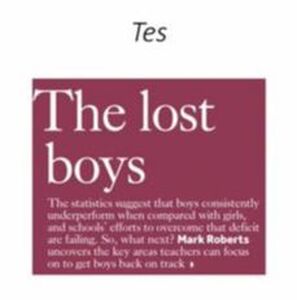 Mark began with the call to action that the well documented gender gap cannot be allowed to continue. Nationally, boys are underperforming compared to girls. Locally, the percentage of boys attaining strong English and Maths at GCSE is 6% below that of girls in Torbay, 7% in Devon and 10% in Plymouth. This first session looked closer at Expectations, Motivation and Relationships. Myhill and Jones’s study at the University of Exeter on “Troublesome boys' and 'compliant girls': Gender identity and perceptions of achievement and underachievement” (2004) asked teachers whether they thought that boys should do as well as girls at school. The results were significant. 80% of teachers from the collection of primaries, one middle and one secondary schools in the study said yes, boys should do as well as girls; which might, at first, appear to be positive. However, it calls into question the 20% who had clearly “written off” boys before they had even started. Teachers were found to refer to attitudes to girls and boys achieving well or not well at school as “typical” behaviour and if they performed better or less than expected, often noted this as an anomaly. In particular, the interesting disconnect was when teachers said that they believed in boys, yet commented negatively, reflected in how they responded to boys in the classroom. Research found more negative perceptions of boys than girls. Recurring words used to describe boys were “fidgety, immature, lazy, disruptive, noisy and apathetic.” Labels, as we know, can be damaging and become generalisations. Labels do not help boys who are switched off and need to find new motivation. Teachers’ preconceptions were found to impact on student performance. Myall and Jones led a follow-up study a few years later and asked students, “Do you get treated differently depending whether you’re a boy or a girl?” 62% said yes, boys get a “raw” deal from teachers in their school with the following key differences:
The delegates considered ways that this different and detrimental gender treatment might look in the classroom:
Negative messages to boys can lead to low expectations and the risk that the academic potential of boys is side-lined due to the focus on their behaviour, which can cloud the judgement of their academic potential. Jackson’s research at the University of Lancaster on, ‘I have a sense that it's probably quite bad … but because I don't see it, I don't know’: staff perspectives on ‘lad culture’ in higher education” (2021) looked at “laddish” behaviour and listed the following behaviour characteristics:
High expectations from teachers are vital. Mark considered the Pygmalion Effect of the self-fulfilling prophecy, in which situations with high expectations lead to improved performance and low expectations lead to worsened performance. Teachers will not admit that they have low expectations. It is often unconscious. But the good news is when pupils sense that teachers believe that they can do well, they notice and respond to expectations. A study by Green, Martin and Marsh at Western Sydney University on “Academic motivation and engagement: a domain specific approach” (2005) described academic motivation as: “Students’ energy and drive to learn, work effectively, and achieve to their potential at school and the behaviours that follow from this energy and drive.” Motivation can be either extrinsic and intrinsic. Generally, girls are more intrinsically motivated and boys extrinsically motivated. Often, girls do not believe that they are clever and work harder in terms of quality and quantity of work and have better concentration and evaluation skills; whilst boys respond better to external rewards. Success leads to motivation, not engagement and there needs to be more consistency amongst subjects. Mark shared his practical tips on how to motivate boys in the classroom: 1. Feed for fulfilment (scaffolding an answer). 2. Rephrase to amaze (add in extras to make it sound like a great answer). 3. Let them write like you (show what excellence looks like and narrow the gap). 4. Do not focus on grades (relieve the external pressures and obsession on goals, encourage boys to enjoy learning instead to reach the goals). And remember, it takes time! Boys can fall back. As part of considering relationships, Mark presented a series of scenarios of misbehaviour and invited delegates to consider how they might respond. In avoiding a confrontation at the start of the lesson e.g. for a uniform infringement, teachers would avoid a public confrontation, regular shouting and be aware of their body language. Time would be given for boys to cool off and reflect and the teacher would use polite, insistent language (“thank you”). Wherever possible, Mark advised the group to depersonalise boys’ behaviour and to deal with it discreetly. Avoid using individual names. Pluralise, so that one particular boy is not centre stage for a telling off. This can be powerful to remove any theatre /drama from the classroom in front of peers. Another pragmatic tactic in the classroom, instead of speaking, Mark highlighted how boys often respond better to non-verbal gestures (see how many you recognise here): How teachers praise boys can also make a difference. Boys prefer private praise. Mark advised against praising for basic behaviour, as it undermines boys’ confidence, as if teachers do not expect them to do anything more complex. Boys like and respond well to positive contact with home for genuine praise and Mark shared his routine of phoning home to parents on a Friday afternoon to end the school week on a positive note. Importantly, praise ideas and the boys’ work, rather than them, as an individual. Research has found the most effective form of communication in helping boys to behave well is direct, but non-threatening, with honestly articulated thoughts and feelings; not using blame, and considering the other’s needs, and trying to patch things up and being firm, but fair. In conclusion, teachers often have lower expectation of boys’ behaviour and academic potential and in order to support boys’ and build motivation, they need to taste success in a subject. The best way to support boys to behave better is for teachers to adopt a calm and direct teaching persona that is ultimately motivating. 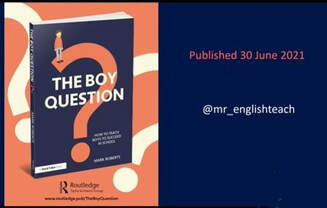 Delegates asked questions based on their own experiences of teaching boys. Does research show that boys have a dislike of being taught by female teachers? Reassuringly no! Research shows that boys want kind teachers who know their subject. There may, of course, be some openly misogynistic boys; but this would be a question of deeper issues that need unpacking and guiding boys to understand why this attitude is unacceptable. This would raise potential safeguarding implications and additional support for teachers, particularly female teachers. Similarly, how can teachers deal openly with boys’ views on the controversial Andrew Tate? Mark acknowledged that context is key and individual teachers are not expected to work on their own. Work is required school-wide through dedicated staff professional development training, and assemblies etc to convey a positive ethos and culture that deconstructs and unpacks perceptions of what boys seem to like about these negative role models. Is it genuine or provocative? If, it appears to be a genuine obsession, Senior Leadership and safeguarding input may be needed. Importantly, however, boys need to feel that they have been listened to; otherwise, silencing could belie conspiracy theories. One teacher noted their work on the transition from primary to secondary school and how boys can struggle more than girls. Mark agreed that peer pressure in anti-school attitudes can be a big issue for boys in how they perceive reading and writing to be uncool and complete homework with the bare minimum of effort. Notably, boys tend to be less organised; possibly, in part due to the way that they are raised and socialised and expectations on them and they will need to work harder, which takes longer. Is there research that shows boys respond differently to rewards for good work compared to girls? Research shows that boys are more motivated by rewards than girls. But in the long-run, research shows that extrinsic rewards are not good for boys. The risk is that when these tangible rewards cease, boys might stop working. At Mark’s school, they have removed merits and instead, have introduced a small square card presented to pupils: “A positive note awarded by Mr Roberts…” which they can show their parents. This moves away from the idea that boys need to receive something tangible for working and behaving well and is a healthier nudge towards intrinsic motivation. One teacher asked for guidance on how to manage a disruptive Year 11 “boy heavy” (caution the use of “burdensome” language!) double lesson that boys struggle more with. Mark suggested separating the two hours by building in periods of silence as standard expectations and explaining the reason is to work hard and to focus and to incorporate expectation reminders. In seeking advice in how to fight against laddish culture and counterbalance toxic masculinity, Mark encouraged the group to be kind and gentle and to celebrate the good aspects of being a boy; which needs to be school-wide and revisited constantly in tutor time, PSHE etc. Another delegate asked why boys present their work less well. Clearly, teachers like to see all pupils’ work neatly and well presented. Graffiti on work/books can show a lack of focus and poorly presented work can be an act of rebellion. But to maintain motivation, teachers need to balance priorities and feedback on content and not over-obsess and make presentation the main focus. We thank Mark for this launch session that opened up an encouraging discussion in how to teach boys to succeed in school. The next session is on Wednesday 8 March 2023 from 1545 - 1715 and future sessions will deep dive into the key issues that are the most important for delegates’ own contexts: whether behaviour, motivation, and raising expectations. Report by Jude Owens, PA to the SWIFT Executive Team
28/2/2023 0 Comments Introducing the Leading Schools South West (LSSW) Leadership Study Visit Programme“Brilliant thinking and learning opportunity that we all need sometimes to reflect and get perspective on what we are doing already.” SWIFT is proud to be working with Leading Schools South West (LSSW) on their soon-to-be launched Leadership Study Visit programme to national high performing Schools and Trusts. This builds on the successful LSSW/ SWIFT partnership of supporting professional development for school leaders across the South West though the programme of National Professional Qualifications (NPQs). The Leadership Study Visit programme aims to:
At the beginning of February, a group of 14 school leaders from a variety of contexts in Devon and Cornwall participated in a pilot programme visit looking at Implementation Coaching and a programme of group coaching to support leadership development with a view to the implementation of change during the remainder of this academic year. Accompanied by SWIFT Director, Martin Smith, the group visited Reach Academy, Feltham and King Solomon Academy, two outstanding, forward-thinking 2 - 18 years schools in London and met with school leaders, teachers and students, and spent time in lessons. The participants valued the opportunity to network and strengthen links and relationships; collaborate, discuss, reflect and share ideas and valued the benefits of observing good practice in action in the different and contrasting schools’ settings and discussions with school leaders about their work and leadership journeys in the context of their own settings. For some delegates, it provided an understanding of the 2 - 18 years model in action. In particular, the study visit facilitated reflection on the schools’ outstanding provision, different curricula, challenging cohort characteristics and catchment areas. The LSSW/SWIFT participants considered and learned from both similar and different systems, approaches and values that helped them to gain a broader insight into education and ultimately, they benefitted from the joined-up thinking, enhancing and reinforcing their own professional development to date. Participants enjoyed the dedicated time to focus and reflect purposefully and identify particular strands, strategies and how improvements could help to refine and strengthen their own current practice and understand how getting the basics right, i.e. consistency and routine, can work in practice. The clear vision articulated by the visit school leaders with plenty of opportunities to ask questions when visiting classrooms was valued and participants commended the cradle to career pathway and holistic provision at the Reach Academy. Both schools were praised for their students. Of significant note was praise for King Solomon Academy’s talented and articulate students, who spoke with confidence and passion and love for their school and were an inspiration for their ambition and work ethic. Participants also commended the aspirational children at Reach Academy and the sharp focus on community and they liked the clearly embedded routines and habits and strong school brand with values and clear and explicit purpose. The clear explanation of the model of driving impactful teacher development through consistent and professional expertise was praised at the Reach Academy. For example, morning practice and fortnightly School Leadership Team (SLT) drop-ins and instructional coaching, rather than Faculty Meetings. Participants also liked the approach to Teaching and Learning through explicit Doug Lemov “Teach Like a Champion” strategies, resources and language and observing the coaching model in action. It was reassuring for delegates to understand that using research works through a consistent approach delivered by enthusiastic staff, plus the ability to backward plan and maximise the use of subject expertise. It was also insightful for the participating school leaders to reflect and compare curriculum similarities and differences with their own school situations. At the Reach Academy, the participants found the Key Stages 1 and 2 classes to be inspirational, liked the strong practice in Read Write Inc (RWI), persistent focus on reading across the school/the curriculum, the Early Years degree model and phonics teaching (and how it could be used in secondary schools), the set up for the reading book club lessons and Curriculum Design and use of booklets, and how this sits with effective scaffolding. At King Solomon Academy, participants commended the relentless ambition towards university access for all and liked the tightness of centralised systems (including lesson planning and resourcing to allow for "intellectual preparation). Whole school behaviour management strategies (including residentials across all year groups and "payslips") were also commended and the clearly described and explained SEND perspective. Notably, the visit provided refreshing time away from “the daily ebb and flow of school life,” with time to think and reflect strategically. SWIFT and LSSW thank both the Reach Academy and King Solomon Academy for hosting the visits and for their openness and offers to share resources. Look out for information about the programme on our SWIFT CPD Programmes Calendar. Report by Jude Owens, PA to the SWIFT Executive Team
31/1/2023 0 Comments SWIFT History Masterclass Session 3 | Revision Strategies in History with Carmel Bones“Revision is for life. Not only for exam time.” The third SWIFT History Masterclass session was led by a popular personality in the History teaching community. Carmel Bones’ credentials testify to her competence and commitment to the profession. But being in the same room as Carmel – albeit virtually – her enthusiasm and passion for teaching, plus her tried and tested experience from a 30-year teaching career (so eagerly shared) were wonderfully apparent. You can read Carmel’s biography at the end of this report. Carmel’s session on revision comes at a point when reinvigorating this fine art is proving to be a challenge in schools. Carmel is clear that students need to get used to revision, that it requires mental effort by them as the learner and that they are responsible. Teachers can only do so much. Fostering independence and autonomy so that students are motivated to do their own revision is essential. “Students, your learning needs you.” Forget the idea of looking through folders and exercise books to recognise information. Take a blank piece of paper and retrieve the information from the forefront of your mind. Clearly, students have different starting points so cues and prompts maybe needed too. But by embarking on revision skills with the younger years it is natural for GCSEs. Get students into good habits of learning and memorising and retrieving - early. Rather than leave revision until Easter or when the exams are imminent, revise as you go along. Teachers need to be ambitious and do what they can do to support students, to get the information into students’ heads… and the best grades will ensue. Try this tested technique by Carmel’s daughter. Ciara felt that she had been “given” her GCSEs as a child of the Covid lockdown and did not know how to revise for her A Levels last year. So, she fast-filmed herself making old fashioned flash cards, and then tried to recall what she could by mind mapping and noting any gaps, before returning to the flash cards or text books as necessary. This method tested her memory and retrieval and enabled her to note her progress. Ciara’s History grade A* endorses her method. Worked for her! But with the obvious cautionary note to put distracting mobile phones and tablets away when revising! Referring to evidenced research. Check out The Great Teaching Toolkit that encourages hard thinking and embeds understanding. Lots of R words! Reinforce the information. Review and revisit as you go along. Retrieve. Revisit. Retain. Rehearse. The most effective revision is practising retrieval and calling the information to mind. Use it or lose it (as they say)! Also see Dough Lemov’s Teach Like a Champion - a study of the craft of teaching with successful outcomes. Memory is the residue of thought. Make it stick. On that sticky note, Carmel recalled her own Geography teacher guiding her to remember how liquid stays hotter for longer than the land. He literally made it sticky with the treacle sponge principle. Perfect (and delicious!). Other personal examples: PG Whips, à la PG Tips… to remember Parker, Grindal and Whitgift Elizabeth I’s three Archbishops of Canterbury. Use mental models that work for the students and ask them to share how they remember. With gusto and glee Carmel shared a plethora of top tips. Invite students to write a song, or a mnemonic to help them remember the material. Choral speaking: sing it back! Try the catchy Pomodoro Technique (for everyone, including Italophiles!). Use a timer for students to recall information. Register Wars. An idea from Lesley-Ann McDermott shared at the Schools History Project 2017. Tee up the students beforehand. Mix up the students’ surnames and when you call out their name for the register, they have to say a word linked to what you have been studying. Keep it live, active and low stakes and it very quickly shows any gaps. An added twist, include a buzz word that places extra emphasis as the golden word. Given the register is a legal document and students have to answer for their name high participation is guaranteed. Dare to devolve the revision sessions to the students. Get them to lead the class and ask questions and summarise learning. Create a supportive environment and motivate students to make them want to revise. Build class camaraderie and collaboration by planting a secret (student) spy who reports back at the end of a lesson on who has worked particularly well. Students look out for each other and it also means the teacher is not always on the case. Check out the technology. Use multiple choice questions with the free card activity plickers or Ankiapp flash card app. Get the students moving. Harking back to her childhood, Carmel suggested taking revision out of the classroom, say to the school hall. A different (novel) location can boost recall. Inspired by the 1970s children’s tv show “Runaround,” invite students to select multiple choice answers by standing on mat 1, 2 or 3. Make their thinking visible. Go deeper and controversial and work up to an essay question or debate. Another game. Bunch of 5ss. Demoed by willing volunteers, Becky, Paul and Andrew, who in a classroom situation would have been out at the front. Model the rules first: One asks the questions. One answers the questions. One counts the bunch of fives. Set the timer and let’s play! Name five types of cake… Fun either verbal and/or written, the game of 5’s creates an element of competition that students love. They see progress, are motivated and can spy any gaps for urgent revision. This can also be a paper-based activity as inspired by Karen Knight. More games. Create a simple fact board, 6x6 grid. If students land on a square they say five things about the topic. Tarsia puzzles that connect topics. The Bermuda triangle to fill in the missing pieces. Summarising pyramids of information with words and phrases visually themed for the time of year. So, lots of ideas to retain information, next to do something with it and look after it as if it is precious. Learning is a reiterative process. Turn it into pictures or diagrams. Encourage students to make it their own. Testing and study are interchangeable and highlights those important gaps. Get the students to mark each other’s own work. They will want to close the gaps in real time and it also stimulates discussion and pride in their work. Look at the derivation of words that can help to remember and embed subject specific terminology. In a lovely supportive way mirroring school and home, students’ families can get on board too as the teaching triangle. The Protégé Principle, of teacher, student + someone on their side at home who supports their revision. Who would have thought that revision could be such fun? Were it not for the confines of our hour session, Carmel would have clearly raced on with even more ideas and insights. But we were grateful for the time and thank Carmel Bones for being an uplifting and enriching History Masterclass session 3 speaker. We thank Becky Bailey, Executive Director of History of Westcountry Schools Trust for organising the SWIFT History Masterclass Series and of course, our delegates for their whole-hearted participation. Report by Jude Owens, PA to the SWIFT Executive Team Carmel Bones | Biography
Carmel Bones is an Honorary Fellow of the Historical Association. A regular conference contributor she spoke at the Historical Association National Conference in Bristol May 2022. During the lockdown, Carmel formed part of the national BBC Daily Bitesize lockdown team producing tailored content for home learning used by millions of families and collaborates extensively in schools across the UK and Europe focusing on all aspects of learning and teaching; real and remote. 2023 Sees the launch of the ReTeach History Podcast series with Carmel as host and two new BBC Bitesize GCSE History series focusing on USA in the 20th Century and Crime and Punishment Through Time. These followed her highly acclaimed ‘Explain This’ and ‘Cluetubers’ Series’ for BBC Teach. In 2020 she was listed in the prestigious Edtech50 for her innovative work bringing the historic environment to life through virtual visits as part of teacher and student webinars and was a finalist in the Teach Secondary Awards Best CPD Category 2022. Carmel’s secondary content work with Clickview and Hodder was nominated for the Bett Awards 2020 and Teach Secondary Awards 2020. Her work on curriculum design was published in Teaching History Magazine in December 2021 and she was appointed to the ReTeach Content Board. She has co-authored two Amazon best-selling Hodder books in the ‘My Revision Notes’ series for GCSE History. Carmel is proud to be a long-standing trainer and team leader for the Osiris Teaching Intervention leading the first secondary and whole school cohorts in Scotland. Last week, the Department for Education (DfE) presented a live webinar to discover how to support staff at all levels and access the wide-ranging support available from the Department to improve staff experiences and ultimately improve pupil outcomes. The event also featured guest Headteachers who shared their passion for teacher development and discussed examples of how the programmes are supporting the staff and young people in their settings. The webinar included:
To watch the webinar recording, click on the link below and you can also download a copy of the PowerPoint presentation and collated Q&A document.
ESW Associate & Strategic Leader of Teaching & Research Schools | Education South West Roger Pope CBE opens this July issue by considering whether we're facing a return to the 1970s. But...
"Research now trumpets that a culture of professional support and development in a school is what makes the difference to the effectiveness of teachers. Finally, we have a White Paper that values that culture, the funding to underpin it, and a system of Teaching School Hubs to help you to make it happen." This final issue of the school year includes a report on the SWIFT Summer Conference, A Theory of Change as an Implementation Tool for Professional Development, Michael Rosen's reading for pleasure top tips, an interview with NPQ Facilitator, Esther Best + more besides AND features from our sponsors. “Every child should benefit from a broad, ambitious, knowledge-rich curriculum, taught by highly skilled teachers.” (White Paper, 2022) We are pleased to bring you our new Masterclass series as part of our CPD Programme for 2022 – 2023. Masterclasses are subject-specific programmes with a focus on curriculum, teaching and assessment. Many are led by external subject experts with a national profile who are celebrated authors and speakers, and also include Ofsted inspector subject specialists. The year-long programmes at both primary and secondary are designed to boost teachers’ subject knowledge through enjoyable and edifying topics, plus the opportunity to network with like-minded subject colleagues. Primary English | Writing Matters - Enabling Achievement for All Session 1 - Understanding How we Write: Different Perspectives on Writing. Session 2 - Grammar as Choice: bringing language and meaning together. Session 3 - Going ‘Meta’: metacognition and metalinguistic understanding of writing. Session 4 - Writing across the Curriculum. Session 5 - Creative and Critical: Workshop Approaches to Writing. Languages | Effective Assessment in Primary Languages and Transition to Key Stage 3 Part 1 - Effective and time-efficient ways to assess Primary Languages attainment at Key Stage 2 Part 2 - Ways to establish and maintain links between primary and secondary schools Languages | Why Phonics Teaching in MFL is so Important ‘Why is teaching Phonics in MFL so important?’ Geography | What Does High Quality Teaching and Learning Look Like? Children as Geographers Session 1 - Environment Session 2 - Place and location Session 3 - Processes Session 4 - Diversity Session 5 - Sustainability History | What Does High Quality Teaching and Learning Look Like? Children as Historians Session 1 - Continuity and change Session 2 - Sources Session 3 - Significance Session 4 - Similarity and difference Session 5 - Causation and consequence Secondary English | Making Meaning in English with David Didau Session 1 - Intent Session 2 - Implementation Session 3 - Impact Session 4 - Responses to participants MFL | Masterclass Series Session 1 -The new GCSE and implications for teaching at KS2/3 Session 2 - Phonics Session 3 - Vocabulary Session 4 – Explicit Knowledge Session 5 - Use of the Target Language Session 6 - Quick wins for Year 11 Science | Masterclass Series Session 1 - Modelling in Science Session 2 - Checking for understanding Session 3 - Retrieval practice and strategies for long-term learning and memory in Science Session 4 - Assessment Session 5 - Curriculum Design Session 6 - Marking in Science/Whole Class Feedback in Science Geography | Role and Practice of a Knowledge Rich Curriculum Session 1 - The Opportunities and Challenges of a Common Curriculum Session 2 - Making the Most of Fieldwork Session 3 - Achieving Curriculum Coherence Session 4 - Selecting and Contextualising Case Studies Session 5 - Ofsted Speaker (to be announced) History | Knowledge and Skills for Teaching Session 1 - Literacy and Vocabulary, "The Power of Words" Session 2 - Assessment in History Session 3 - Revision Strategies in History Teaching Session 4 - Local History: the pleasures and the pitfalls of researching disability History Session 5 - A Representative Curriculum: Diversity in the History Curriculum Find out more here and book your place
|
SWIFT News
|
SPONSORED BY
Join us, be a part of our SWIFT community |
© COPYRIGHT 2022 SOUTH WEST INSTITUTE FOR TEACHING SWIFT. ALL RIGHTS RESERVED | Website by brightblueC
VIEW OUR PRIVACY NOTICES | VIEW OUR COURSE T&CS
VIEW OUR PRIVACY NOTICES | VIEW OUR COURSE T&CS





















































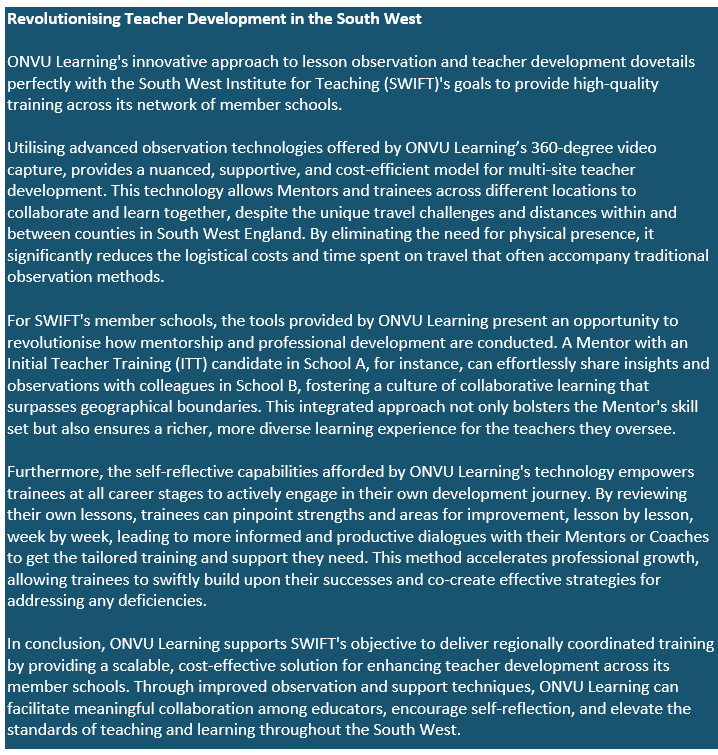



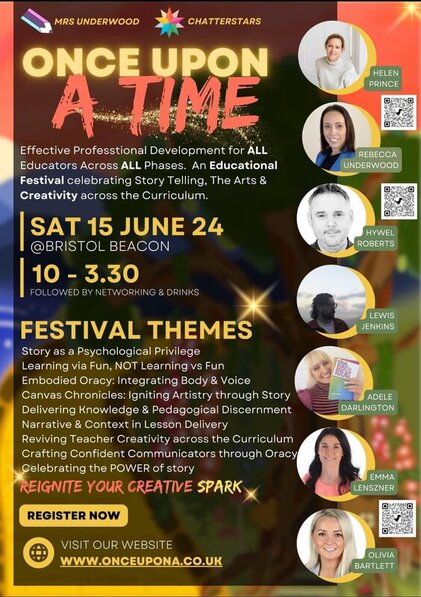
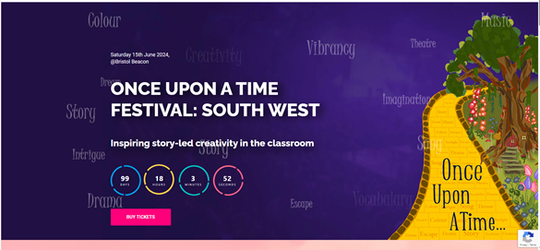

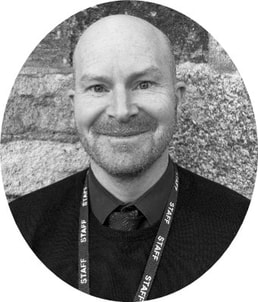
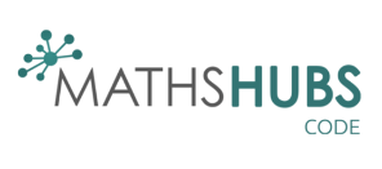

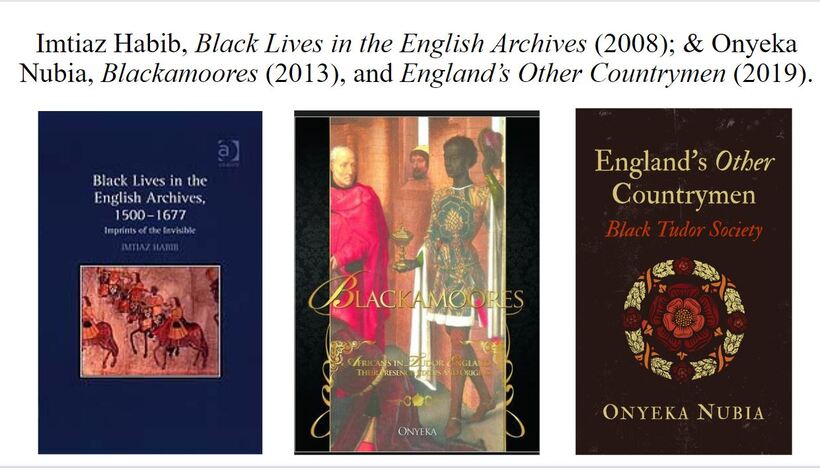
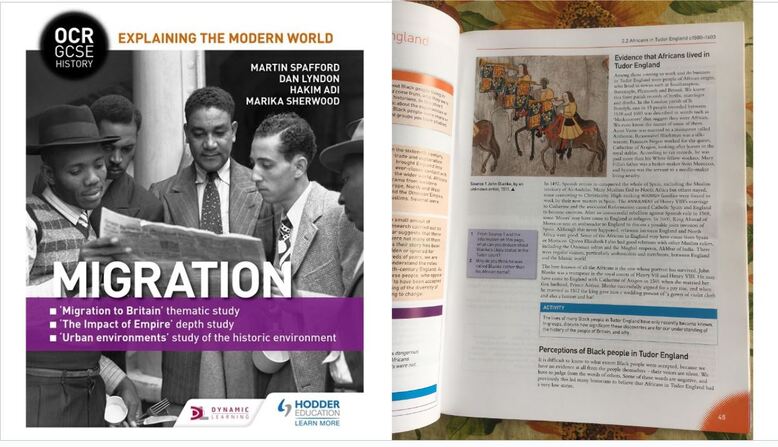
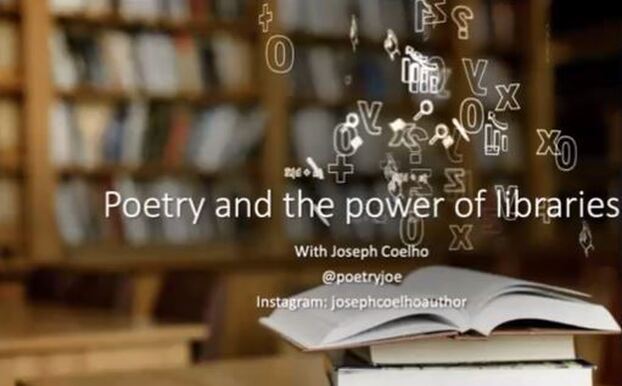
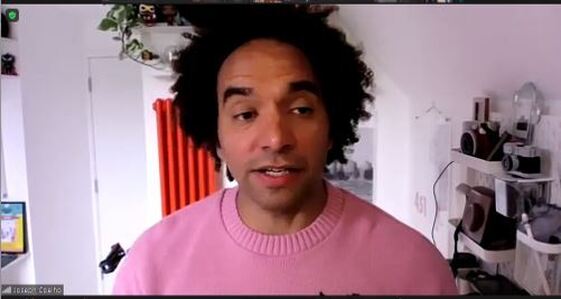

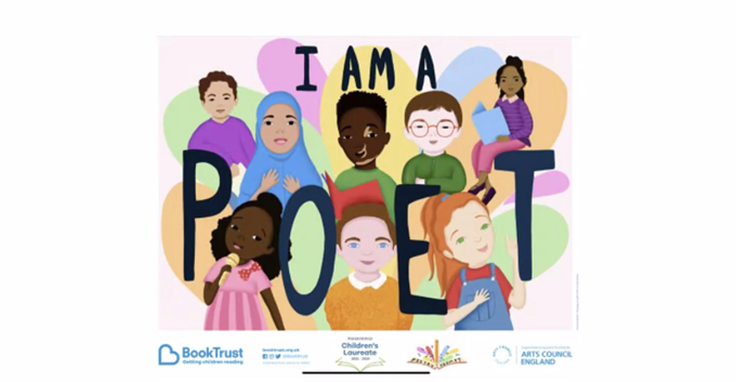
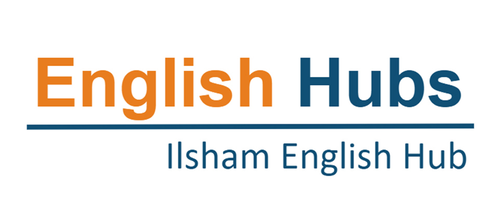
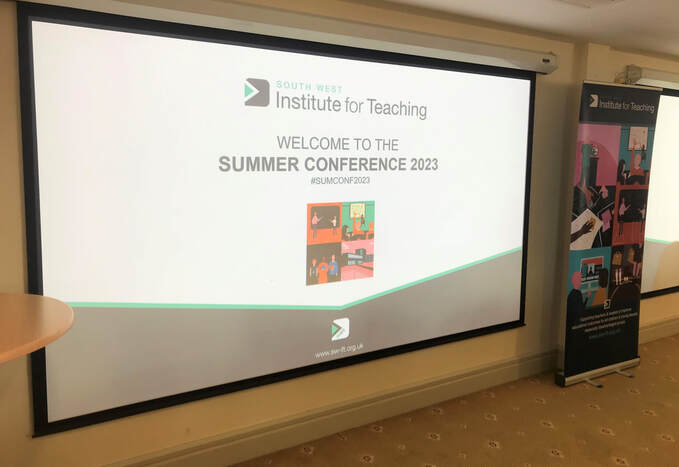

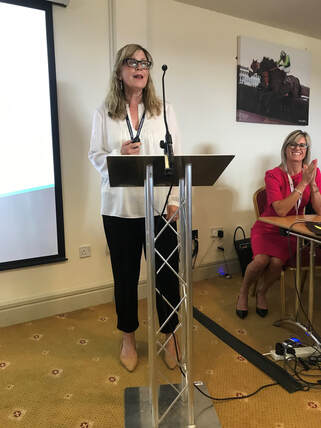
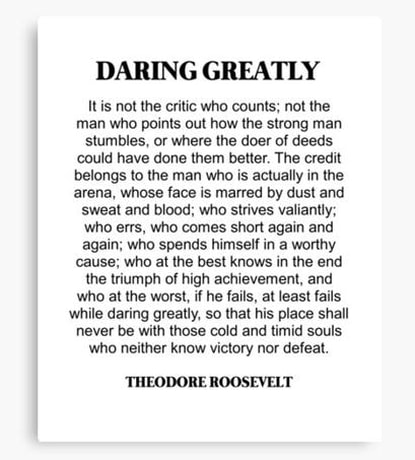

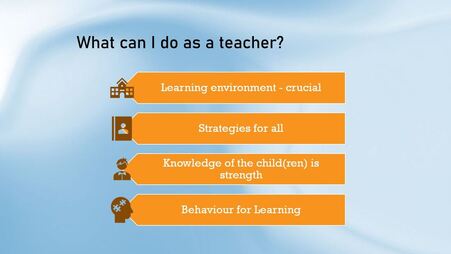
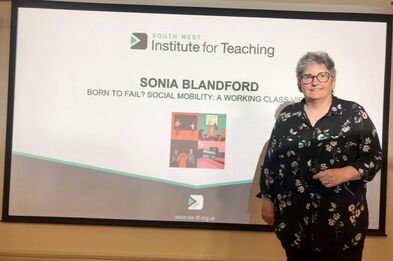
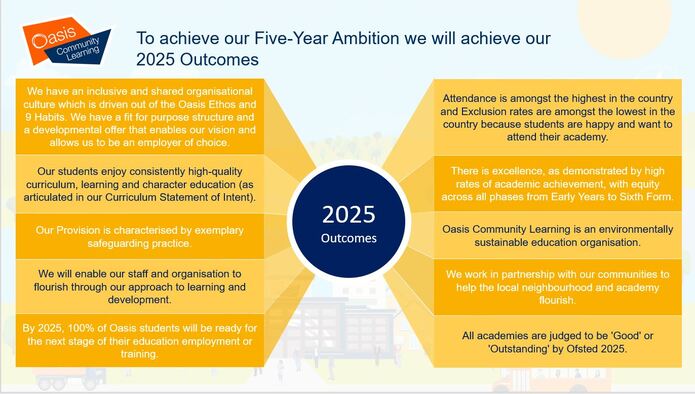
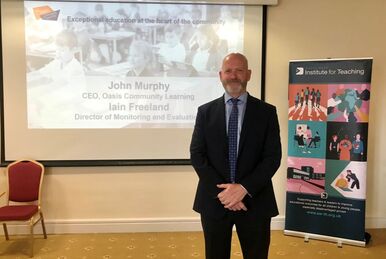
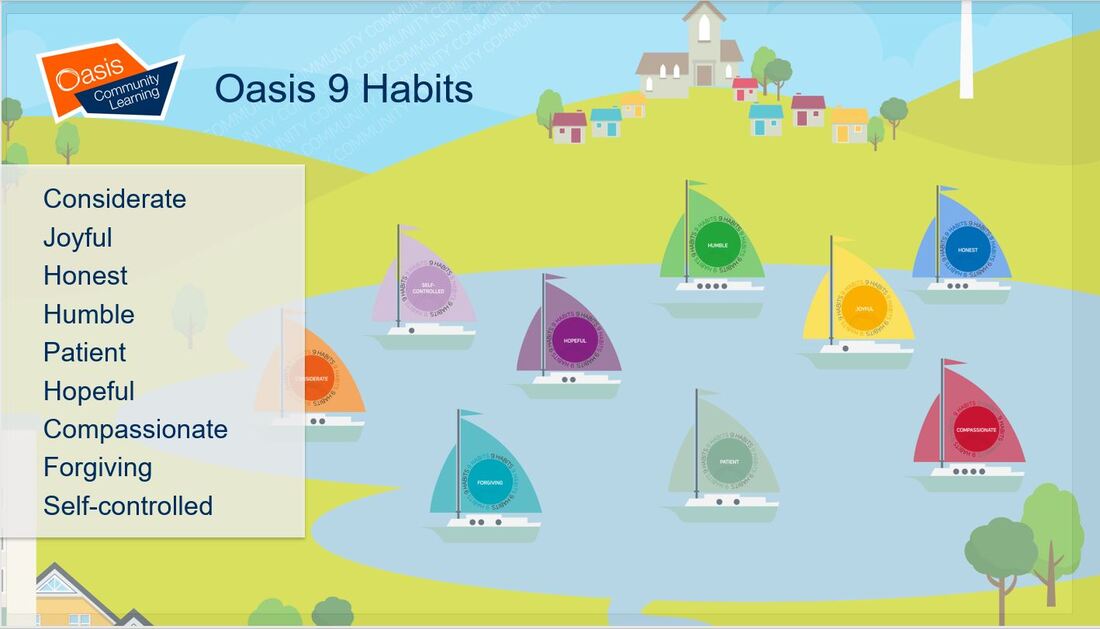
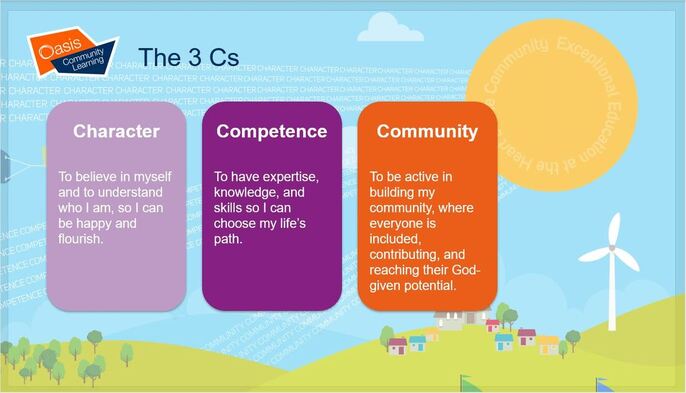
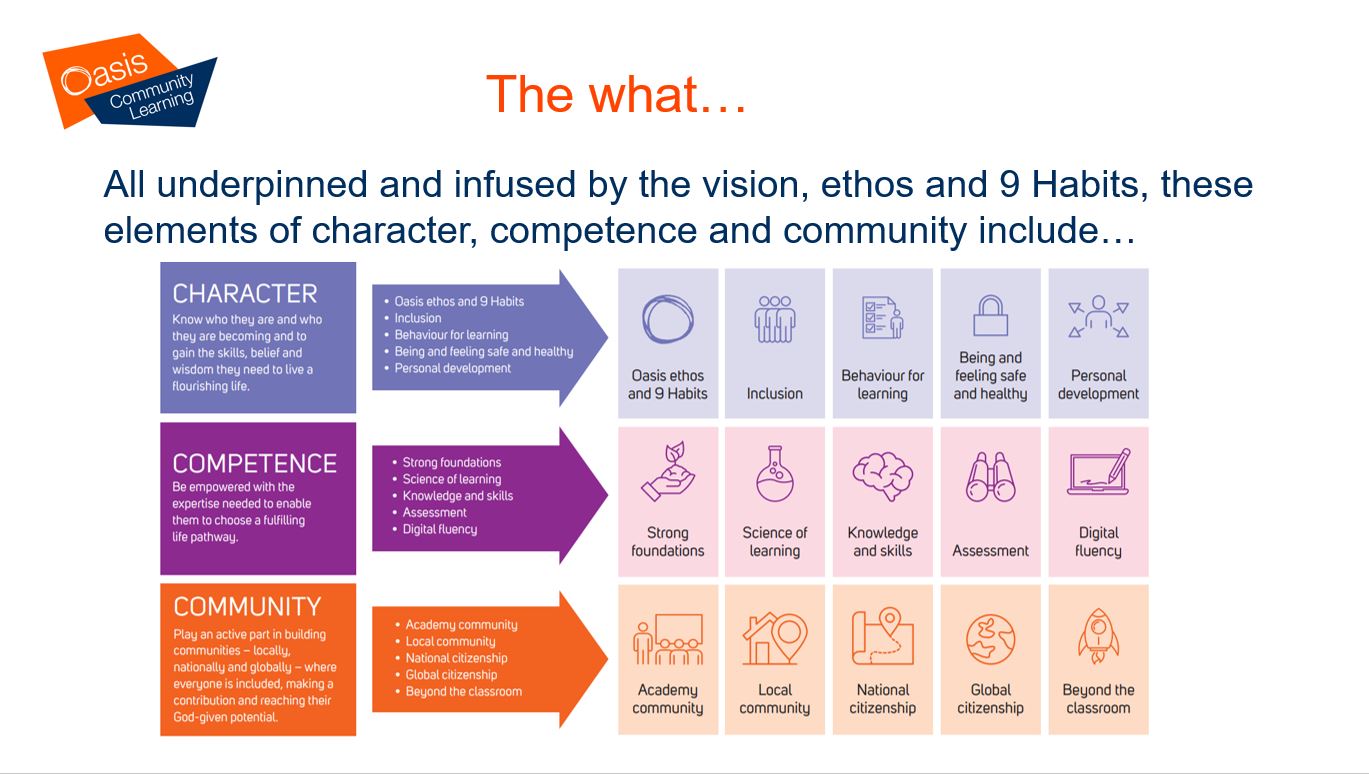
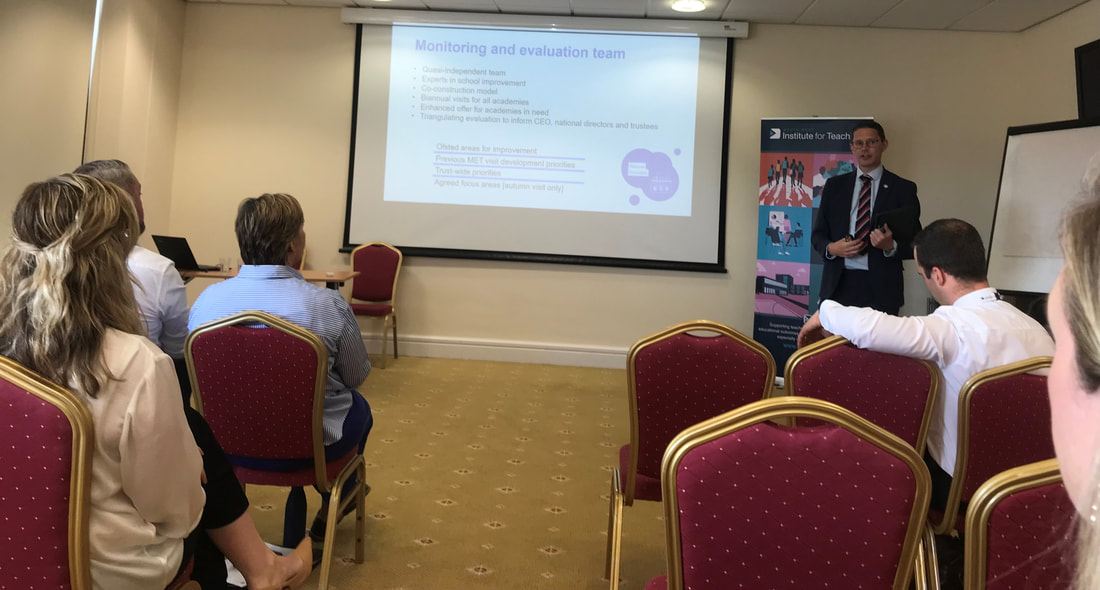
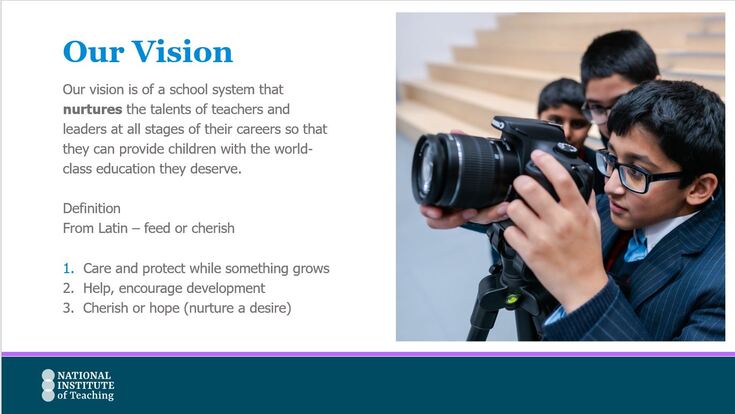
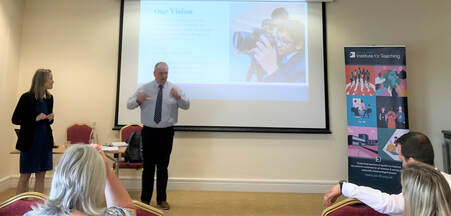
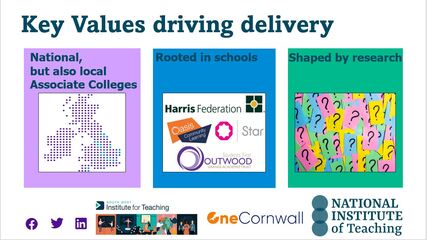
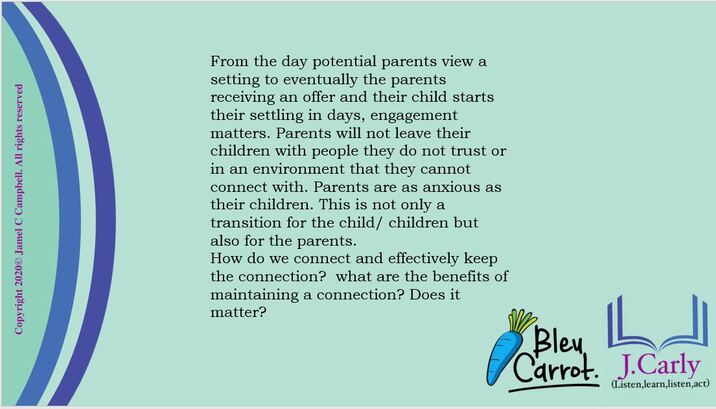

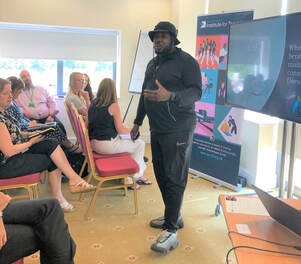
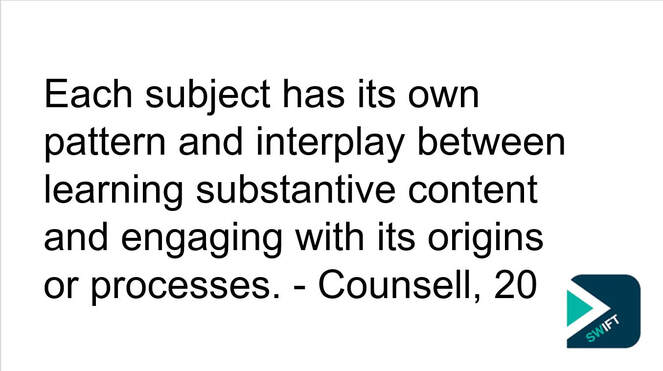
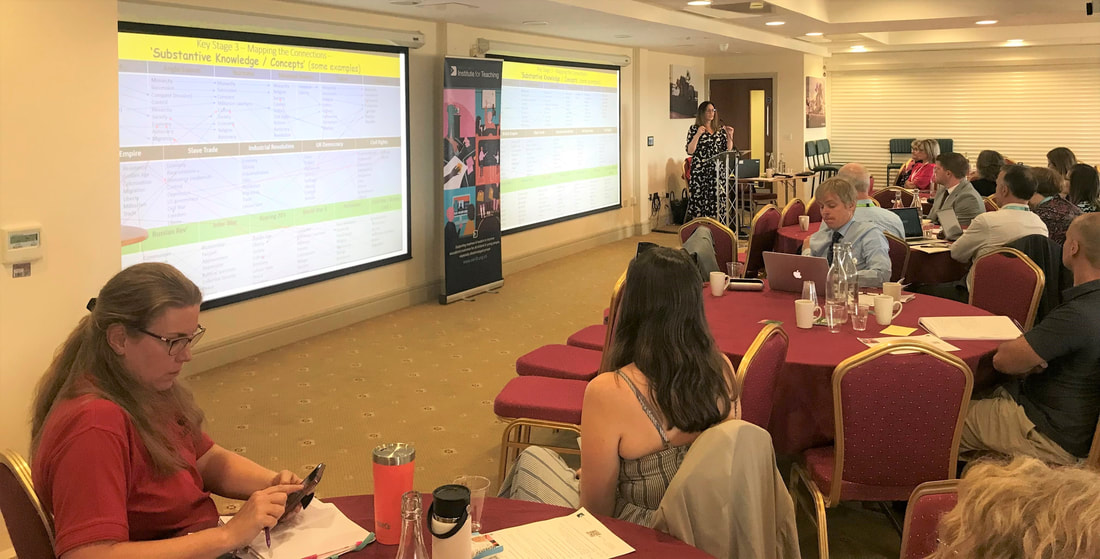
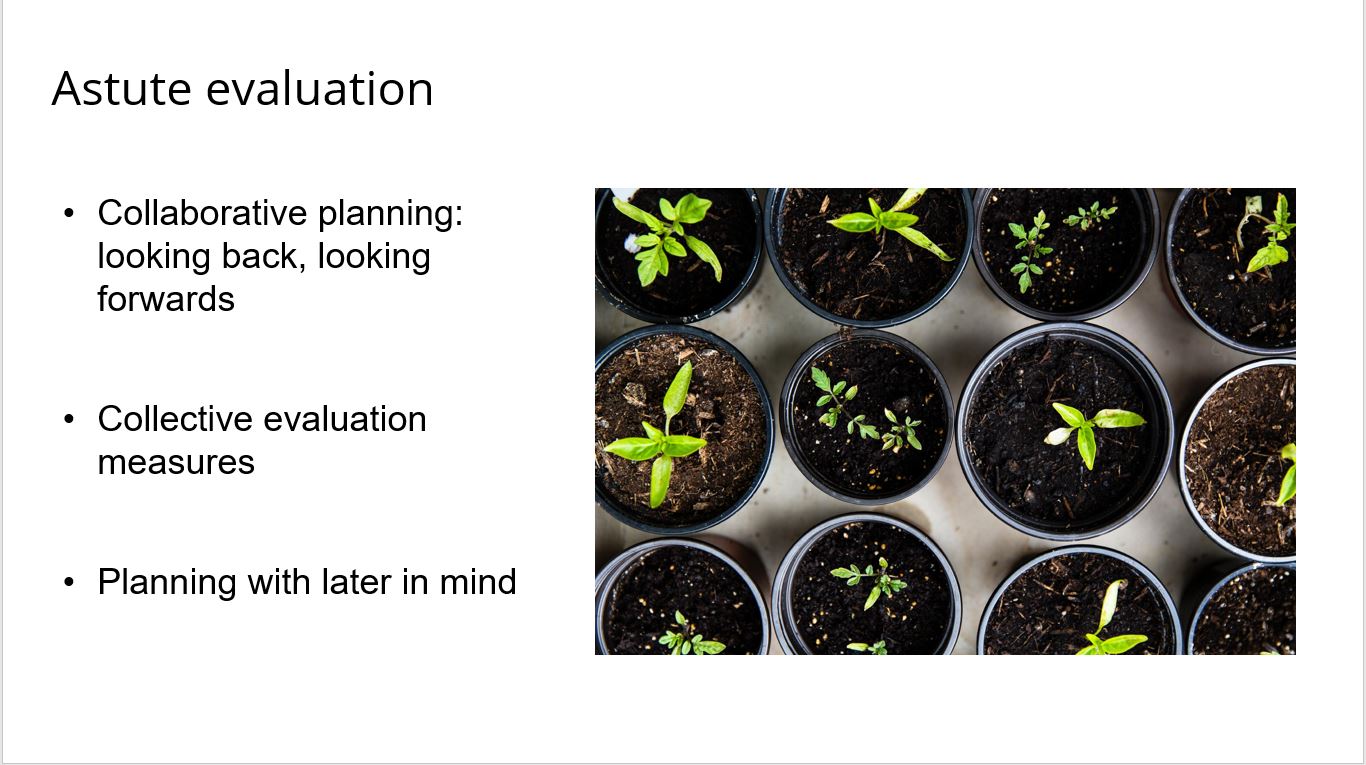
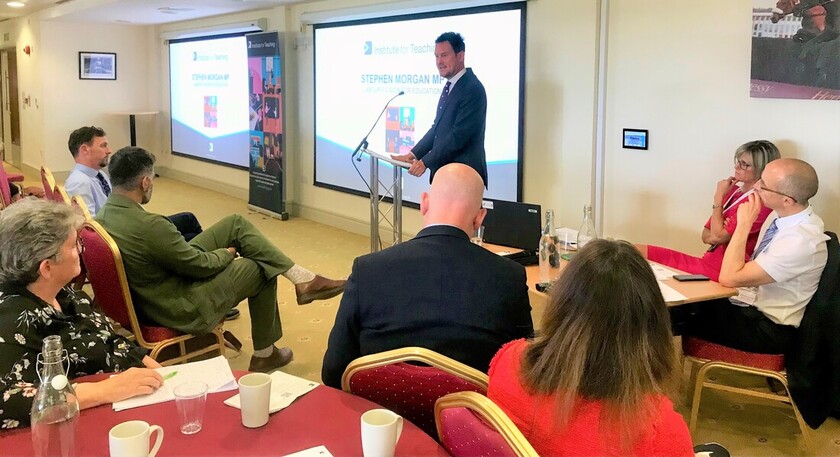
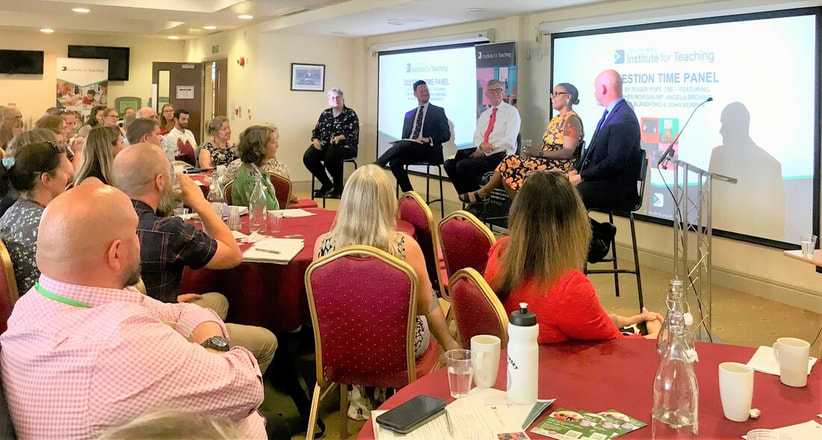
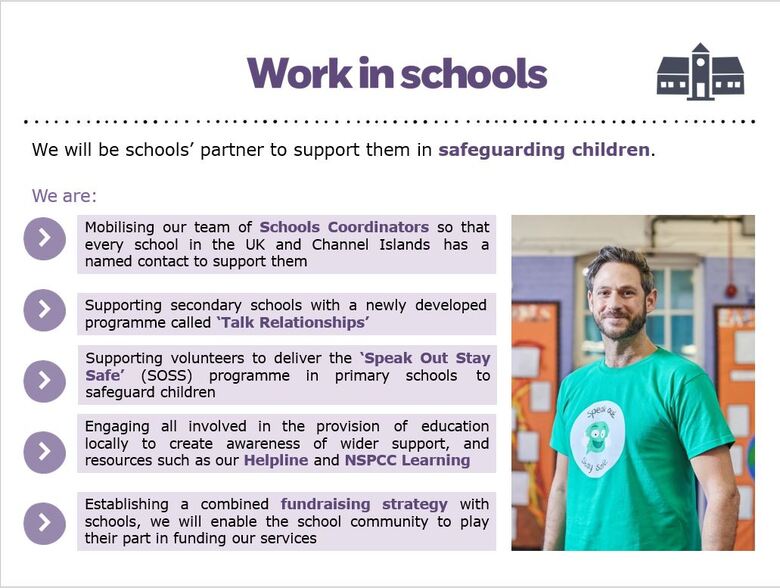
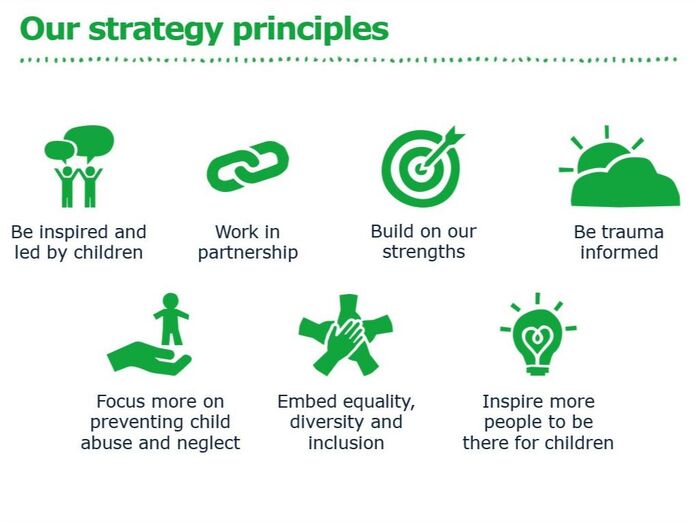
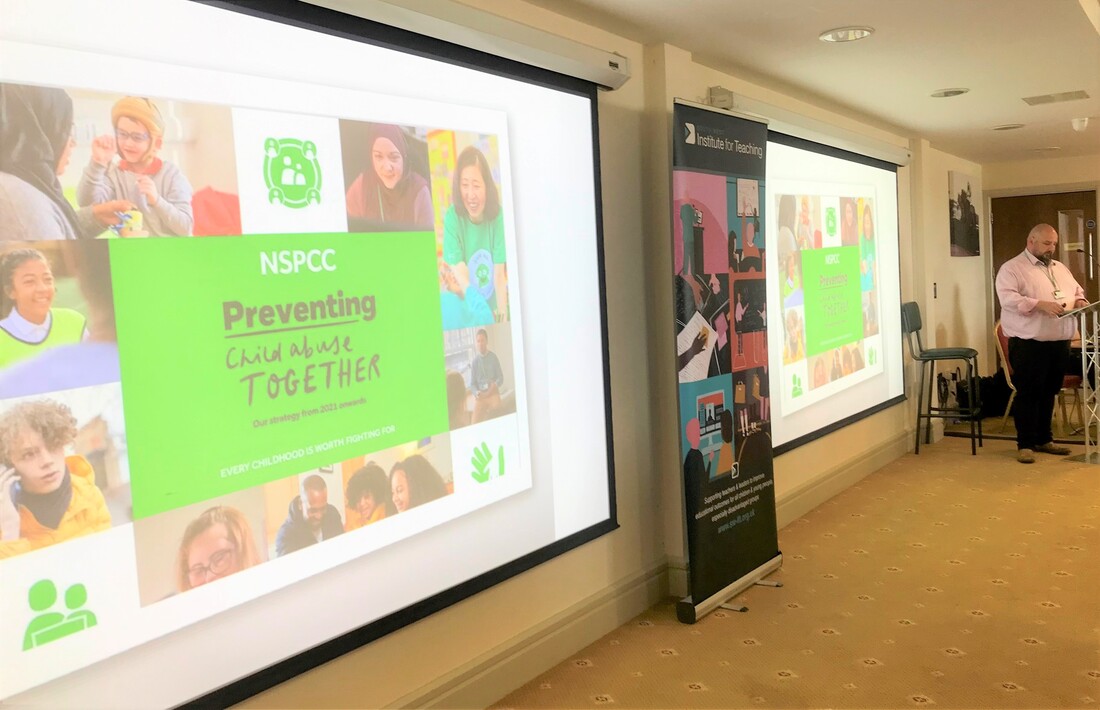
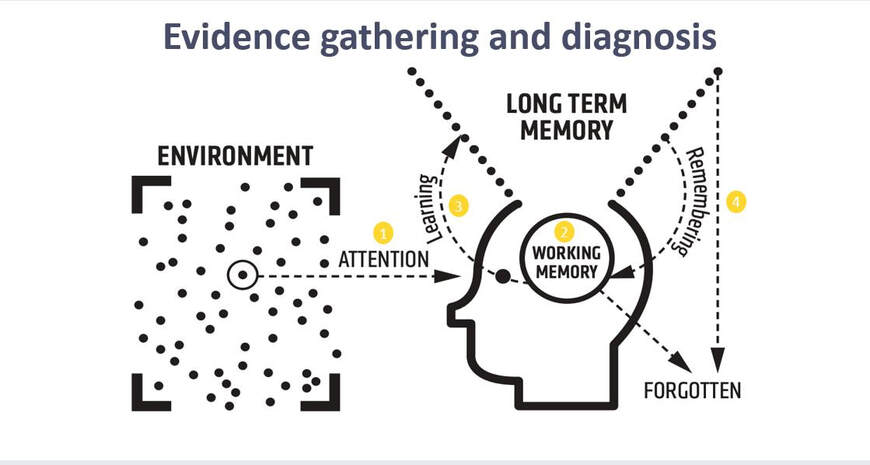
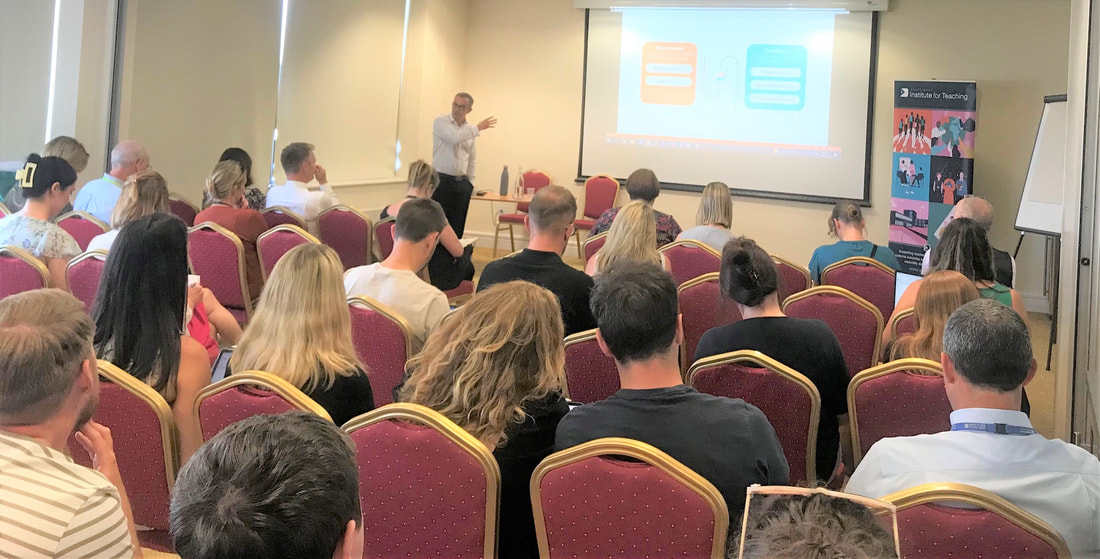
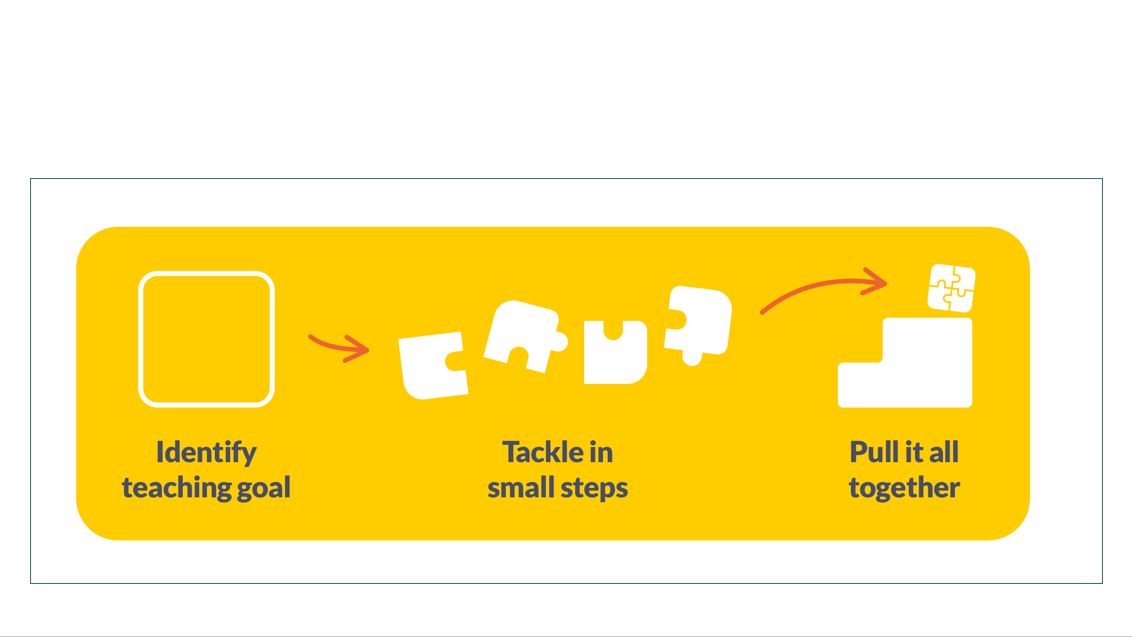
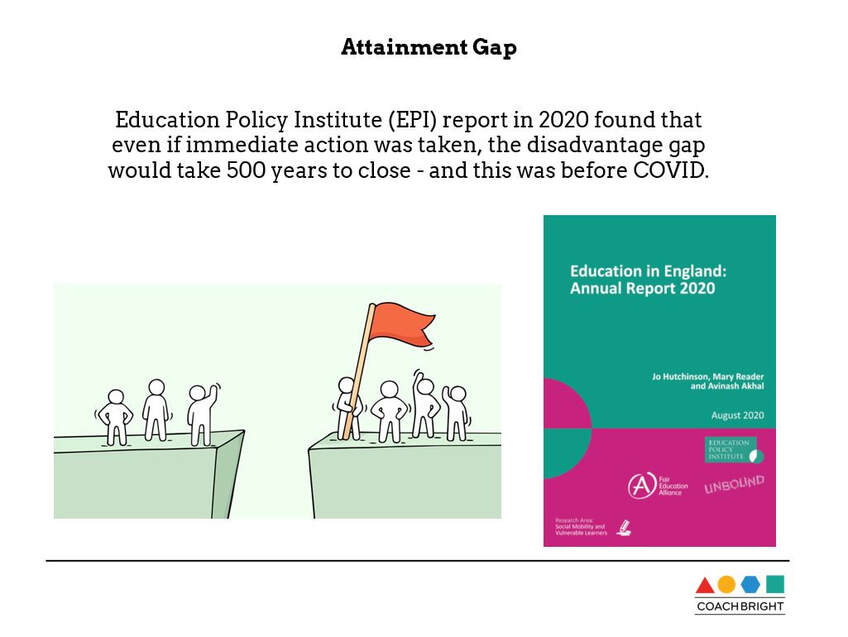
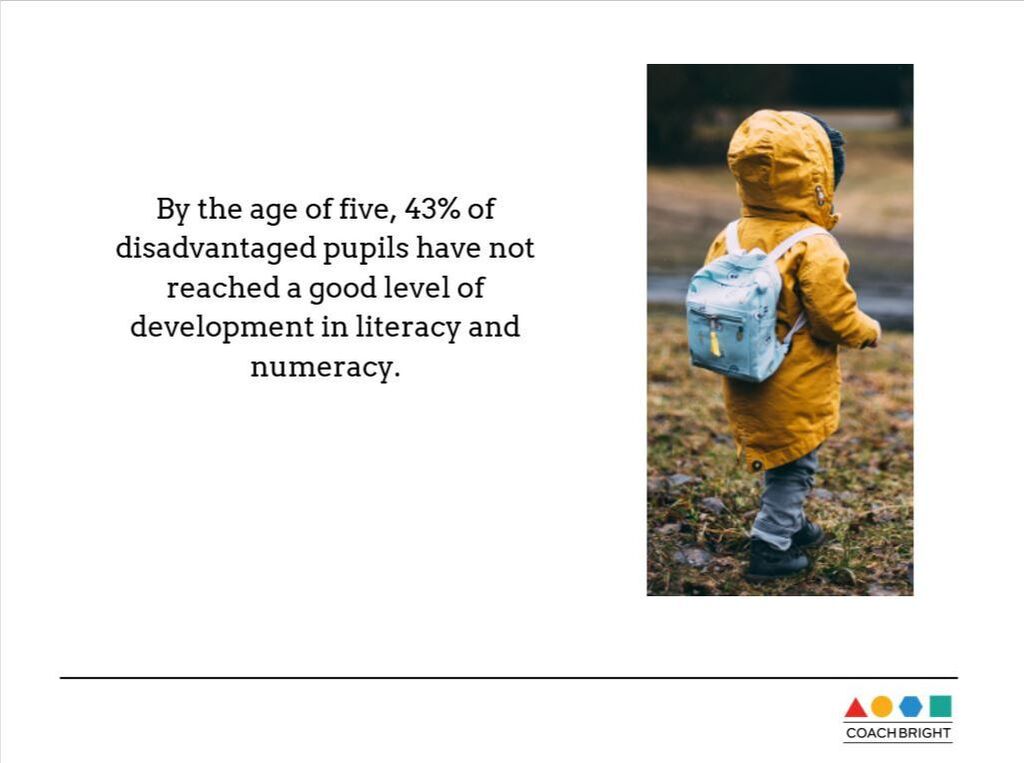
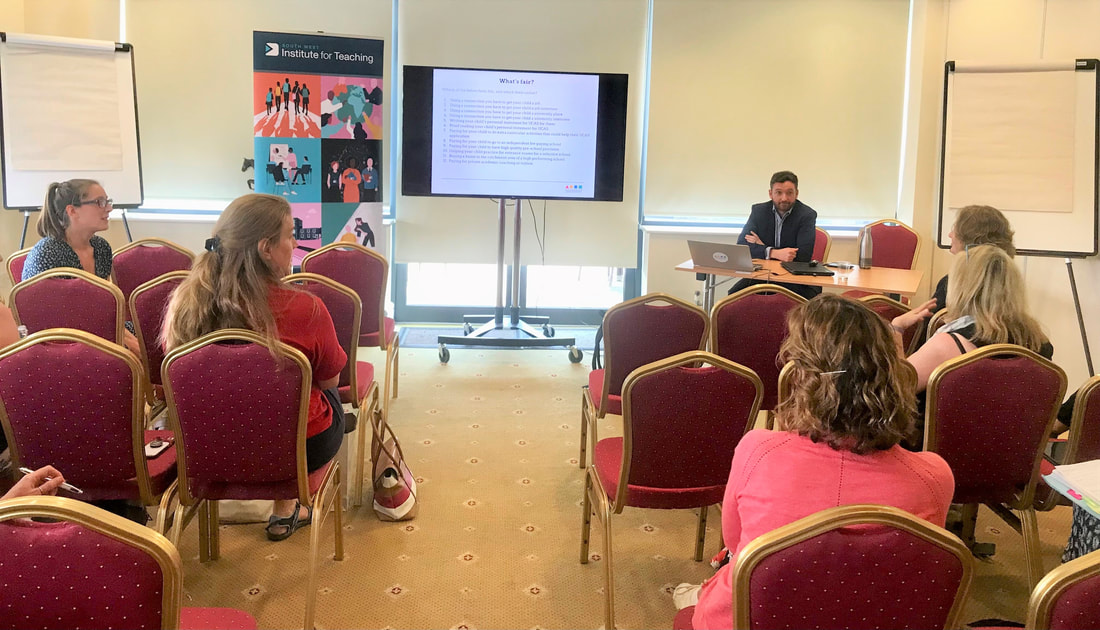
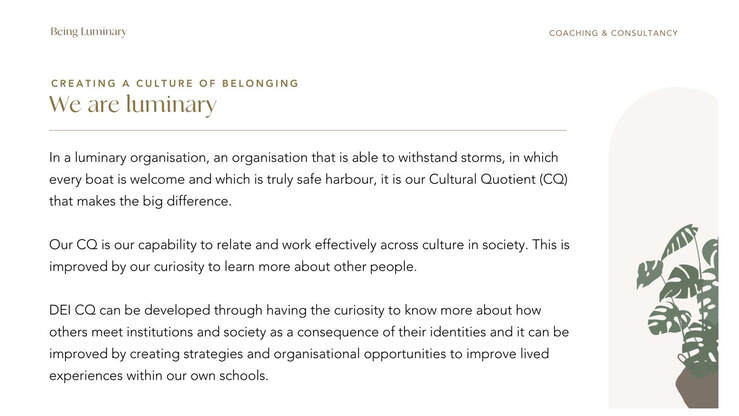
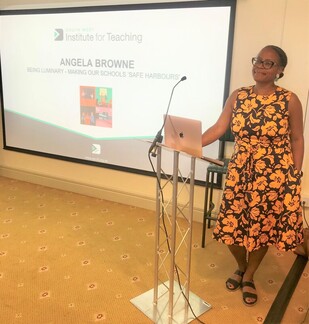

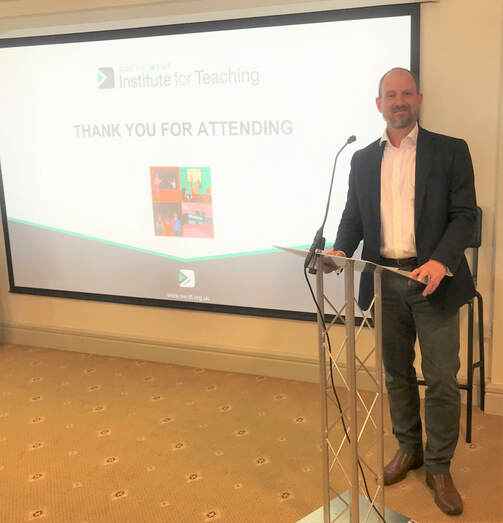
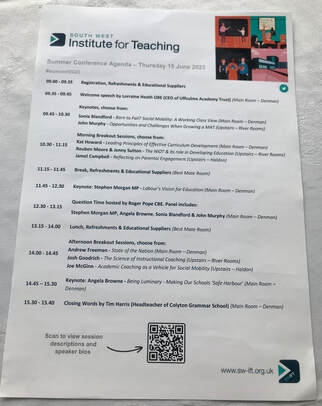
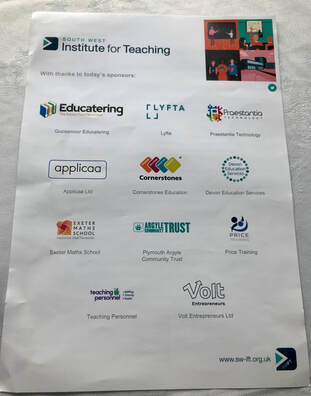
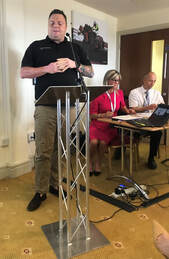
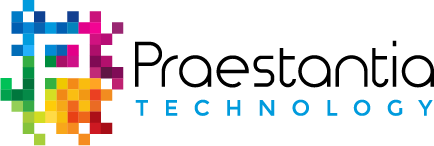
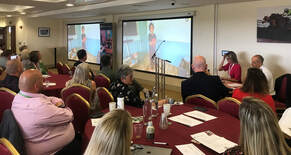
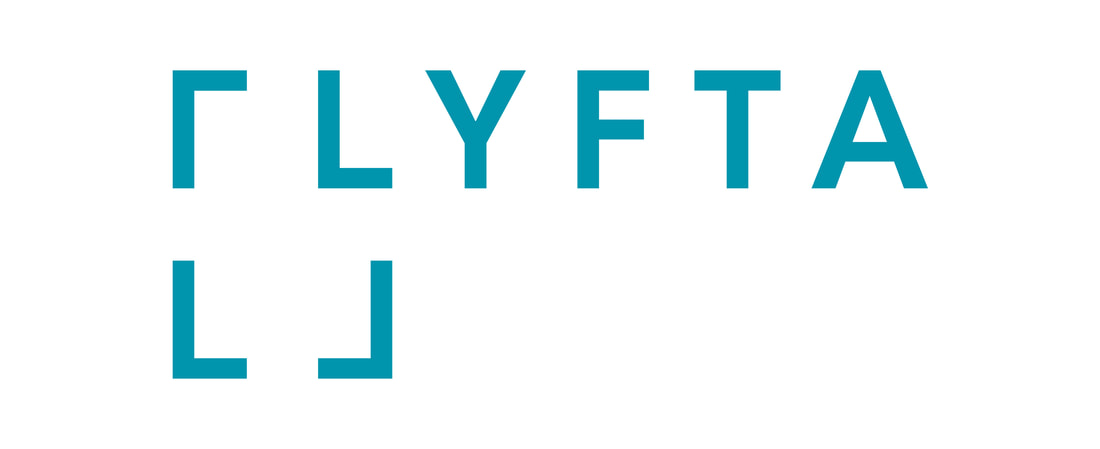
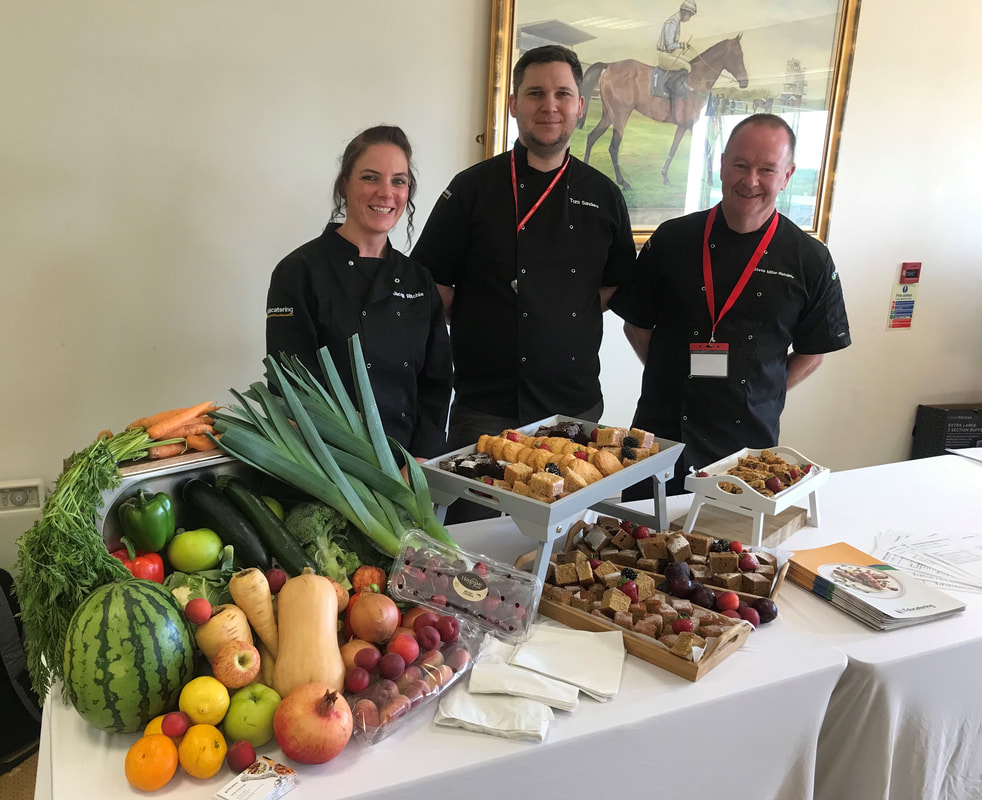

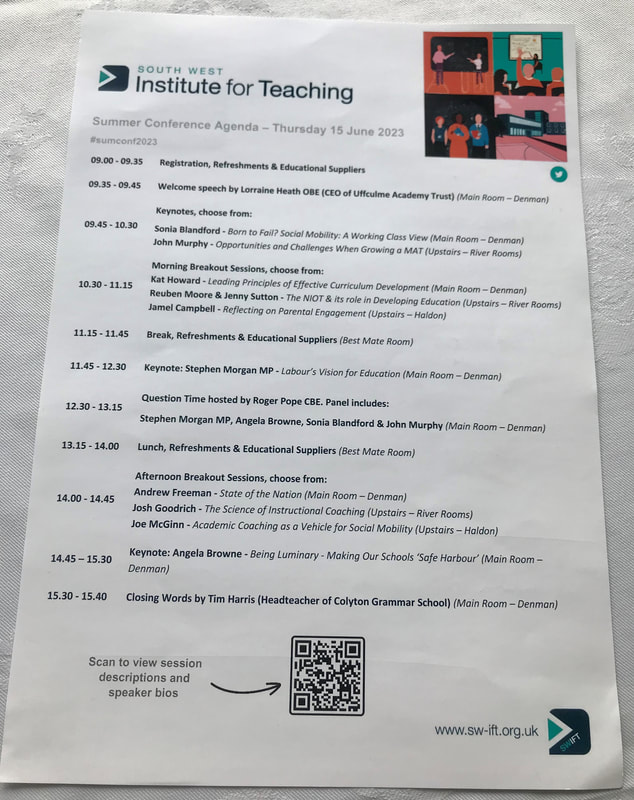
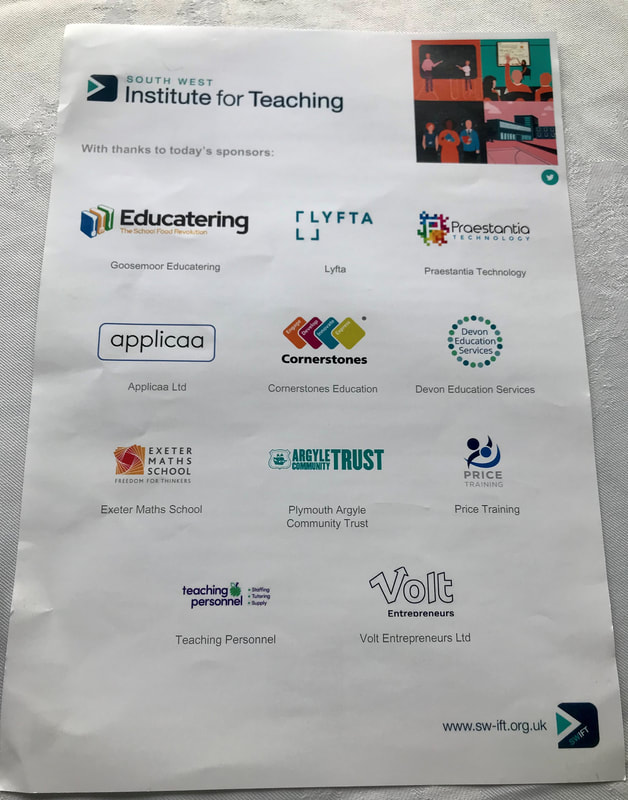
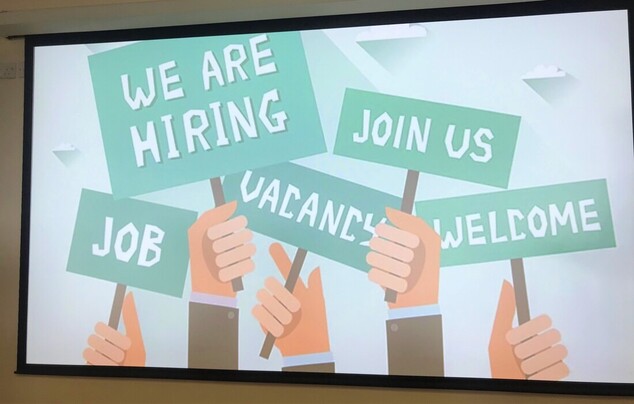
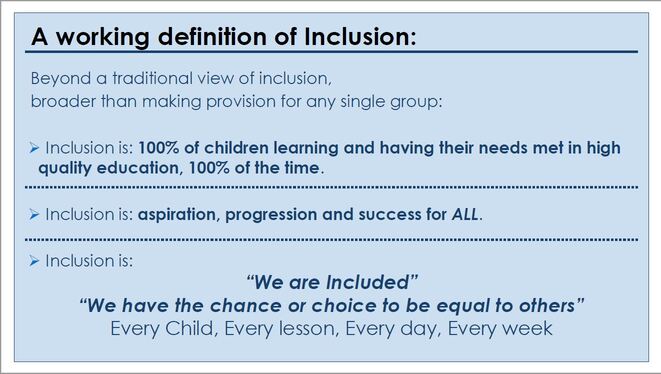
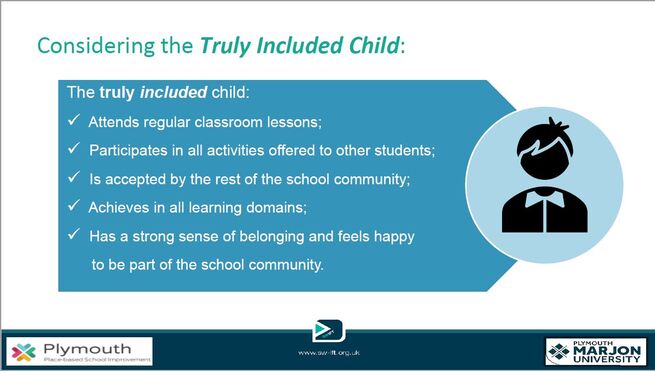
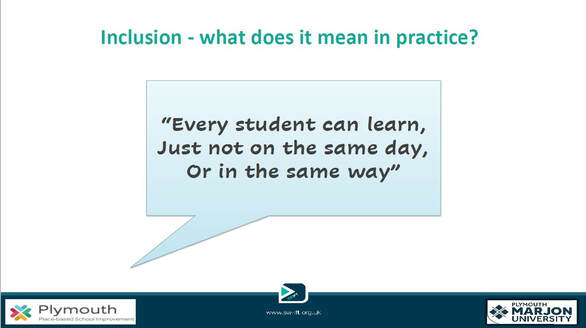
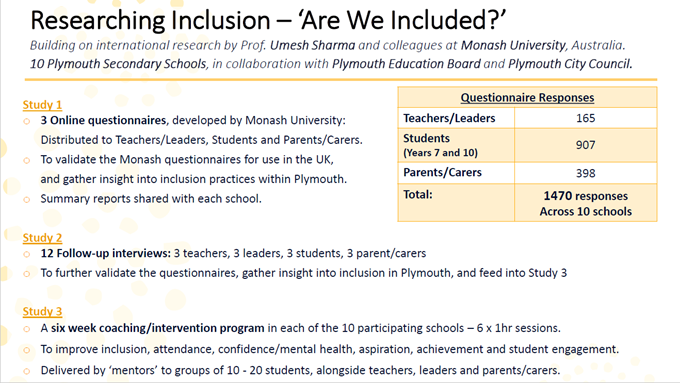
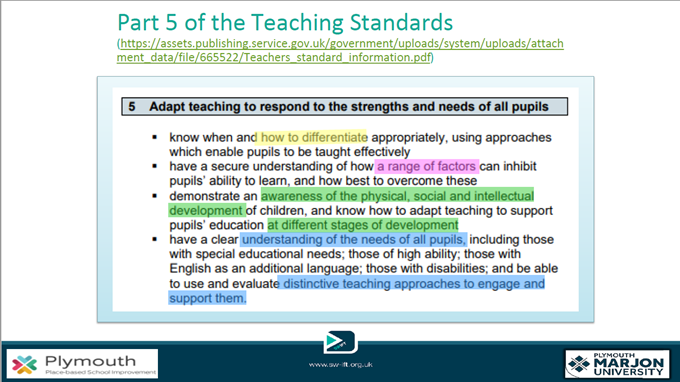
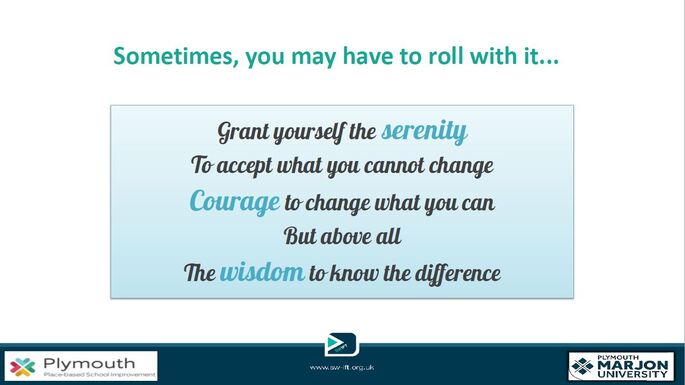
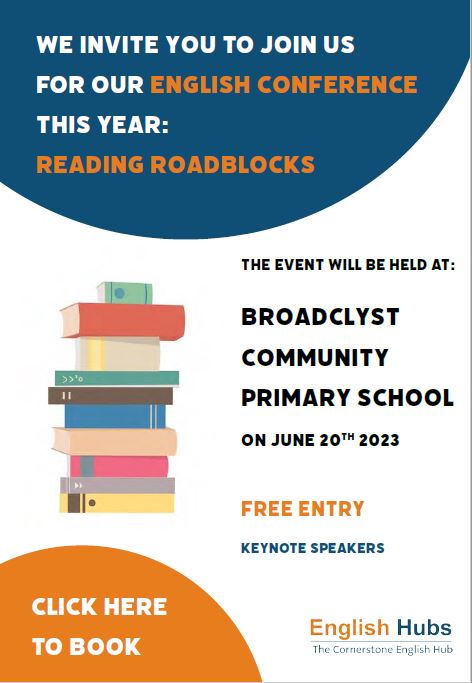
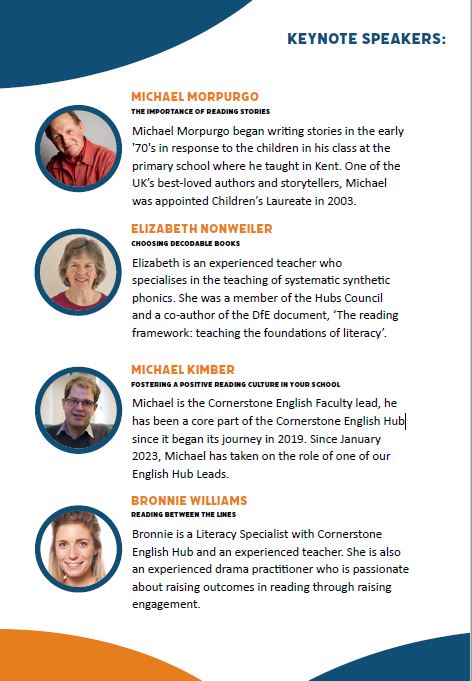
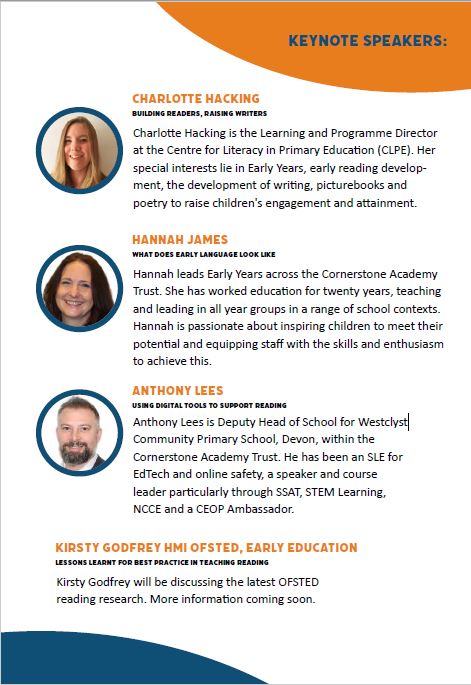

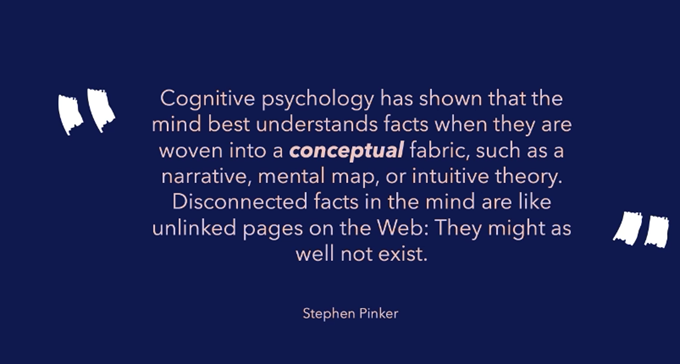

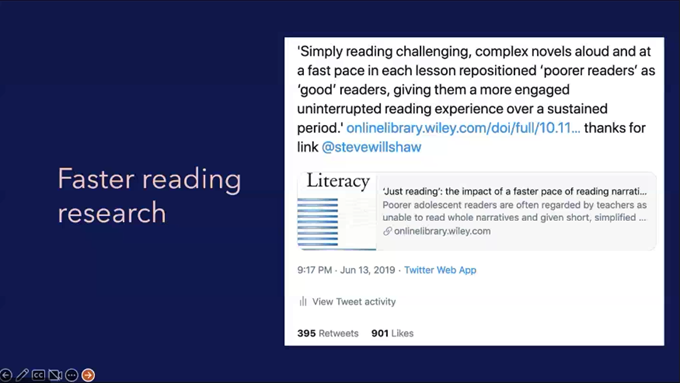
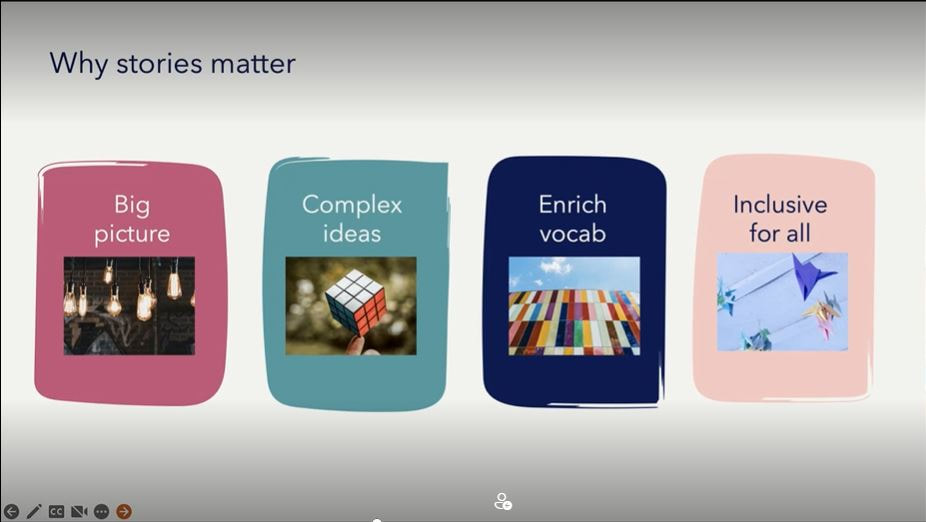

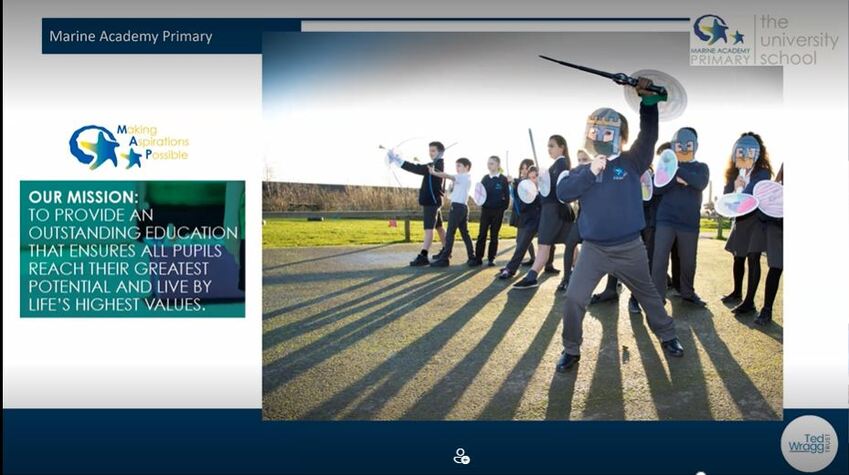
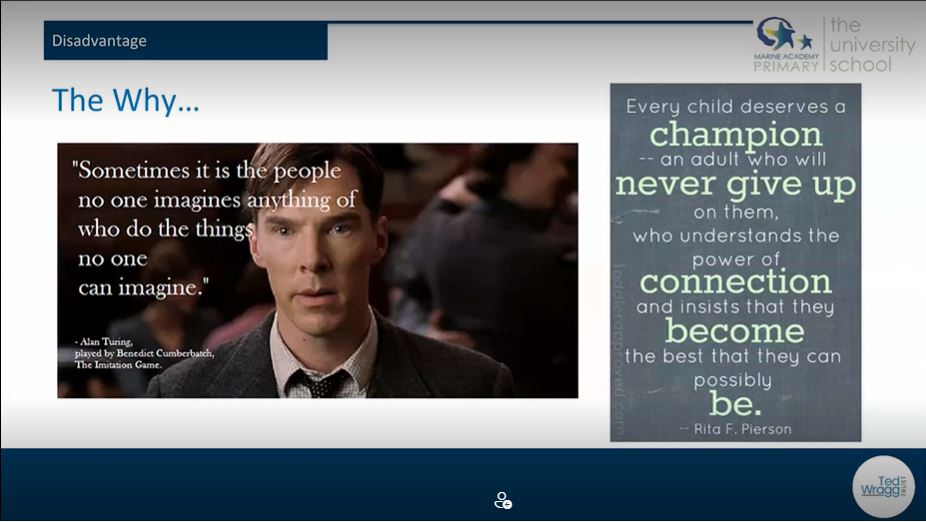
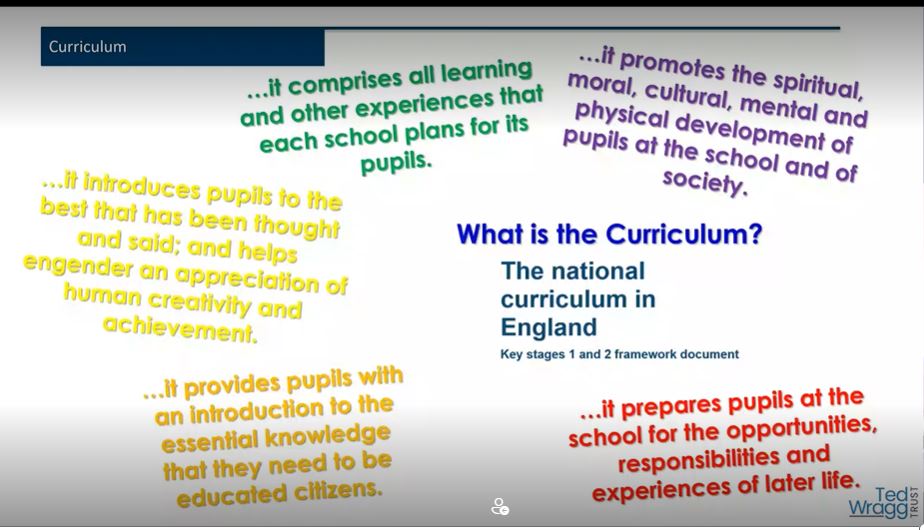
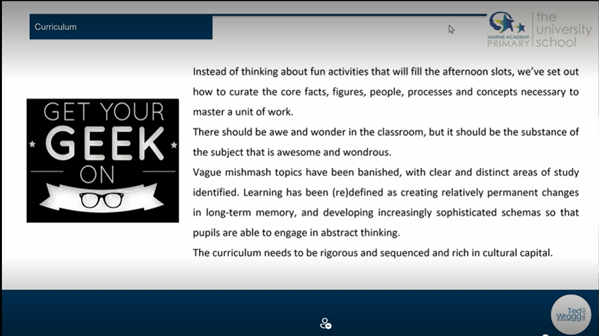
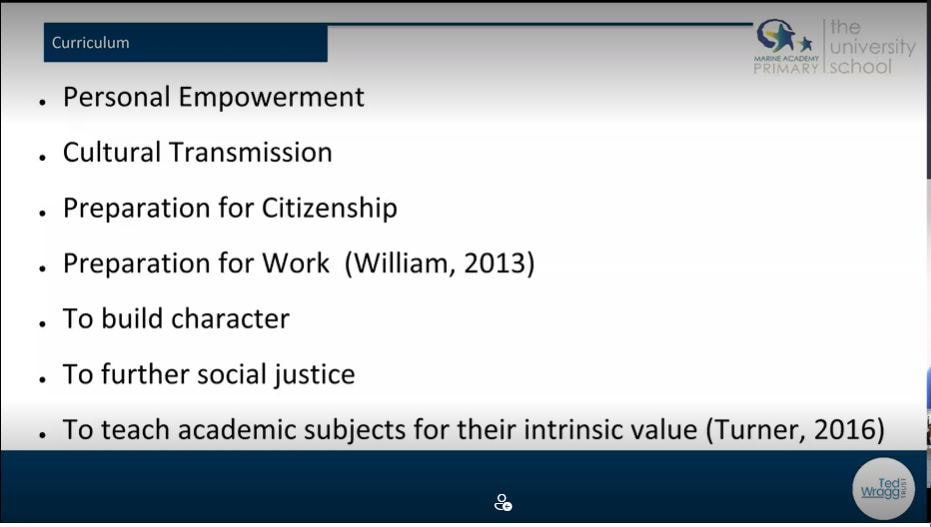
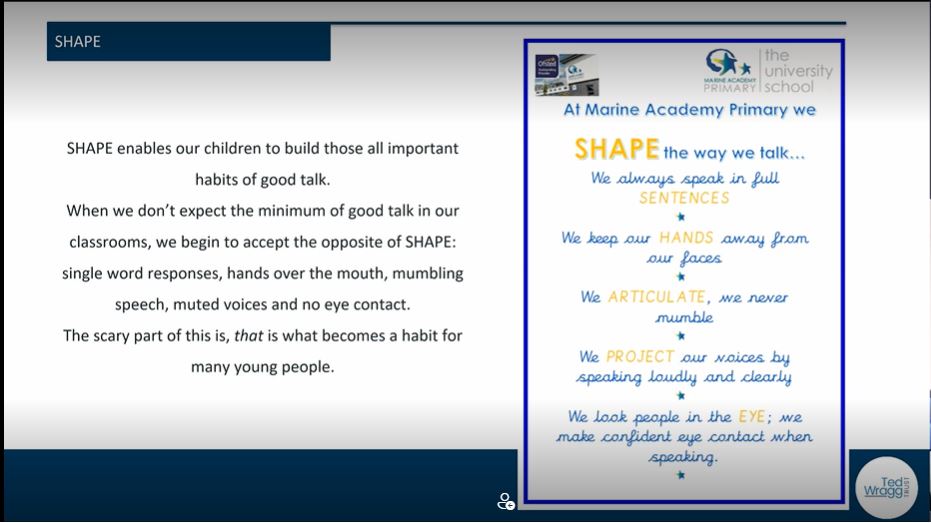
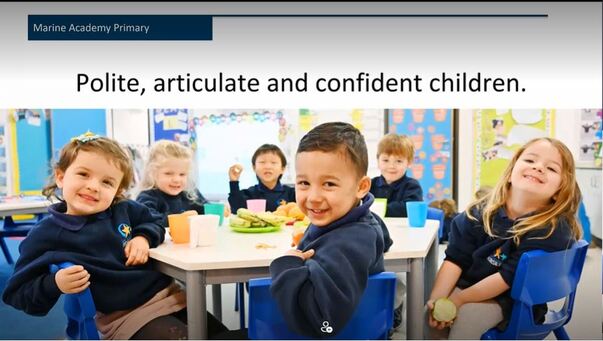
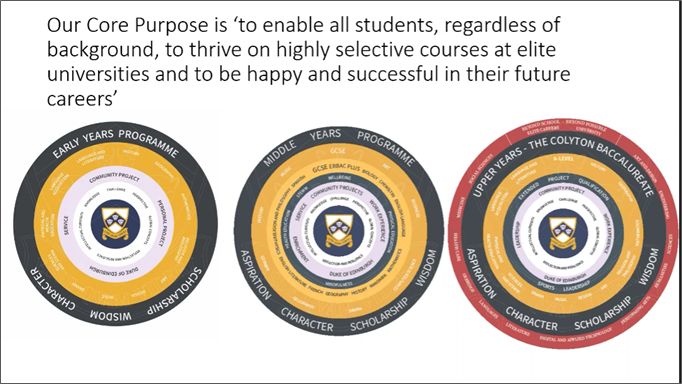


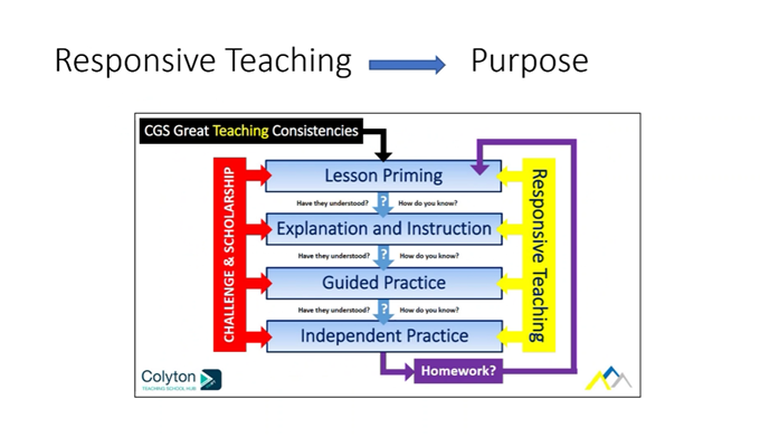
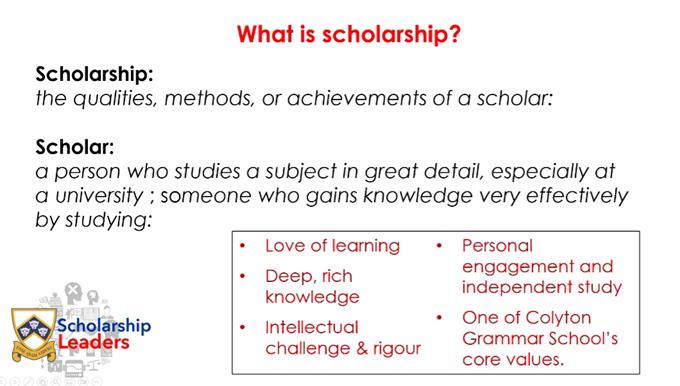
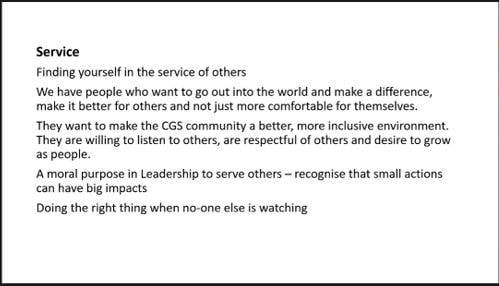
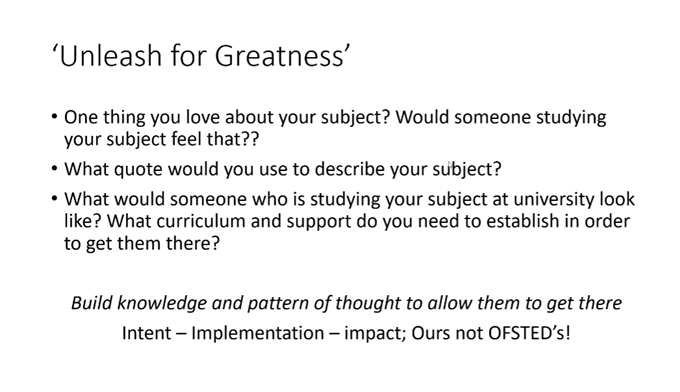
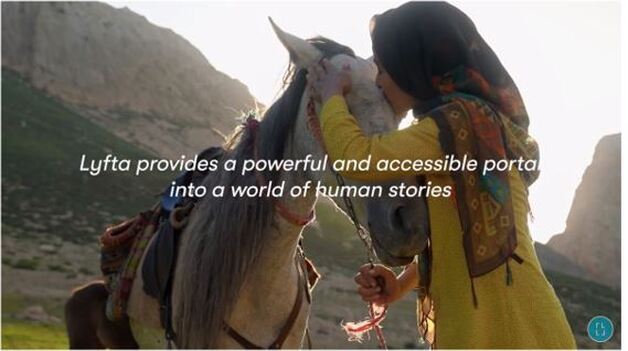
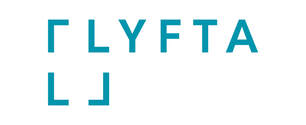
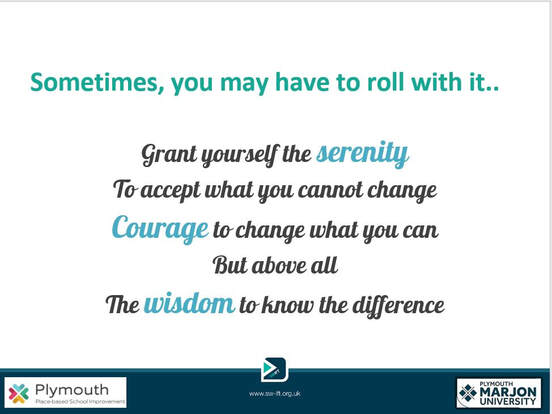
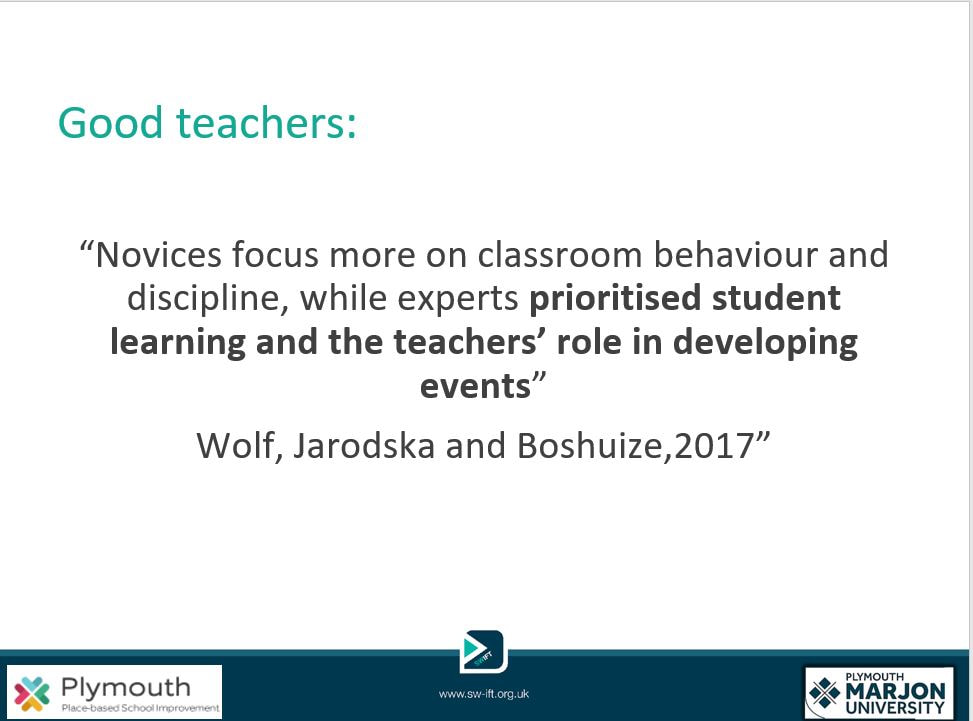
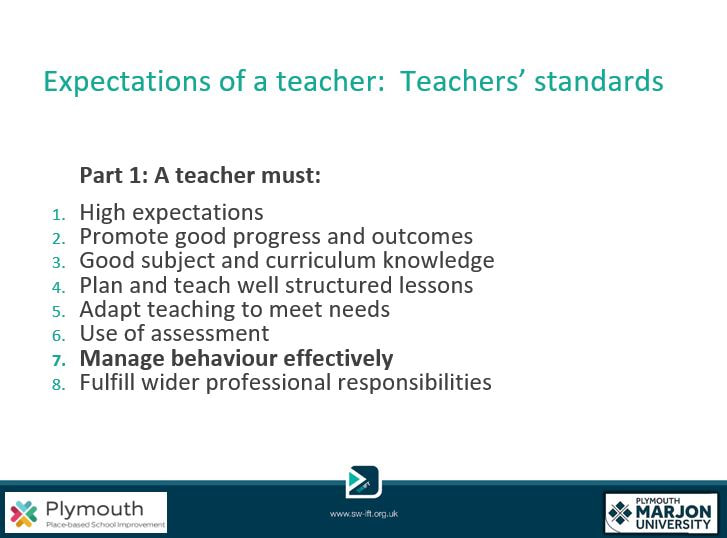
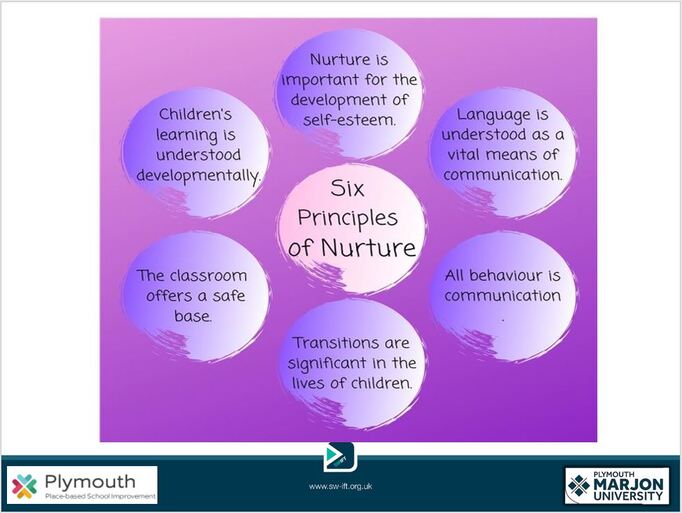
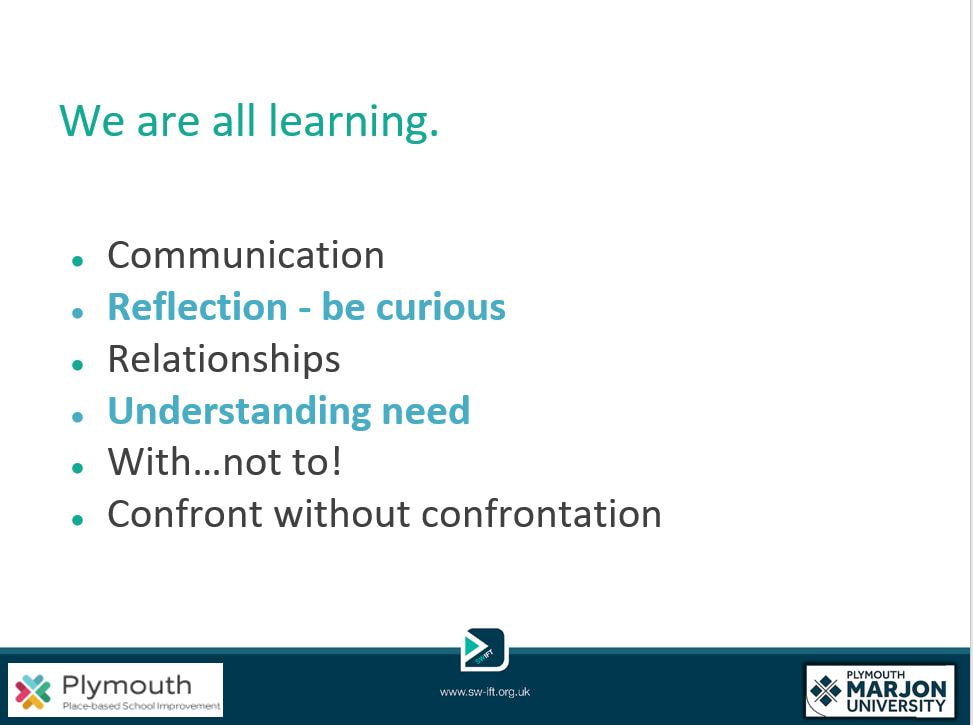
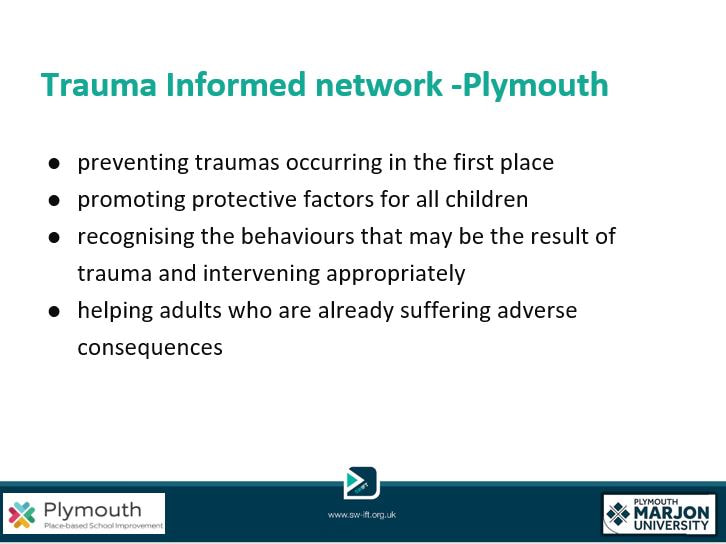

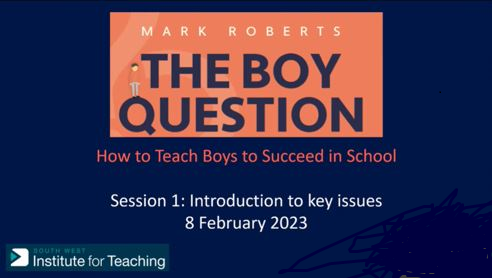

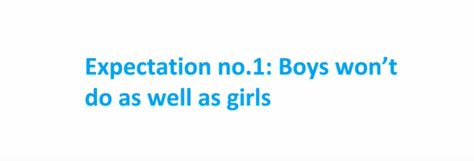
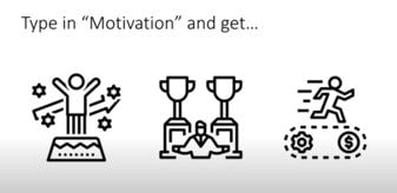
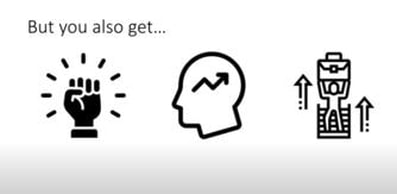

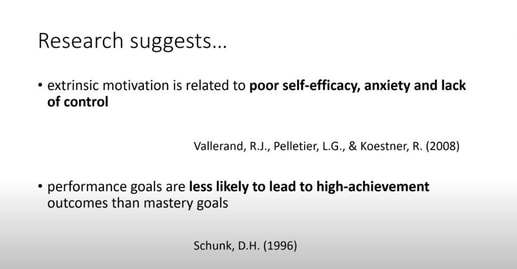
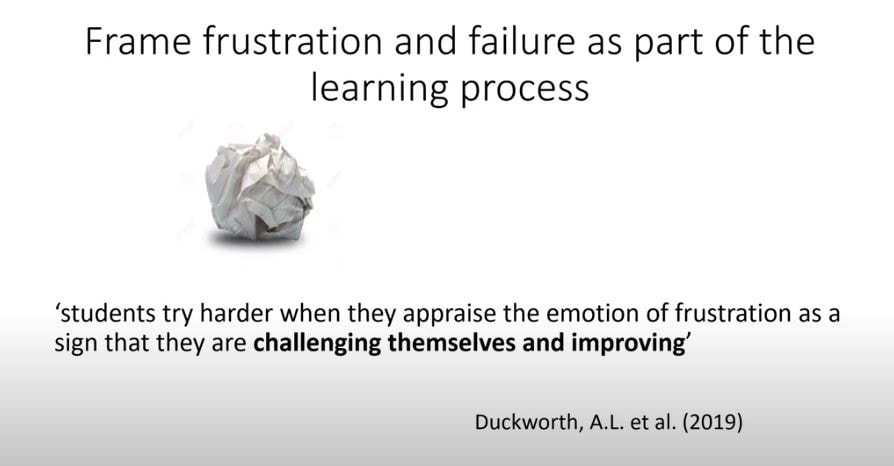

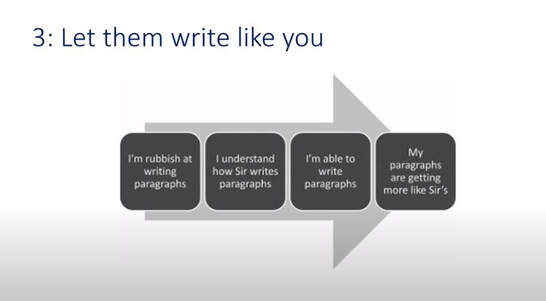





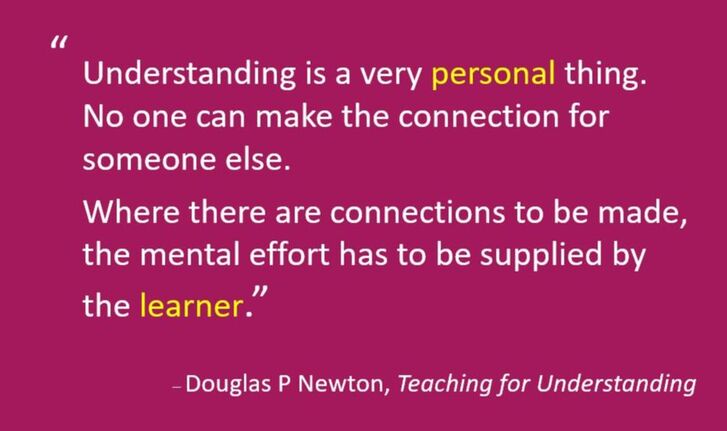
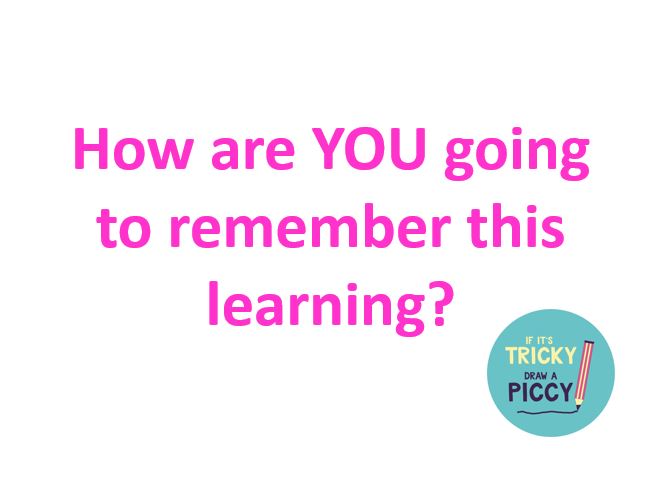

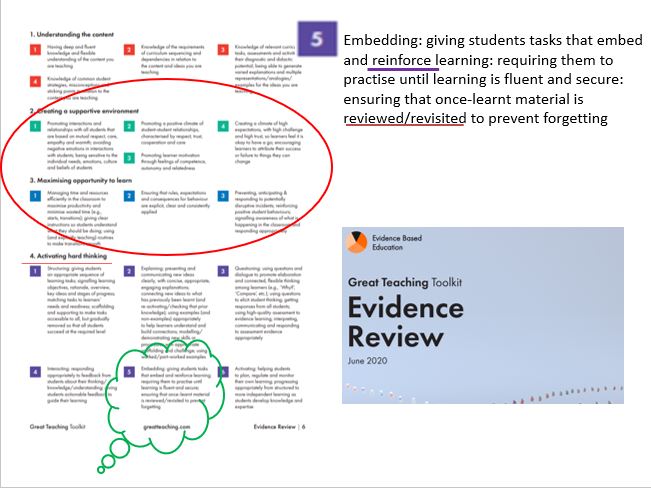
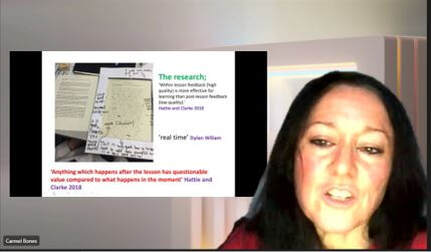
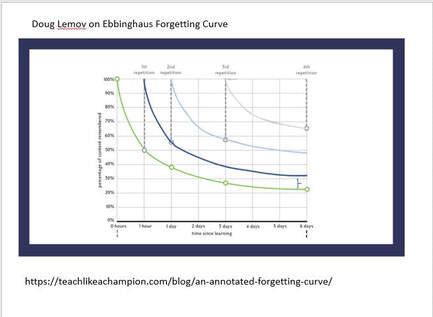

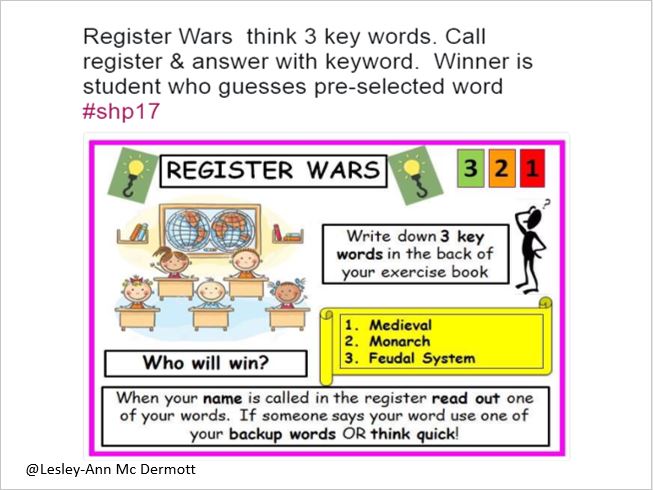
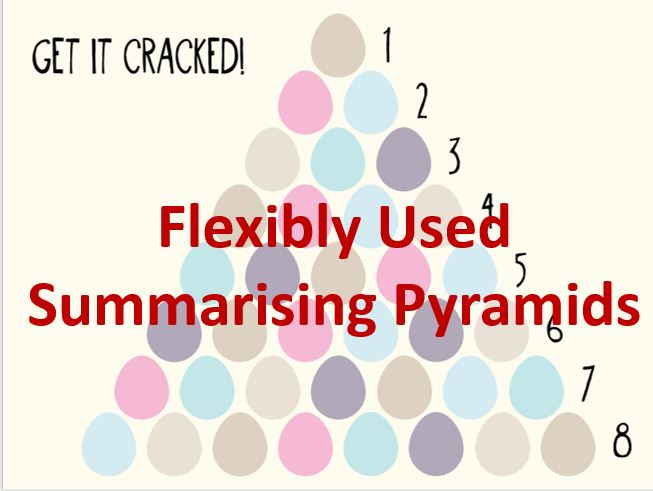
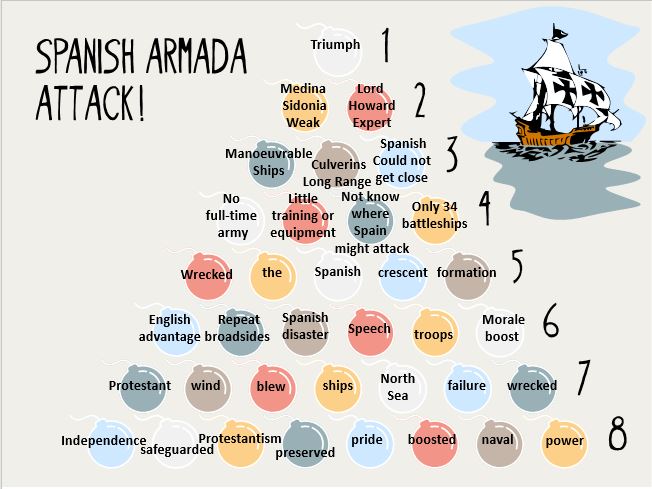
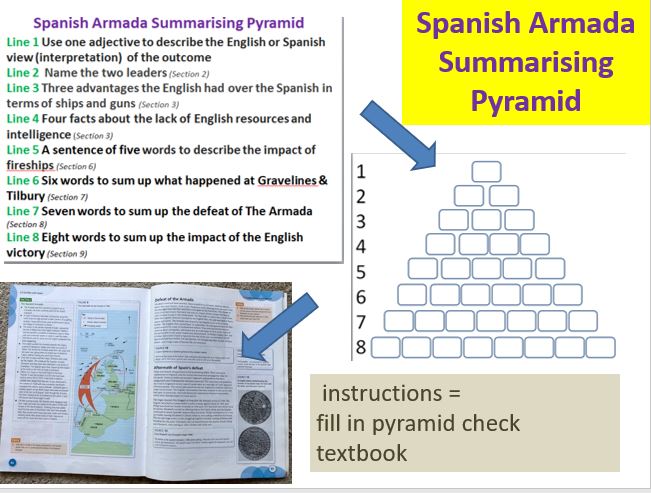
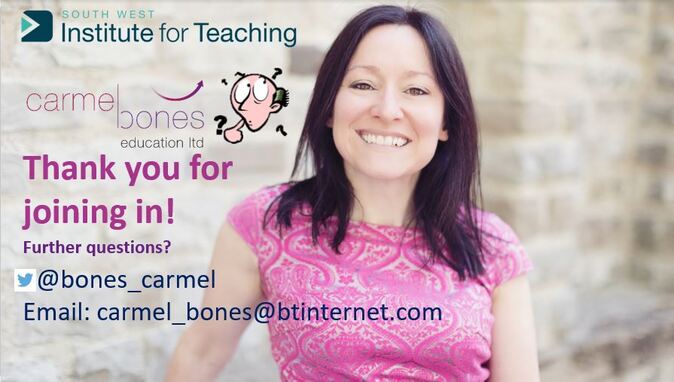
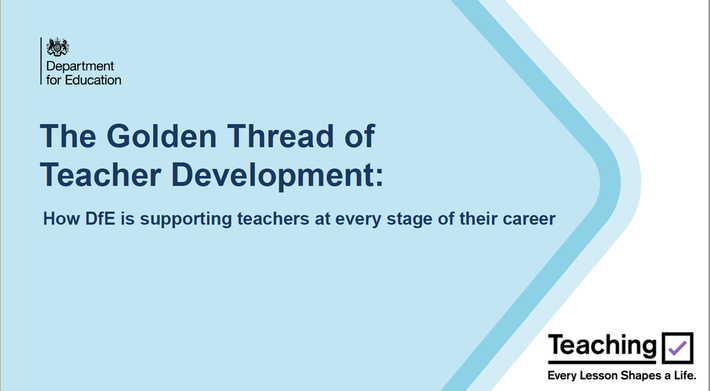
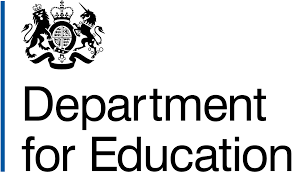


 RSS Feed
RSS Feed





